Unhappy holidays
Making space for grief

Unhappy holidays
Making space for grief
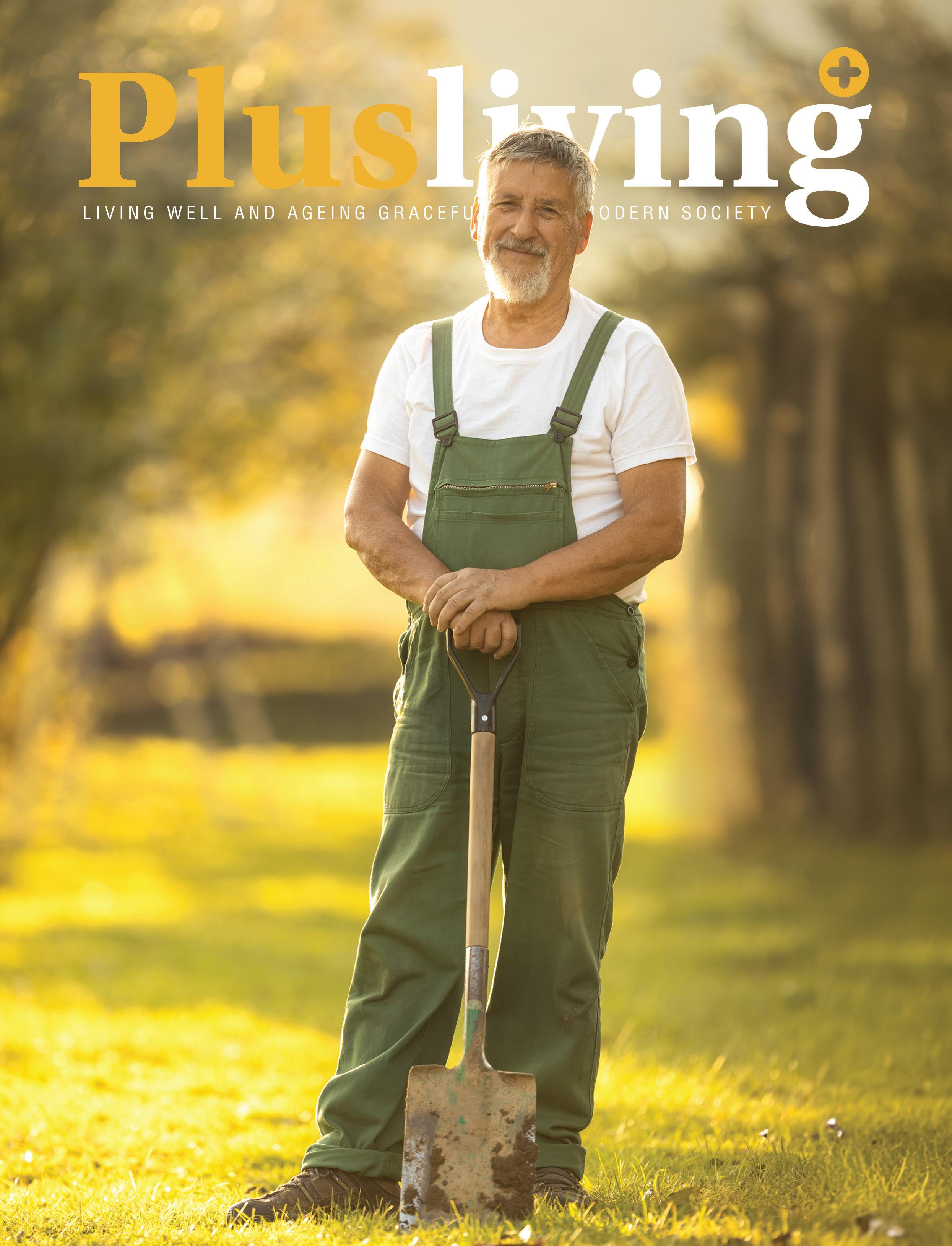
Avoiding harm at home
Making your space safer
Weaving their magic
The Christchurch club connecting through creation

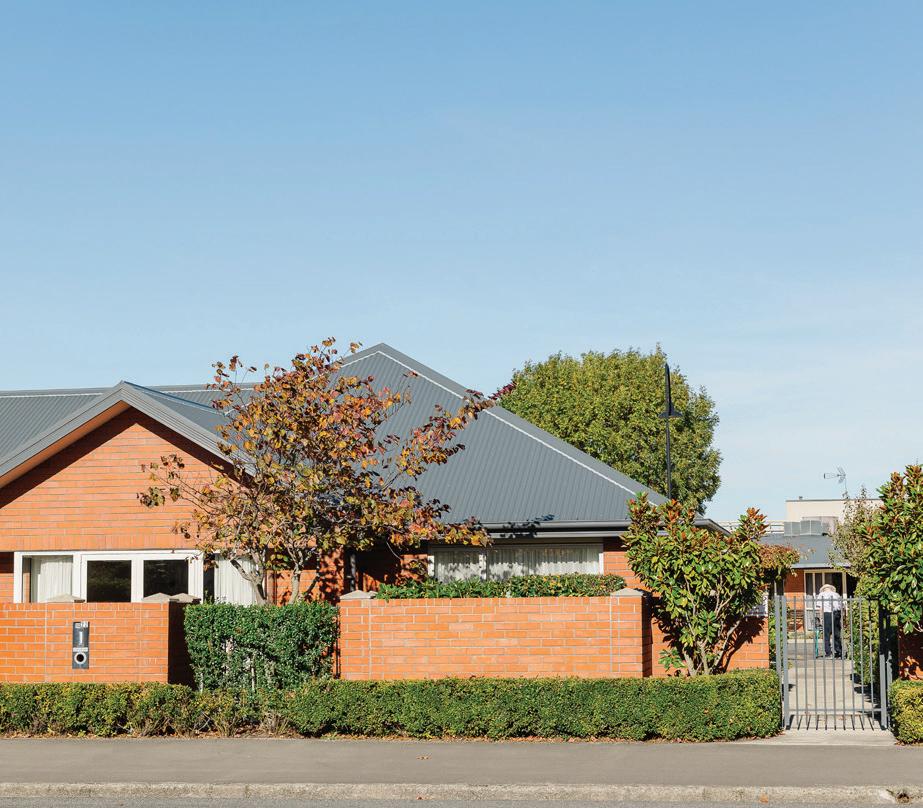
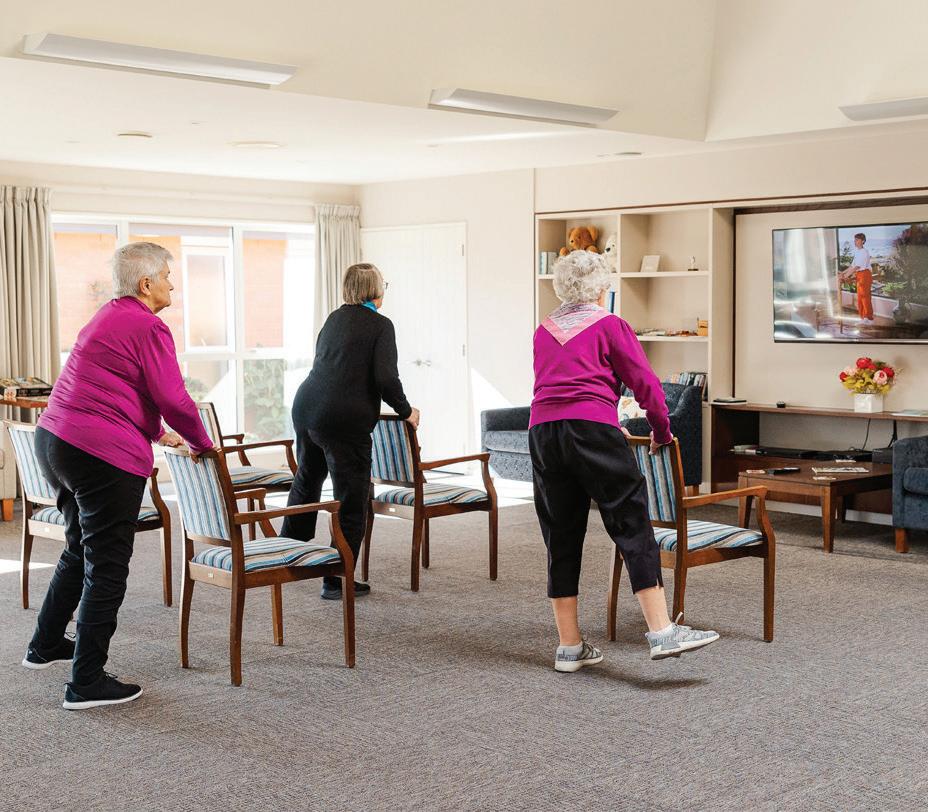
where every day feels like coming home
Welcome to Rosebank Lifecare! Established in 1992, we’re here to offer you a place of tranquillity where you and your loved ones can feel safe, secure, and cared for by our amazing staff.
With a hospital, rest home facility, independent villas, and serviced care suites, we cater to a wide range of needs. Our warm and friendly atmosphere, along with comfortable facilities, make it the perfect place to call home.
We believe in living life to the fullest, no matter your health or condition. Each resident is uniquely valued, with their life experiences and personal values respected. We truly value the support of family and friends in helping our residents thrive. All enquiries and visits are welcome - we can’t wait to show you our facility!
If life is what you make it, choosing Rosebank Lifecare may just be the best decision you ever make.
Come join our retirement village, where every day feels like a vacation with neighbours who become family. Experience the warmth and security of a community where everything is taken care of - from maintenance to garden upkeep. Say goodbye to worries and hello to a carefree lifestyle.
Where independence meets security and community meets convenience. Located on Walnut Avenue, in the heart of Ashburton, our small but welcoming village offers a sense of belonging while giving you the freedom to choose your level
of involvement. Enjoy the beautiful Ashburton Domain just a stone’s throw away, perfect for a leisurely stroll or picnic with family and friends. Our 2 & 3-bedroom villas are designed for warm modern living, with spacious living areas, private gardens you can add your personal touch to, and attached garages for your convenience. Family and friends are welcome to visit and stay with you anytime. Plus, your furry friends are welcome to join you!
Looking for your dream villa? Look no further! Villas are available now, so why wait? Enquire today and make your dream a reality!
Meet Kathleen, our neighbourhood’s angel, always spreading love and light!
Kathleen is our friendly village coordinator, who is always there to lend a helping hand or plan exciting weekly outings around our region. Whether it’s a trip to Methven, Timaru, or beyond, there’s always something fun in store.
Experience the best of both worlds at Rosebank Villageindependent living with a tight-knit community to support you every step of the way. Make a choice to live a full and active life surrounded by caring neighbours who feel like family. Come see for yourself why Rosebank Village is the perfect place to call home.
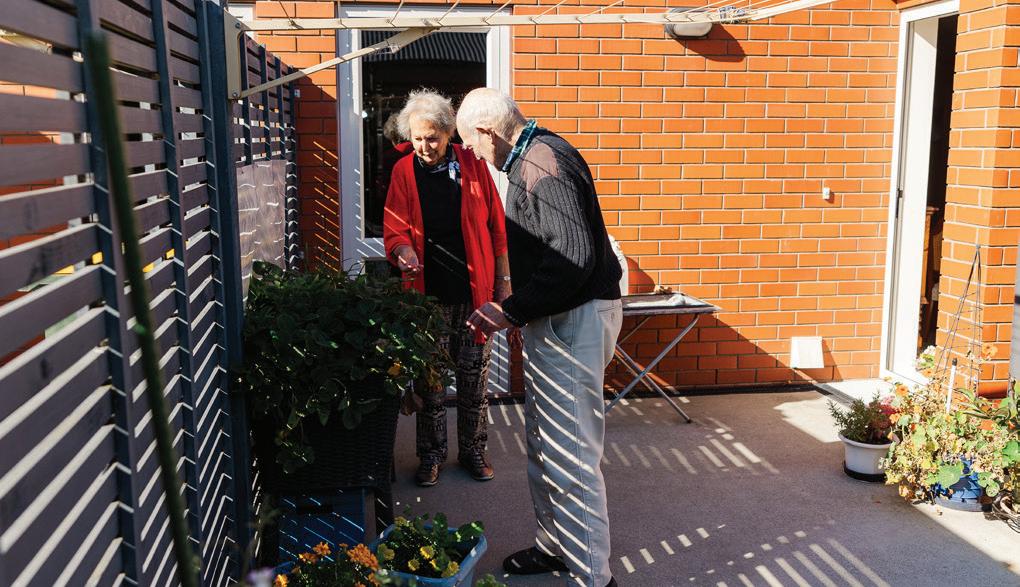

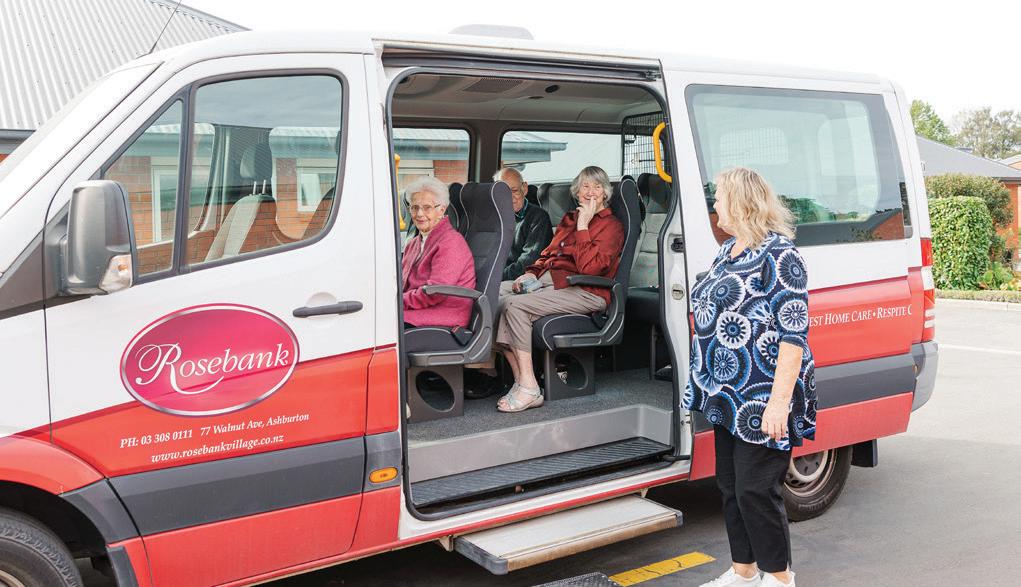
Say goodbye to worries and hello to comfort in your golden years! Let the care come to you in your dream aged care serviced care suites.
Looking for a little extra support without giving up your independence? Look no further than Rosebank’s serviced care suites which are due for completion late 2024! Enjoy the privacy of your own space while receiving daily meals, laundry, and housekeeping assistance if you require it. Plus, with a variety of care options available, you can tailor your support to fit your needs now and in the future without the hassle of moving again.
Live life to the fullest without worrying about maintenance or security - you deserve it!
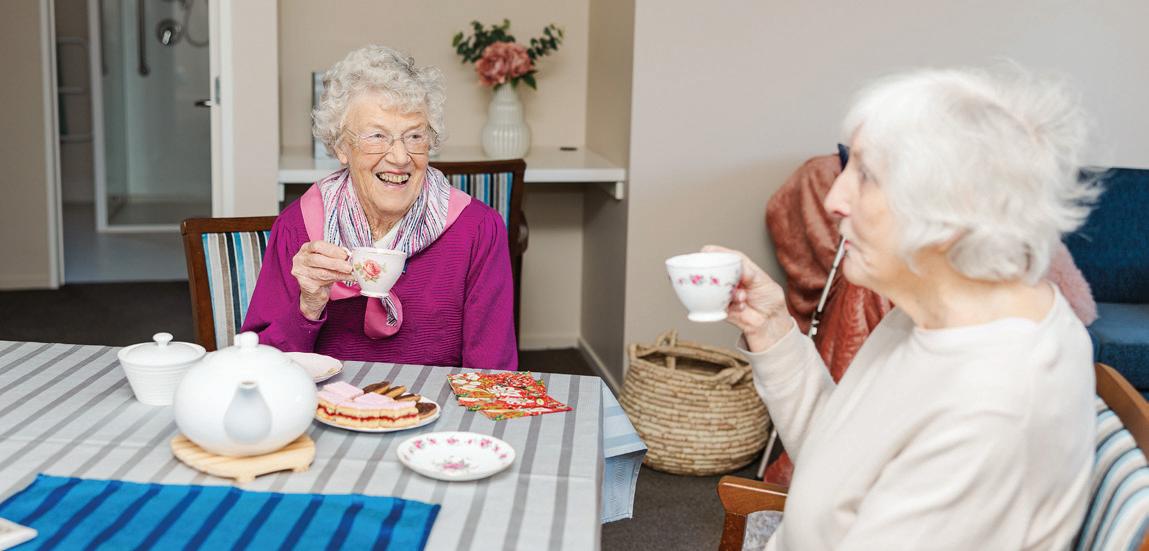
Get the support you need without sacrificing your freedom! Check out Rosebank’s serviced care suites coming soon in 2024.
Make the decision today to live a full and active life, with wrap-around care services in a community that truly cares. Come visit us and see why Rosebank Lifecare is the perfect place to call home. Call Sue Prowse today 03 308 0111.
77 Walnut Avenue, Ashburton | 03 308 0111 | rosebanklifecare.co.nz



When you or your loved ones start to have ear or hearing problems, Hear Again’s team at the Hub is here to help. They have been delighting the Hornby community from their bright, purpose made clinic at the Hub, for the past 6 years. Offering everything from Ear Wax removal by gentle micro-suction, through to the fitting of the most advanced hearing aids offered by the world’s leading manufacturers, the team are happy to help.
Neil Hardisty, NZAS Audiometrist, has been expertly overcoming hearing difficulties for residents of Christchurch since 2009. Neil is frequently praised for his limitless patience, wonderful caring nature and ability to solve all manner of hearing and hearing aid problems. Our Ear Nurses, Sam Claridge and Ken Horne are available Monday to Saturday and are able to quickly and professionally remove ear-wax and any other blockages you may have in your ears. Marcelle, Moira and Jo, our amazing customer service superstars, are happy to assist you with all the care your ears need. Our friendly team will always make you and your family feel very welcome.


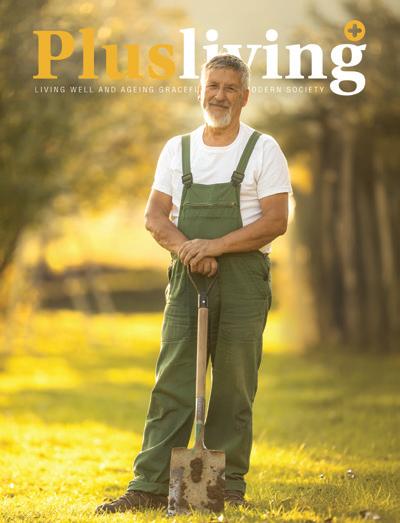
This issue of Plusliving opens up looking at the psychology of lotteries and gambling, asking why we continue to buy lottery tickets and hit the pokies when we lose more often than not.
We have some sage advice about how to get a better night’s sleep, why it’s never too late to quit smoking, or too late to get a tattoo.
You’ll also find pieces on the importance of making space for grief, how to avoid harming yourself at home and eradicating brain fog.
There’s information on getting your retirement finances sorted, plus puzzles to keep the grey matter on point, recipes and good reads.
Enjoy.




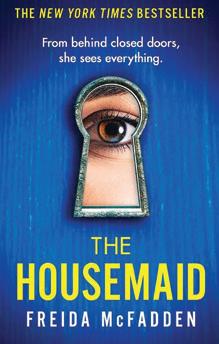

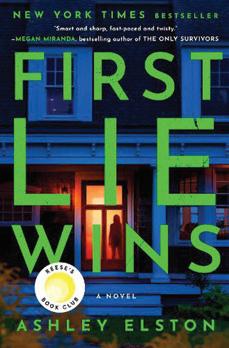
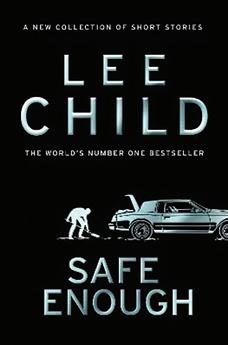
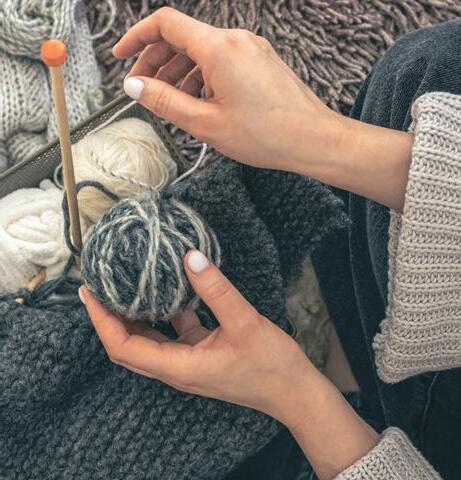

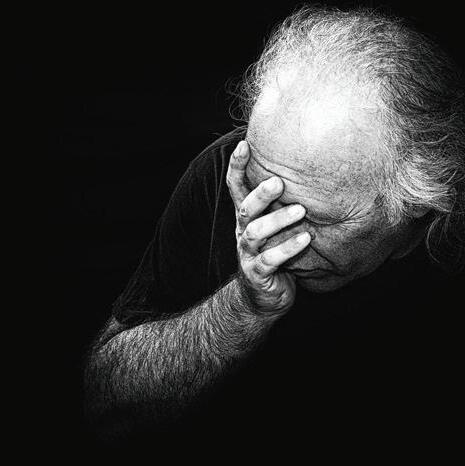
FREE distribution maximises readership
Publisher: The Job Agency Ltd 38 Lowe Street, Addington, Christchurch 8011
Managing Director: Gary Collins
GM of Operations: Kylie Palermo
Sales Manger: Angela Elley (03) 961 5184 | sales@markat.co.nz
Art Director: Jarred Shakespeare (03) 961 5088 | jarred@markat.co.nz
Design: Jessica Ann
Product Coordinator Manager: Amber Mundy (03) 961 5075 | amber@markat.co.nz
Accounts: (03) 961 5050 | accounts@markat.co.nz
mental
and acuity, home life,
life and finances,
self-improvement and more. Our aim is to provide information anyone can use, on any given day, so you can get more out of life.
or
may be reproduced without written permission.
by The Job Agency

By Jamie Quinn

Upgrade your living room with this mid-century modern chair. Its sleek silhouette, subtle curves, and tapered wooden legs add a touch of chic sophistication while creating a light and airy feel in your space.
RRP $1099.00 www.targetfurniture.co.nz
Design Republique Sophia Ribbed Faux Fur Throw

Elevate your interior design with the luxurious Sophia Ribbed Faux Fur Throw in chocolate brown. This cosy blanket is the perfect accent piece to add a touch of elegance and warmth to your living room.
RRP $149.90
www.bedbathandbeyond.co.nz



Hadley Spiced Berry Check Cushion
Breathe new life into your living space with the Hadley Check Cushion. This fun accent piece is the perfect pick-me-up for any sofa or armchair in need of a refresh. This beautifully crafted pillow features a classic tufted check pattern and a colour palette that blends seamlessly with most décor.
RRP $99.99 www.adairs.co.nz
DISCLAIMER: Please note prices listed here are recommended retail pricing. Prices are subject to change at the discretion of the seller. The information on this page is for information purposes only. The Job Agency T|A Markat assumes no liability or responsibility for any inaccurate, delayed or incomplete information, nor for any actions taken in reliance thereon.
This sleek and stylish lamp features a contemporary design that will instantly elevate the ambience of any room. Its soft, diffused light creates a warm and inviting atmosphere, perfect for illuminating your favourite reading nook or casting a gentle glow over your living space.
RRP $42.00 www.kmart.co.nz

This full-length mirror features a unique, wavy design that adds a quirky personality to any room. The soft curves of the mirror frame contrast beautifully with straight lines, creating a visually interesting look. Featuring a plush velvet frame in rich chocolate brown, this mirror is sure to be a conversation starter!
RRP $199.99 www.onceit.co.nz

By Ben O'Connell
Why do we continue to buy lottery tickets and hit the pokies when we lose more often than not? The 2021 New Zealand National Gambling Study found that the more we gamble, the more likely we are to experience adverse outcomes like anxiety and depression, relationship issues, and financial problems.
The Ministry of Health is responsible for refreshing its strategy every three years. The Draft Strategy to Prevent and Minimise Gambling Harm says that about 0.2 percent of New Zealand’s population are problem gamblers, and 1.2 percent are at moderate risk of gambling harm.
Further, about five percent of adults are affected by gambling harm, either directly or through someone they know. Gamblingrelated harm is estimated to cost the country between $450 million to $1.1 billion annually in social costs, including health impacts and loss of productivity.
One 2023 Australian study by BMC Public Health concluded that “older adults are vulnerable to gambling harm due to life-stage experiences”.
Andree Froude is the advocacy and public health director of the Problem Gambling Foundation (PGF). She says that there’s little data about understanding what entices seniors to participate in lotteries.
Andree cites that same Australian study, which suggests that older adults may perceive gambling as an inexpensive and affordable leisure activity. She adds how another quantitative study in Singapore indicated that lotteries were a popular, socially accepted form of gambling.
“Gambling is also very normalised in our society. Lotto advertising is “everywhere”, and tickets are available online through an app, from one of their many outlets or even at a supermarket
check-out. Some people don’t even recognise Lotto as a form of gambling as it is so normalised,” Andree says.
“To highlight the sheer volume of advertising, recent Nielson ad intel showed that Lotto was the 12th highest spending organisation on advertising in 2023.”
“While purchasing Lotto tickets may seem like a harmless activity, it can be problematic if someone is spending more than they can afford.
“Purchasing Instant Kiwi tickets is more harmful as it is a continuous form of gambling. It is also helpful to know the odds of winning - if you buy a $7 ticket, your odds of winning first division are 1 in 383,838. Those are low odds!”
Andree says that some types of gambling are more harmful than others. Continuous gambling, like pokie machines and Instant scratch tickets, is one example.
“Evidence tells us that there is more harm associated with continuous forms of gambling - those types of gambling where a person can “reinvest” their winnings in further gambling.
“You get the result quickly and can immediately continue to gamble as opposed to lottery draws or raffles where there is usually a delay between placing a stake or buying a ticket and receiving the result.”
From the illusion of control to the gambler’s fallacy, the mind loves to trick itself when it comes to money matters. On continuous gambling, people can experience cognitive dissonance when their actions conflict with their knowledge that gambling is financially harmful. Feeling like their luck is about to change is why players might keep betting on the pokies despite constant losses. This false hope overlooks the fact that each gamble is independent of the last, with no impact on the outcome.
Some players might feel like personalising their ticket might land them the big win, but those who pick their lottery numbers have the same chance as someone whose numbers were randomly generated. The illusion of control is the belief that a player can influence the outcome of a random event, which can lead to more frequent gambling.
On a neurological level, gambling activates the brain’s reward system, releasing dopamine, the chemical responsible for feelings of pleasure and satisfaction. Even anticipating a win can lead to a dopamine spike, driving people to chase that high, sometimes without regard for potential financial losses.
Finally, when someone experiences a near-miss – nearly winning but falling short – their brain’s reward system can be triggered similarly to an actual win. This can make players feel that success is just within reach and, therefore, continue gambling. Understanding the mind games we can get wrapped up in is the start of reducing problematic play.
Finding support can be easier said than done. One in twenty Kiwi adults are affected by gambling harm in some way. Per Health New Zealand, anyone can access counselling support, including those affected by someone else's gambling.
Andree shares data on how many people have accessed treatment services with a disclaimer. She says these figures are not “a good measure of harm” because so many people do not access treatment services such as PGF; some feel the stigma or shame associated with gambling, and some go elsewhere for support, such as to a family member or friend.
“The latest Ministry of Health data for the period between July 2022 and June 2023 shows the total number of clients excluding brief interventions was 4,411, with 6.4 percent aged 65 and over. If you look at 45–64-yearolds, the figure is 27.3 percent.
“In 2022 and 2023, the most common gambling mode, reported by almost half of all clients receiving intervention services, was pokies in pubs, clubs and TABs (45.6 percent), followed by Lotto NZ products (11.8 percent). The Lotto percentage covers all Lotto products, so it could also include Instant Kiwi.”

Anyone who is impacted by gambling harm, whether it be the person who is gambling or a family member or friend, can contact PGF for support on 0800 664 262 or email help@pgf.nz or via online chat at www.pgf.nz. Their services are provided nationally and are free and confidential.
Further, the PGF is currently putting the ‘Petition of Problem Gambling Foundation of New Zealand: Prohibit the advertising of gambling’ to Parliament. It looks to ban gambling advertising on traditional media and online platforms; the likes of pokies, casinos, Lotto, TAB, and online gambling. Signatures are open until 31 October 2024.
If you or someone you know is experiencing problem gambling, consider these resources:
Asian Family Services: 0800 862 342 | www.asianfamilyservices.nz
Choice not Chance: 0800 654 655 | www.safergambling.org.nz/help-and-support
Gambling Helpline Aotearoa: 0800 654 655 text 8006 | www.gamblinghelpline.co.nz
Mapu Maia: 0800 21 21 22 | www.mapumaia.nz
Mental Health Foundation: www.mentalhealth.org.nz/helplines
PGF Services: 0800 664 262, text 5819 | help@pgf.nz | visit www.pgf.nz

The saying “home is where the heart is” rings true, but it’s important to stay alert to your surroundings!
According to ACC statistics, over 280,000 home injuries were caused by falls last year. In fact, falls are the leading cause of ACC claims, making up more than 40 percent of all new claims in 2011.
Northland reported the highest rate of claims at 75 per 1,000 residents, while Marlborough had the lowest at 33 per 1,000.
You might be surprised to learn that everyday items like rugs and power cords can lead to falls any time of year.
John Beaglehole, general manager of ACC Insurance and Prevention Services, notes that a single trip or slip can lead to serious consequences.
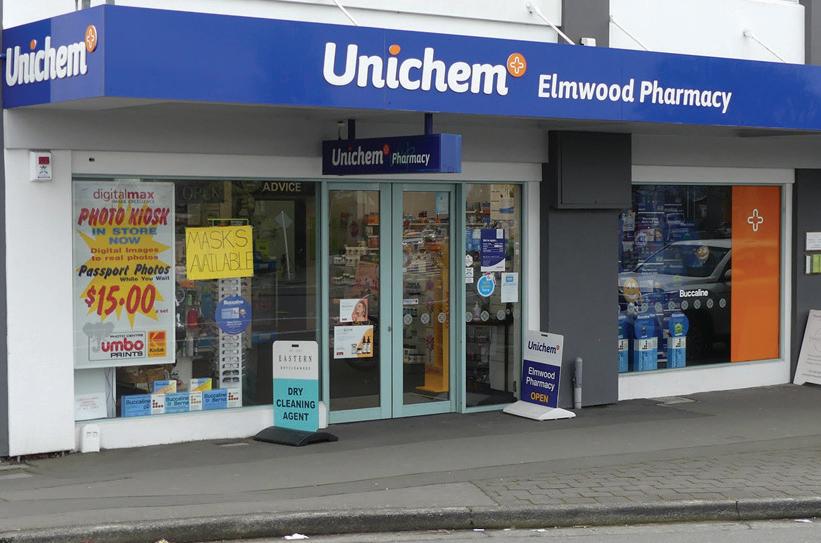

By Jonathan Taylor
“It’s not just the elderly or young children who fall at home—over 40 percent of all home falls last year involved people aged 25 to 64.”
“Injuries can dramatically impact your life, preventing you from enjoying activities like socialising with friends or playing with your kids. Many individuals also find they need time off work, affecting their income; ACC reports that around 10,000 people are off work for a week or more due to falls at home.”
The good news is there are simple steps you can take to minimise the risk of falls for yourself and your loved ones.
John encourages New Zealanders to tackle five common hazards in the home: moss, rugs, power cords, chairs, and puddles. Taking these precautions can help create a safer living environment for everyone!
Remove moss
• Waterblast, scrub or spray mossy areas with moss removal products
• Cut trees and shrubs back to prevent shade – conditions which moss thrives in
• Build new decks with grooved timber.
Secure power cords
• Get cords out of harm’s way, with cord clips, quick-release power cords or multi-boxes
• Secure loose cords or wires to the wall.
Fasten rugs and mats
• Secure them with anti-slip tape, or spray on a non-slip coating
• Use carpet grips for mats
• Repair damaged carpet on stairs
• If you’re buying a new rug, look for one with a non-slip backing.
Avoid using chairs as ladders
• Use a ladder or step ladder to reach high objects
• Store heavy, regularly used objects down lower
• Use long-life smoke alarms and light bulbs so you don’t have to change them often.
Wipe up spills
• Wipe up spills as soon as they happen, with mops, sponges or cloths
• Use floor mats to absorb excess water
• If renovating, install non-slip flooring in wet rooms (bathroom, kitchen and laundry).

Dementia Canterbury offers a range of services for people living with Dementia/Mate Wareware.
This includes home visits and support planning with our key workers, a Living Well education programme, cognitive stimulation groups, an extensive community-based programme of activity groups in partnership with our community, community cafes and social events, and volunteer support in the home and at groups.
One of our key workers can arrange to meet you and/or your family/ whānau at your home or at the Dementia Canterbury office to discuss your situation, including any concerns and needs you may have. Key worker support enables people to access information, educational courses and materials and services from Dementia Canterbury and the wider community. Based on different choices and unique situations, a key worker will advocate on the person’s behalf when necessary and will assist in coping with change, in order to achieve the best outcome possible.
Education is also available to the wider community via our community education programme including the regions, and in sessions tailored to group need on a request/cost recovery basis. This includes sessions on

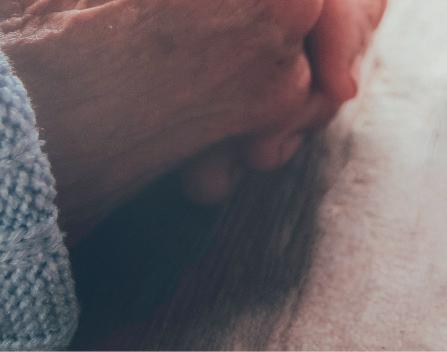

brain health and risk reduction. Did you know that over 40 percent of risk for developing dementia involves factors we can modify? We have also developed a specific programme for those living with or caring for someone with younger onset dementia [under age 65], which includes support, education and activity, and social connection. Additionally, in partnership with Purapura Whetu, we are delivering a 4 year pilot mate wareware program for kaumātua and whānau.
Dementia Canterbury is a charity that relies heavily on the community to help support the work we do throughout Canterbury and the West Coast. We fund raise through a variety of events and activities and are always on the lookout for people or businesses who might want to help us financially, in kind, or as valued volunteers.
Dementia is not discerning – it can and does happen to anyone. If you or someone you know need support or information, please contact us on 03 379 2590 or www.dementiacanterbury.org.nz
We are here to help and to support throughout the journey.


Research shows that the ‘treatment’ of Dementia/Mate Wareware should be one of ‘care rather than cure’. With person-centred, purposeful, stimulating experiences and activities that offer hope and means to maximise quality of life. Dementia Canterbury provides free person-centered services for people diagnosed with a dementia and their families.

As people age, many experience a noticeable decline in the quality of their sleep.
This phenomenon is not just a matter of perception but is well-documented in research studies. Older adults often report difficulty falling asleep, staying asleep, and having restorative sleep. Understanding the reasons behind these changes and adopting effective strategies can help older individuals improve their sleep quality.
Changes in sleep architecture: As people age, the structure of their sleep alters. There is a reduction in deep sleep stages, which are important for physical and mental restoration. Consequently, older adults spend more time in lighter sleep stages, making them more susceptible to disturbances.
Circadian rhythm shifts: The body’s internal clock, or circadian rhythm, tends to shift with age. Older adults often experience a phase advance, meaning they feel sleepy earlier in the evening and
Maintain a consistent sleep schedule: Going to bed and waking up at the same time every day, even on weekends, helps regulate the body’s internal clock. Consistency reinforces the sleepwake cycle and can improve sleep quality.
Create a restful environment: Make sure the bedroom is quiet, dark, and cool. If necessary, use blackout curtains, earplugs or white noise machines.
Limit exposure to screens before bed: The blue light emitted by phones, tablets, and computers can interfere with the production of melatonin, a hormone that regulates sleep.
Stay physically active: Regular physical activity can help improve sleep quality. Activities like walking, swimming, or yoga can be helpful. But, vigorous exercise should be avoided close to bedtime as it can be stimulating.
By Paige O'Brien
wake up earlier in the morning. This shift can lead to difficulties in maintaining a consistent sleep schedule.
Be mindful of diet: Avoid heavy meals, caffeine, and alcohol close to bedtime. Caffeine and alcohol can disrupt sleeping patterns, and large meals can cause discomfort, making it difficult to sleep. 1 2 3 4 5 6 1 2 3 4 5
Health conditions: Chronic illnesses such as arthritis, diabetes, and heart disease, which become more common with age, can interfere with sleep. Pain, discomfort, and the need for frequent toilet trips in the night are common issues that disrupt sleep.
Medications: Older adults are more likely to be on multiple different types of medications, some of which can affect sleep. Certain blood pressure medications, antidepressants, and medications for Parkinson’s disease can cause insomnia or broken sleep.
Sleep disorders: The prevalence of sleep disorders such as sleep apnea and restless legs syndrome increases with age. Sleep apnea, characterised by pauses in breathing during sleep, can lead to frequent awakenings and poor sleep quality. Restless legs syndrome causes an irresistible urge to move the legs, which can make it difficult to fall and stay asleep.
Lifestyle factors: Retirement and changes in daily routines can lead to reduced physical activity and less exposure to natural light, both of which are important for maintaining healthy sleep patterns. Social isolation and decreased engagement in stimulating activities can also contribute to sleep problems.

Improving sleep quality in older adults involves understanding the unique challenges they face and adopting a holistic approach that includes lifestyle adjustments and environmental changes. By implementing these strategies, older individuals can enhance their sleep and overall well-being.
We’re local engineers, highly qualified in residential air conditioning solutions to meet your needs and the demands of the Christchurch climate. We assess your space properly to recommend the system that’s right for you. Our heat pumps and HRV ventilation systems are high quality and long-lasting, installed quickly and professionally. We follow up with the service and maintenance you need, all year round.
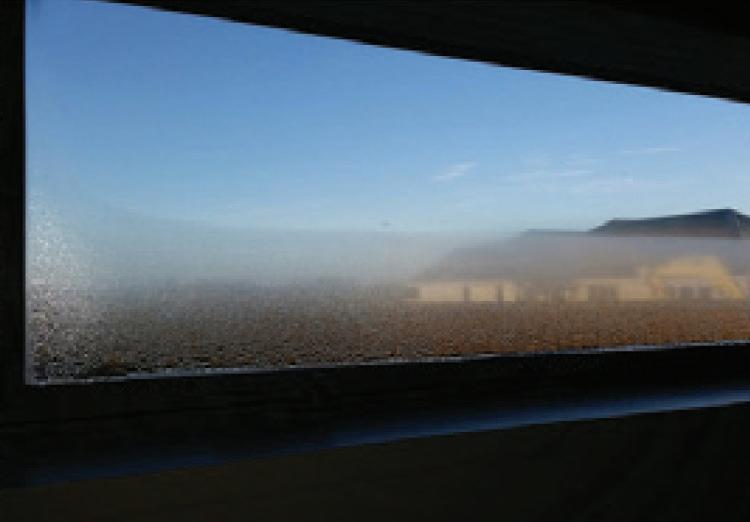
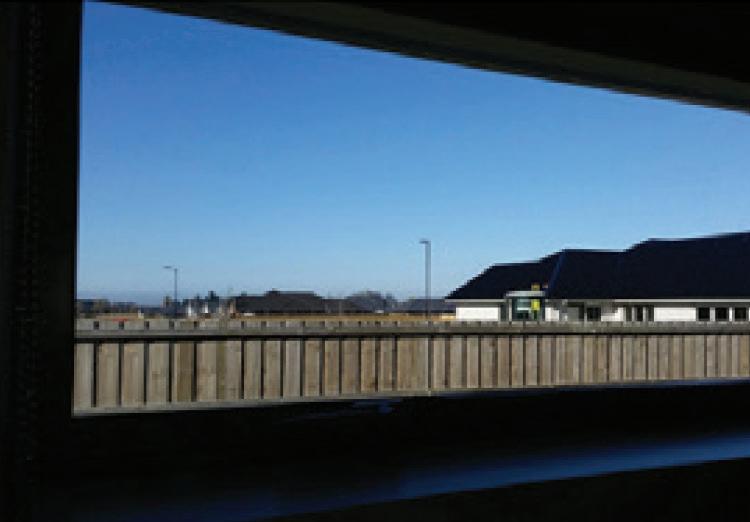






By Jamie Quinn
It’s never too late to quit smoking, no matter how long you've been doing it.
Some people think that if they've smoked for years, the damage is done, and quitting won’t make much of a difference. But that couldn't be further from the truth. In fact, even if you've been smoking for decades, stopping now can drastically improve your health and overall quality of life, and the benefits start almost immediately.
Let’s start with the reality of smoking. We all know smoking is harmful, but it’s important to understand just how damaging it can be. Smoking impacts almost every organ in your body, especially your lungs and heart. Smokers are much more likely to develop chronic conditions like lung cancer, chronic obstructive pulmonary disease (COPD), and heart disease. In fact, smoking is one of the leading causes of preventable death worldwide, and New Zealand is no exception.
In New Zealand, smoking remains a significant public health issue. According to the Ministry of Health, around 4,500 to 5,000 New Zealanders die each year from smoking-related illnesses. That’s about 12 to 13 deaths every day. These statistics include people who have been lifelong smokers, as well as those affected by secondhand smoke. Even more troubling, a 2021 study showed that around 12% of New Zealand’s population over the age of 15 are regular smokers, with a higher prevalence among Māori and Pacific communities. For Māori, the smoking rate is around 28%, and smoking contributes to significant health disparities in these populations.


Globally, smoking kills more than 8 million people every year, with over 1.2 million of these deaths due to secondhand smoke exposure. In New Zealand, about 300 people die each year from secondhand smoke alone. These numbers can seem overwhelming, but they also highlight just how important it is to quit smoking—at any age.
Here’s the good news: quitting smoking can reverse a lot of the damage, even if you've been smoking for a long time. The body has an incredible ability to heal itself, and the benefits of quitting start as soon as you stop smoking. Within 20 minutes of your last cigarette, your heart rate and blood pressure drop. In just 12 hours, the carbon monoxide levels in your blood decrease, allowing more oxygen to circulate.
Over the next few weeks, you’ll likely notice improvements in your lung function. You may find it easier to breathe, with less coughing and shortness of breath. After a year, your risk of heart disease drops by half, and if you stay smoke-free for 10 years, your risk of dying from lung cancer is about half that of someone who continues smoking.
For older adults, the benefits of quitting are just as real. Even if you’ve been smoking for decades, quitting now can add years to your life. Studies show that people who quit smoking after the age of 65 can reduce their risk of dying from heart disease by up to 50%. For Māori and Pacific elders, where smoking rates are higher, the impact of quitting can be even more significant in terms of improving life expectancy and reducing health inequalities.
Quitting smoking doesn’t just benefit your physical health—it can also improve your mental well-being. Many smokers feel trapped in a cycle of craving and withdrawal, which can increase feelings of stress


and anxiety. Breaking free from nicotine addiction often leads to better emotional health over time. Studies have shown that people who quit smoking tend to experience less anxiety, depression, and stress than those who continue smoking.
And let’s not forget the impact on your loved ones. Quitting smoking protects the people around you from the harmful effects of secondhand smoke. In New Zealand, children exposed to secondhand smoke are more likely to suffer from respiratory infections, asthma, and even sudden unexpected death in infancy (SUDI). By quitting, you’re not just taking a step toward better health for yourself—you’re also helping to create a healthier environment for your family and friends.
Of course, quitting smoking isn’t easy, especially if it’s been a part of your life for many years. But the resources available to help you quit have never been better. In New Zealand, you can access free support through Quitline, which offers advice, encouragement, and nicotine replacement therapies like patches, gum, and lozenges. Many people find that having support—whether through friends, family, or professional help—makes the process of quitting more manageable.

It’s never too late to quit smoking. No matter how long you’ve smoked or how old you are, quitting can dramatically improve your health and well-being. Deciding to stop smoking can add years
to your life and improve your quality of life. Whether you’ve been smoking for decades or just a few years, your body will begin to heal the moment you quit. You’ll lower your risk of serious diseases, breathe easier, and feel better both physically and mentally. So, if you’ve been wondering whether it’s too late to quit, remember this: it’s never too late to make a positive change.
Here’s the good news: quitting smoking can reverse a lot of the damage, even if you've been smoking for a long time. The body has an incredible ability to heal itself, and the benefits of quitting start as soon as you stop smoking.
Within 20 minutes of your last cigarette, your heart rate and blood pressure drop. In just 12 hours, the carbon monoxide levels in your blood decrease, allowing more oxygen to circulate.
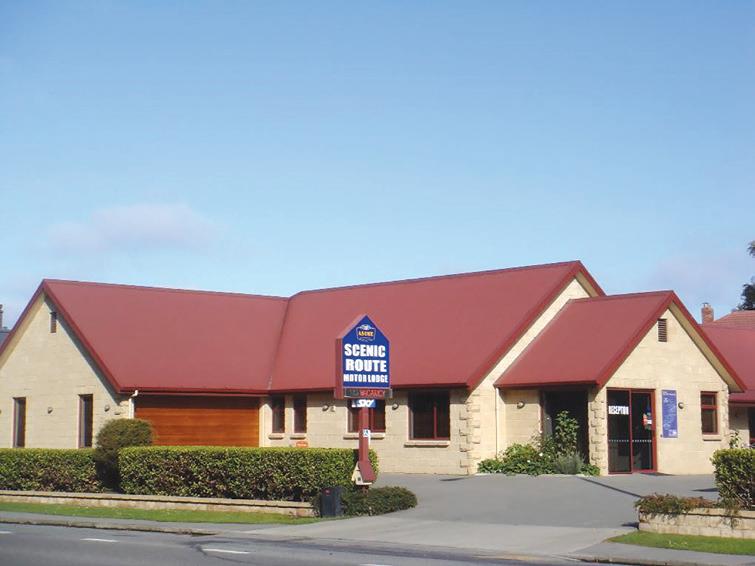

Pakawau Beach Camp sits on the sea front enabling you to enjoy the sounds of waves meeting the shore, to amazing sunrise and sunsets over the ocean.
Come and pitch your tent, park your camper van or stay in one of our beach front cabins.
Less than a 20-minute drive from Pakawau you will discover an abundance of stunning scenery including, Cape Farewell, Farewell Spit, Puponga Farm and Wharariki Beach.
Pakawau Beach Camp 03 524 8308 accompakawaubeachpark@gmail.com

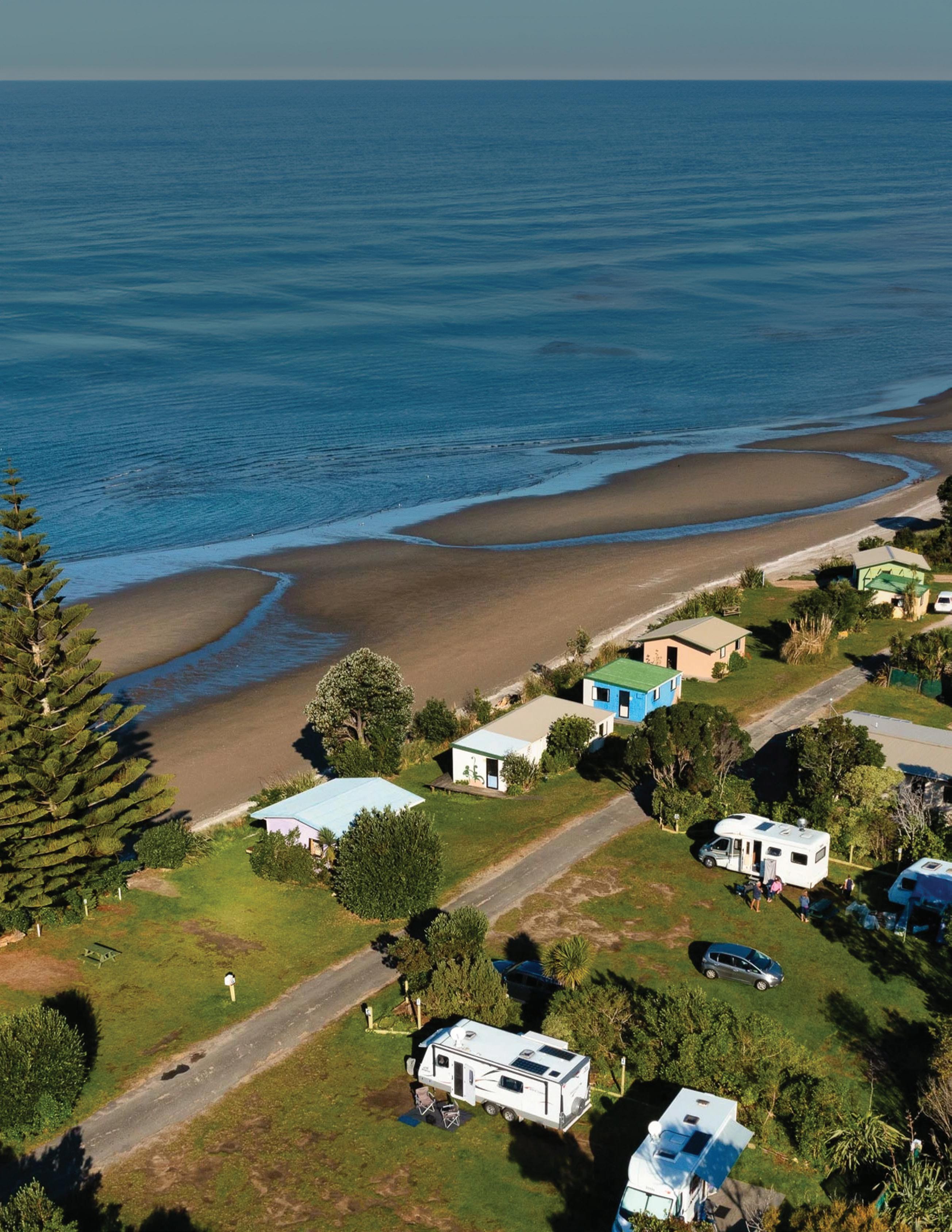
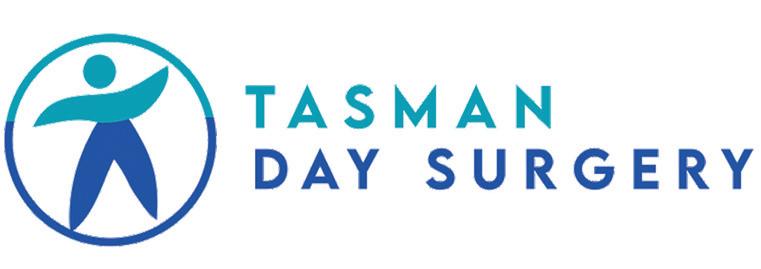

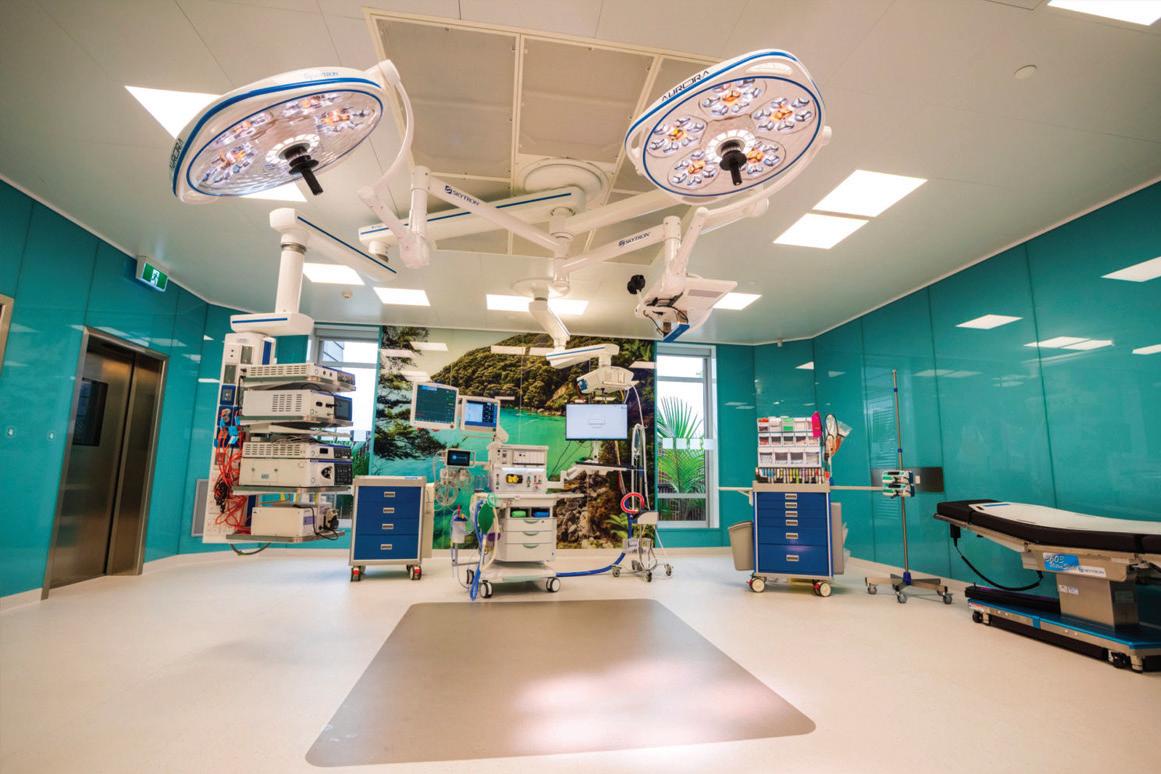

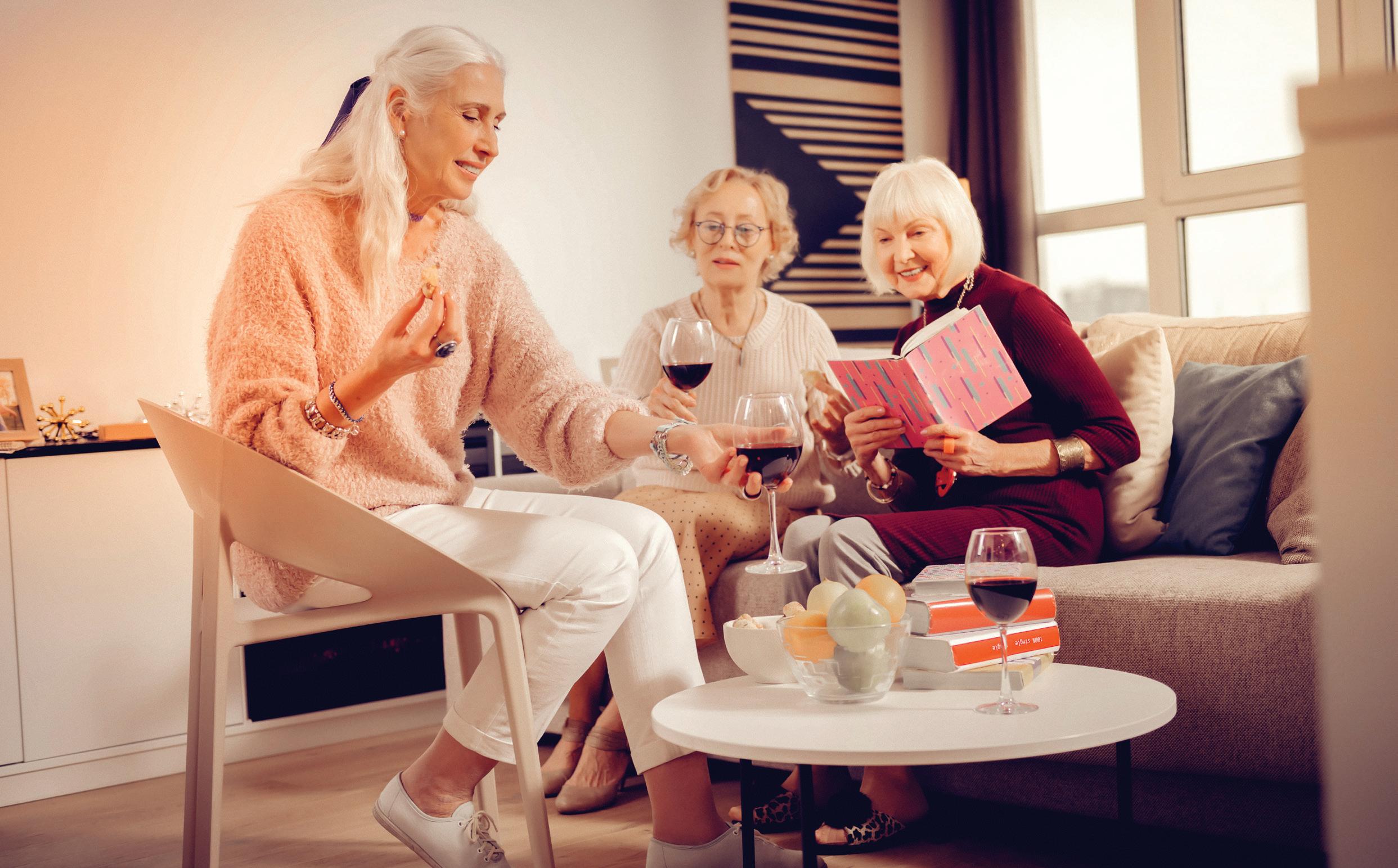
Imagine a cosy evening surrounded by friends who share your passion for books. You're discussing a captivating novel, sharing your thoughts and insights, and discovering new perspectives.
That's the magic of a book club. Starting your own book club is a fantastic way to connect with like-minded individuals, explore new literary worlds, and foster a sense of community. Here’s how to start your own:
Start by reaching out to friends, family or co-workers who share your love of reading. Take advantage of social media to find likeminded people, and join book club groups to post about your intentions and invite others to join. Encourage members to spread the word about your book club to attract new members.
Choose a meeting place
Decide on a location that is convenient for everyone. Options could be libraries, coffee shops, community centres, or member homes.
Set a schedule
Determine how often you want to meet, e.g., fortnightly or monthly. Choose a day and time that works for your members.
Book selection
Decide how books will be chosen. You can do this by:
Voting: Members suggest a book and vote on their favourites. Theme: Choose books based on a theme or genre.
Curator: Appoint a member to select books.

Take turns: Each member takes turns choosing a book. Make sure your book selections cover a range of genres, authors, and perspectives to cater to diverse interests.
structure
Start each meeting with a fun icebreaker to keep things social and encourage participation. The aim is to create a welcoming and inclusive atmosphere where everyone feels comfortable sharing their thoughts and opinions.
Consider using a structured discussion format, such as a book circle or a debate, to keep the conversation focused and engaging.
Develop thought-provoking questions to guide discussions. Consider questions that explore themes, characters, plot, and the author's style.
Rotate the role of facilitator among members to give everyone a chance to lead the conversation.
Book-to-film discussions: Watch a movie adaptation of a book and discuss the similarities and differences between the two mediums.
Reading challenges: Encourage members to participate in reading challenges, such as reading a certain number of books in a year or reading books from a specific genre.
Book club bingo: Create a bingo card with different reading criteria and challenge members to complete a row or column.

Check out this selection of 2024’s best-sellers.
By Jamie Quinn

Hannah
The Women is a poignant novel that follows a group of female nurses serving in the Vietnam War. The story centres on Frances "Frankie" McGrath, who enlists after her brother's death. It explores the challenges, sacrifices, and enduring bonds formed by these women as they navigate the horrors of war and societal indifference upon their return.
The Housemaid by Freida McFadden
This suspenseful thriller follows a young woman named Greta, who accepts a nanny position in a wealthy family's isolated mansion. As she settles into her new life, Greta begins to uncover disturbing secrets about the family and their past. With a growing sense of unease, she realises that she may be trapped in a dangerous game where trust is fragile, and everyone has something to hide.
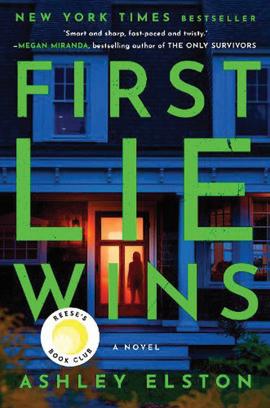

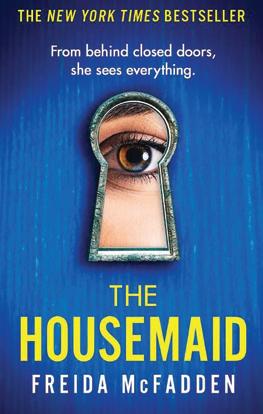
In this gripping thriller, a woman named Emily becomes entangled in a dangerous game of deception and blackmail. After witnessing a murder, Emily finds herself caught between the powerful individuals involved and must navigate a web of lies and secrets to protect herself and her loved ones.
Then She Was Gone by Lisa Jewell
Then She Was Gone follows the disappearance of Laurel. As the investigation unfolds, the lives of her family and friends are turned upside down. The novel explores the complexities of grief, the dark secrets that can be hidden within a seemingly perfect community, and the lengths people will go to protect their loved ones.

In the latest Jack Reacher adventure, Reacher finds himself in a small town where a mysterious disappearance has left the locals shaken. As he delves deeper into the case, Reacher uncovers a web of corruption and danger that threatens to engulf the entire community.

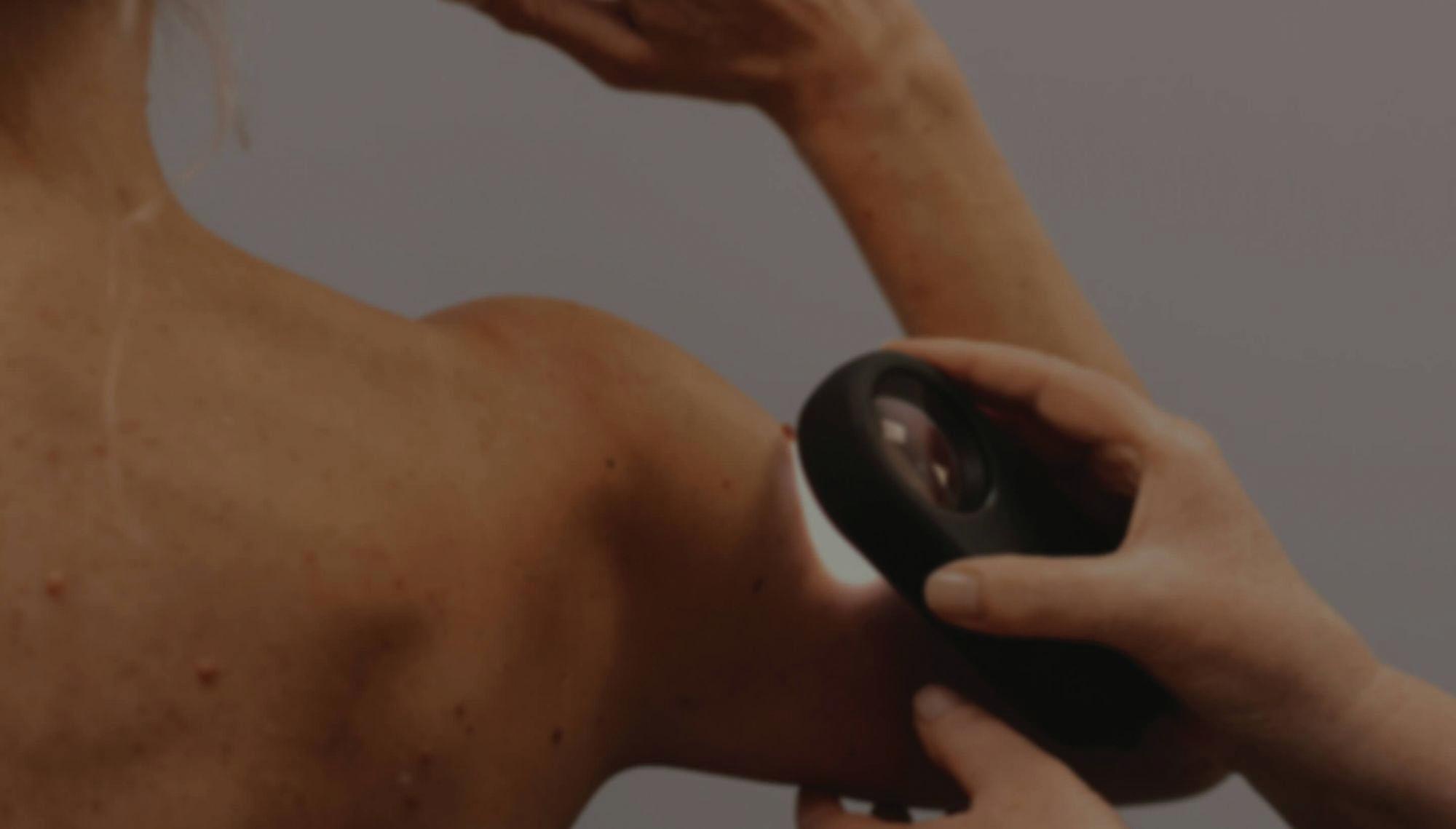
At MoleMap, we don’t just check. We ‘triple’ check. Our melanographer + dermatologist + AI-assisted diagnostic tools offer fast results with high accuracy. Plus, with our mole check and monitoring service, you can track your body over time. This is important because skin lesions (AKA moles) can change quickly. Spotting change early can reduce your risk of skin cancer.
www.molemap.co.nz



Book a mole check in Wigram and get the reassurance of MoleMap’s proven two-check system. Our trained melanographers perform a thorough skin assessment and any ‘at risk’ lesions are imaged and sent for dermatologist diagnosis. This proven, two-check system sets MoleMap apart—and provides the peace of mind you deserve.
• SkinCheck
• SkinCheck+
• Full Body MoleMap
MAKE AN APPOINTMENT
0800 665 362
59 The Runway, Wigram Skies, Christchurch, 8042, Canterbury
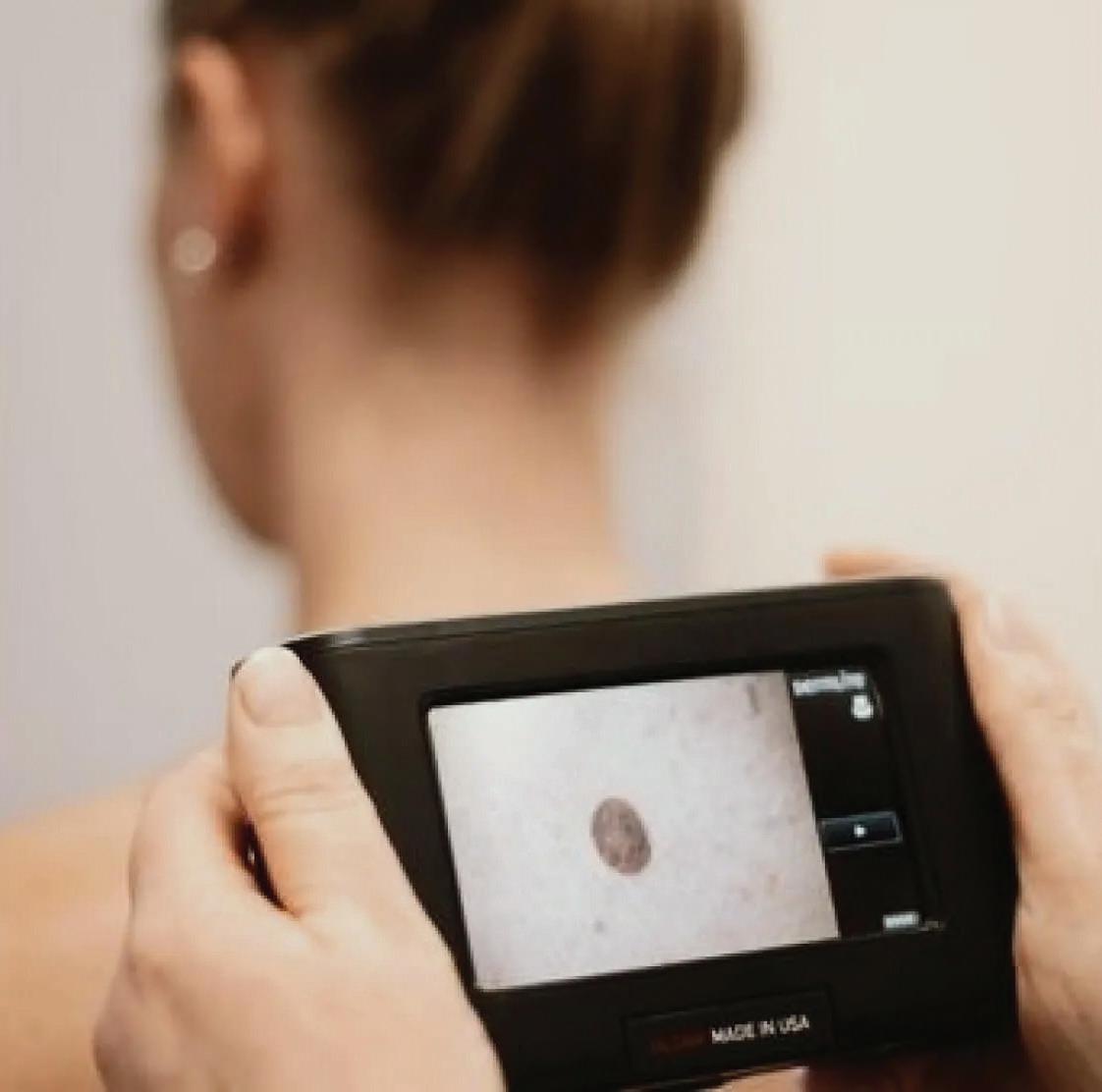
By Jamie Quinn
Joining a social club in retirement can bring immense social and mental benefits, particularly for those transitioning from a busy work life to a quieter daily routine.
Clubs like the Christchurch Guild of Weavers and Spinners offer a welcoming environment where retirees can meet others, develop new skills, and enjoy a shared passion. The guild, which has been part of the community for over 55 years, demonstrates how social clubs can create a sense of belonging and positively influence lives.
Eleanor Patterson, the secretary of the Christchurch Guild of Weavers and Spinners, highlights the club’s rich history. “The guild began more than 55 years ago and took up residence in the Arts Centre,” she says. Several influential women were behind its foundation. “Some of the founding members were Mary Bartlett, Anne Field (Anne published many books about weaving and spinning and was a teacher of both disciplines), and Pauline Pease. Doreen Fraser was a great teacher and experienced weaver; Meg Anderson is our Patron and one of the founding members and is 103 years old.”
The goals of the guild were clear from the beginning. | “The objective of the guild is to foster interest in, encourage, advance, develop and promote the crafts of weaving, spinning, dyeing and allied crafts,” Eleanor explains. But beyond the crafts themselves, the guild aims to create a community, “to bring together people who practise the arts of hand-spinning, weaving, dyeing and allied crafts for their mutual benefit, and for the advancement of these crafts by teaching, discussion, and exhibition of work.”
For retirees, finding a place where they can connect with others while enjoying shared interests can significantly improve their quality of life. The Christchurch Guild of Weavers and Spinners currently has a membership of 130 people. The club’s inclusivity and openness to new members make it a great choice for retirees looking for community and learning opportunities.

The guild is structured as an incorporated society, meaning it operates with its own constitution and is managed by a committee.
Eleanor shares that the committee meets monthly and makes key decisions regarding the guild’s operations. This structure allows the guild to function efficiently while members focus on practising their craft and enjoying the social aspects of the group.
Weaving and spinning are at the heart of the guild’s activities, with members working on table looms, floor looms, and even drop spindles and spinning wheels. Some projects are collaborative, allowing members to weave individual pieces on a shared loom. “The weaving group regularly participate in group projects where the loom is set up for a particular weave, and participants can weave their own piece – when everyone is finished, the weaving is cut off the loom, and each person can take their own portion,” says Eleanor.
One of the most significant aspects of joining a social club is the social interaction it provides. Loneliness can be a challenge for many retirees, but Eleanor is proud of how the guild supports connection. “We meet several times a week at the Guild,” she explains. “These sessions allow people to relax and enjoy
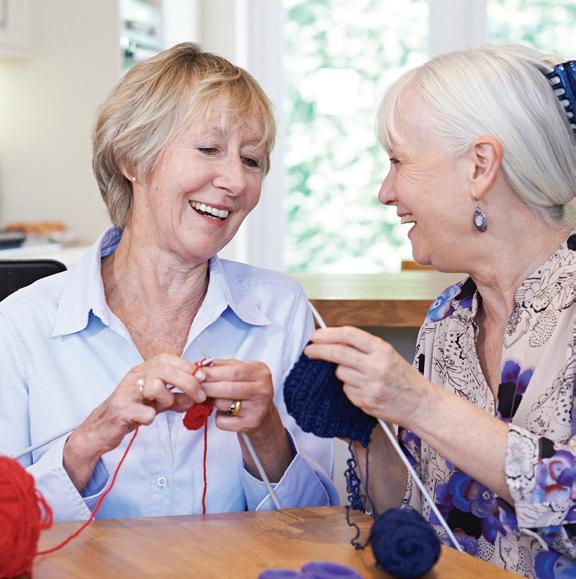
For retirees, finding a place where they can connect with others while enjoying shared interests can significantly improve their quality of life. The Christchurch Guild of Weavers and Spinners currently has a membership of 130 people. The club’s inclusivity and openness to new members make it a great choice for retirees looking for community and learning opportunities.
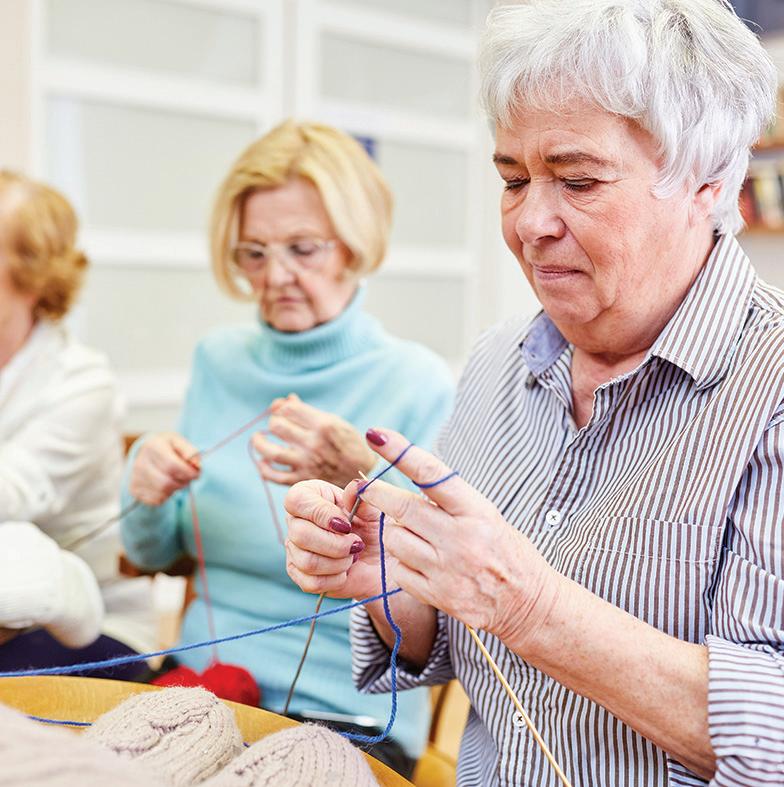

the company of like-minded people. Many guild members have forged firm friendships both within and outside of the guild, and members are very caring of one another.”
Beyond the crafts, the guild offers retirees a mental health boost by providing structure and a sense of purpose. Joining a regular group and building friendships can make retirement feel less isolating. Eleanor recalls a touching story of a new member’s experience: “One of our new members came along for the first time and was heard to say, ‘I’ve found my tribe.’” For many retirees, finding a place where they belong can be a transformative experience.
The guild also hosts workshops and classes for both members and the public, allowing people to learn new skills or enhance their existing ones. “The most popular classes are for beginner spinning and beginner weaving, and we gain new members after people have done these classes,” Eleanor explains. The guild’s rooms at the Tannery in Christchurch are equipped with floor looms, table looms, and other essential tools, making it easy for members to participate and continue honing their craft.
Eleanor notes, “No specific plans for expansion at this point as we are limited by the size of our rooms, but we welcome new members and are always open to new ideas.” This openness makes it a welcoming space for people looking to engage with others while pursuing new interests.
For retirees seeking social interaction, mental stimulation, and a sense of belonging, joining a club can be incredibly fulfilling. Social clubs can be a welcoming place to forge lasting friendships and feel part of something bigger.
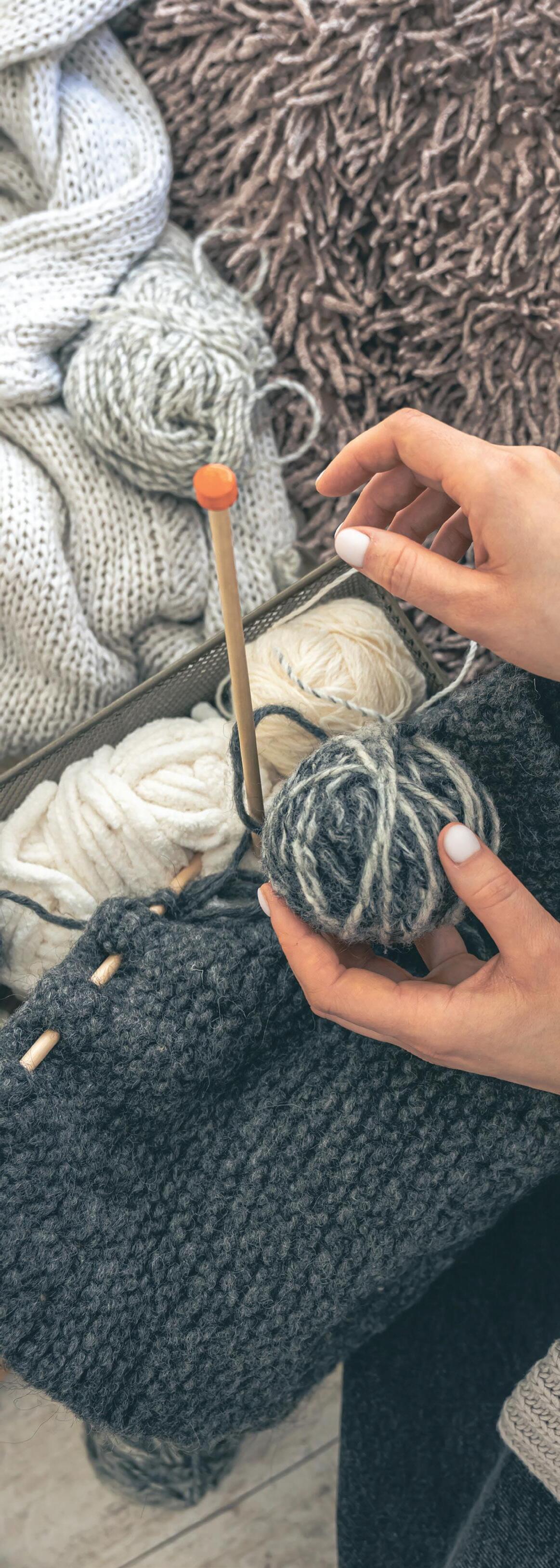

By Jamie Quinn
Tattoos are no longer just for the young and rebellious. More older adults are embracing the art of tattooing, finding it a meaningful and fun way to express themselves. If you’re an older adult thinking about getting inked, you’re in good company. But, like any big decision, it’s important to be informed.
Life is full of ups and downs, moments of joy, and lessons learned. Sometimes, those moments deserve to be celebrated in a big way. A tattoo can be a beautiful way to capture those memories. Maybe it’s a tribute to a loved one, a reminder of a milestone, or simply a piece of art that speaks to your soul. Whatever the reason, getting a tattoo is a way to honour your life’s journey and tell your story.
At this stage of life, many of us have a clear sense of what’s important to us. We’re less concerned with what others think and more focused on what makes us happy. If getting a tattoo brings you joy, then why not go for it? It’s all about living life on your terms.
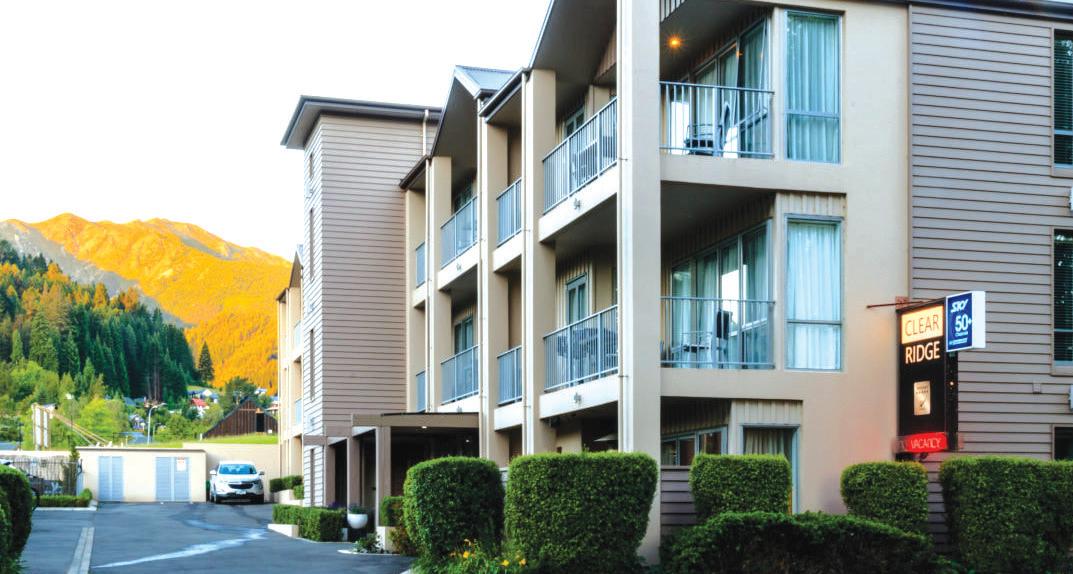

Our skin changes as we age; it becomes thinner and has more wrinkles. But that doesn’t mean we can’t get tattooed. The key is to do your research and find a tattoo artist who is knowledgeable and experienced in working with older skin. These artists will know how to adjust their technique to make sure your new ink is of high quality.
You might be worried about the pain—after all, tattoos do involve needles. But here’s the thing: pain tolerance varies from person to person. Many older adults find that the experience is totally manageable. If you’re concerned, why not start with a smaller design to see how it feels? You can always go bigger later if you decide you love it!
How do I take care of it?
Once you’ve got your new tattoo, it’s important to take care of it. As we age, our skin takes longer to heal, so following your tattoo artist’s aftercare instructions is vital. Keep the tattoo clean and moisturised, and avoid the sun while it heals.
Staying hydrated is also important. Drink plenty of water and eat well to support your skin’s healing process. And remember, if something doesn’t look or feel right, like unusual redness or pain, don’t hesitate to reach out to your tattoo artist or see a doctor. It’s better to be safe and keep that new ink looking great.
If you’re taking regular medications, especially blood thinners or anything that affects your immune system, it’s a good idea to have a chat with your doctor and tattoo artist beforehand. Some medications can increase bleeding or affect how your skin heals. Your doctor can give you advice on how to manage this and make sure it’s safe for you to get tattooed.
It’s important to carefully consider a tattoo, no matter how old you are. But it doesn’t have to be a big deal. At the end of the day, getting a tattoo is about doing something that makes you feel good. It’s a chance to wear your heart on your sleeve and express who you are in a unique and meaningful way. If you’ve been thinking about getting a tattoo, why not take the leap? Find a tattoo artist you trust, talk through your ideas, and enjoy the experience. Life is too short not to celebrate what makes you, you.




By Jonathan Taylor
Plenty of life-changing resolutions are often made impulsively, with little thought given to long-term goals, which means they are usually short-lived.
Examining a few health facts and implementing some simple lifestyle changes each day will make a difference to your overall health.
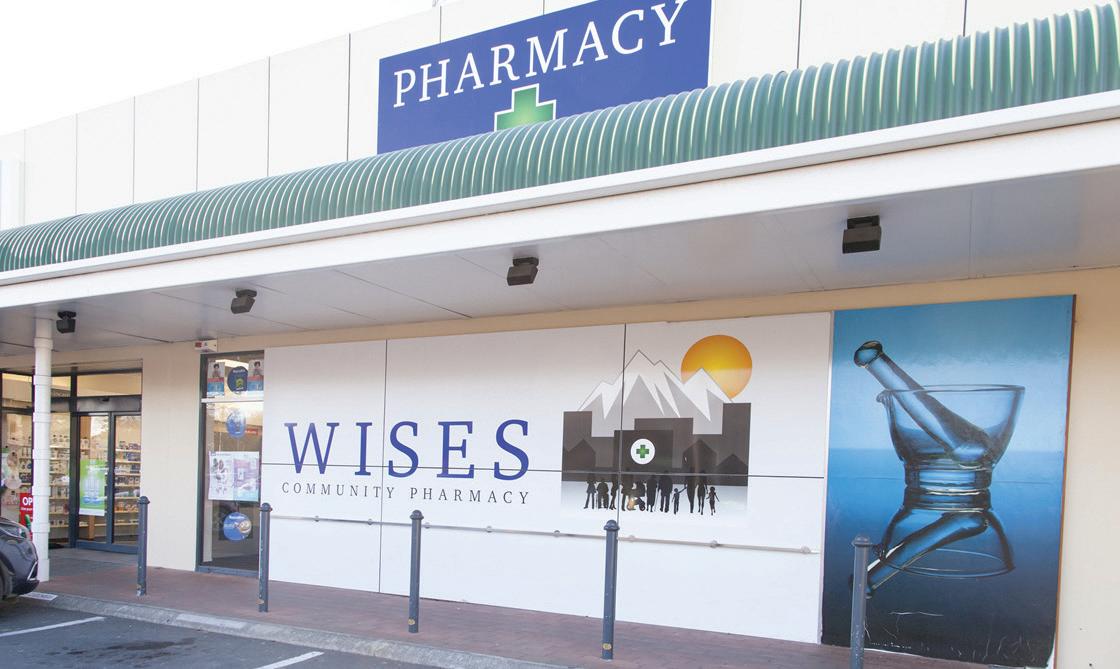
Wises Pharmacy has been an institution in Ashburton for the past 25 years and has established a tradition of great customer service for it's patrons.
• Women's Health Services
• Men's Health Services
• General Health Services
• Prescriptions
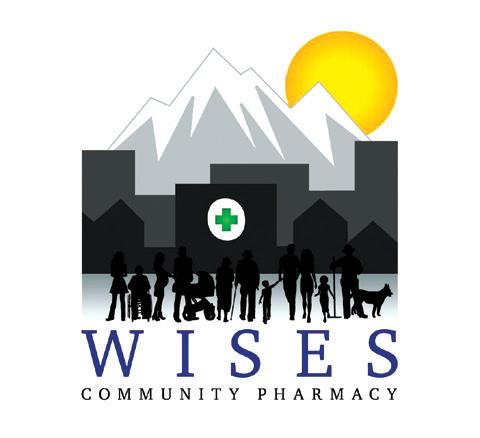
1. Meditation minimises disease - Meditation is an excellent tool for taking charge of your health. Research shows that just 20 minutes of quiet time each day can significantly reduce your risk of heart attack or stroke by lowering blood pressure and cholesterol levels.
In countries like India and China, meditation has been practiced for centuries to alleviate stress and enhance focus. Studies suggest that transcendental meditation, which involves using mantras to achieve deeper relaxation, offers even greater benefits for both mind and body.
For instance, individuals with atherosclerosis who practised meditation were able to decrease their risk of fatal heart attack or stroke by 47 percent compared to those who only followed a healthy diet and exercise routine.
2. Replace hazardous laundry detergentsSome liquid laundry detergents contain harmful chemicals linked to cancer. Research indicates that these detergents can include around 25 volatile compounds that may negatively impact health.
The fumes released from washing machines and dryers can emit harmful chemicals like acetaldehyde into the air, which can also contaminate water supplies. Opt for safer, eco-friendly detergents to protect your health and the environment.
3. Juice your own fruits and vegetables for better health - Buying store-bought juice can be misleading; labels like "100% pure" or "freshly squeezed" may not reflect the truth.
For instance, during the processing of orange juice, manufacturers often remove oxygen molecules, allowing the juice to be stored for up to a year. This process strips the juice of its natural flavours, leading companies to add artificial fragrances and flavours.
To boost your health, avoid processed juices and take the time to juice your own fruits and vegetables for a fresher, healthier option.
4. Reduce beer consumption and drink alcohol in moderation - Heavy beer consumption can lead to liver damage and contribute to weight gain. A study involving over 500,000 individuals aged 35 to 70 revealed that those consuming 30 grams of pure alcohol daily from beer had a 75 percent higher risk of developing stomach cancer.
Furthermore, heavy drinkers with a specific gene variant related to alcohol metabolism face an even greater risk of stomach cancer, according to the American Association for Cancer Research.
It's best to enjoy alcohol in moderation and preferably with food, such as having a glass of wine with a meal or enjoying spirits in smaller amounts.
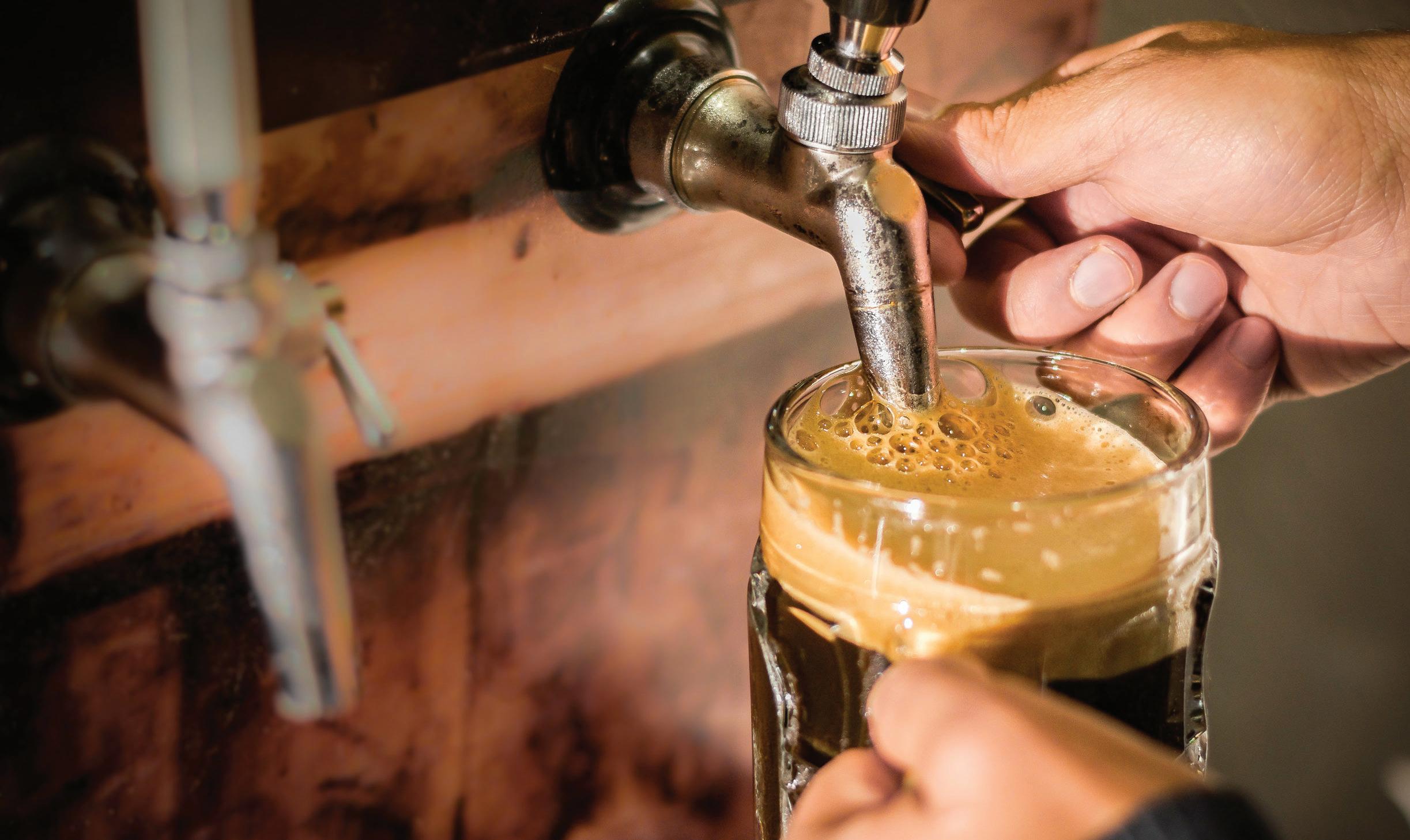
The Collingwood Tavern is located in one of the South Island’s most beautiful places, sunny Golden Bay.
Collingwood Tavern is built on a peninsula with the Aorere River estuary as a back boundary, it has stupendous views out over Golden Bay and to the mountains in the south. This is the place for relaxed living by day and glorious sunsets most evenings.
With a spacious main bar, two garden-bar areas, and a restaurant with indoor and outdoor dining areas, Collingwood Tavern is well positioned to capture much of the passing tourist trade. Enjoy exquisite views from their sunset balcony and two beer gardens. The dining area seats about 100 people and has folding doors that open right out to give an inside-outside eating experience. Specialities include delicious seafood and tasty roasts, and they also have vegetarian meals available. The tavern has a main bar and it has a separate gaming room with pokies, a garden bar and kitchen services. The garden bar is covered with canvas in the summer for sun protection. There is a second garden area close to the estuary for those who want to sit in the sun.
Enjoy exquisite views from their sunset balcony and two beer gardens.
With the Golden Bay being a popular tourist destination, year round, it is known as a famous departure point for tours to Farewell Spit, and for trampers walking the Heaphy Track. This means the Collingwood Tavern opens early until late with indoor and outdoor dining available, and takeaway available.
If you’re after a drink at the bar and/or a delicious feed, hit up the Collingwood Tavern today! You can find the tavern on Tasman street in Golden Bay, or to book in advance call the team now on 036 524 8160. Check out their menus online at www.tinkystavern.co.nz.
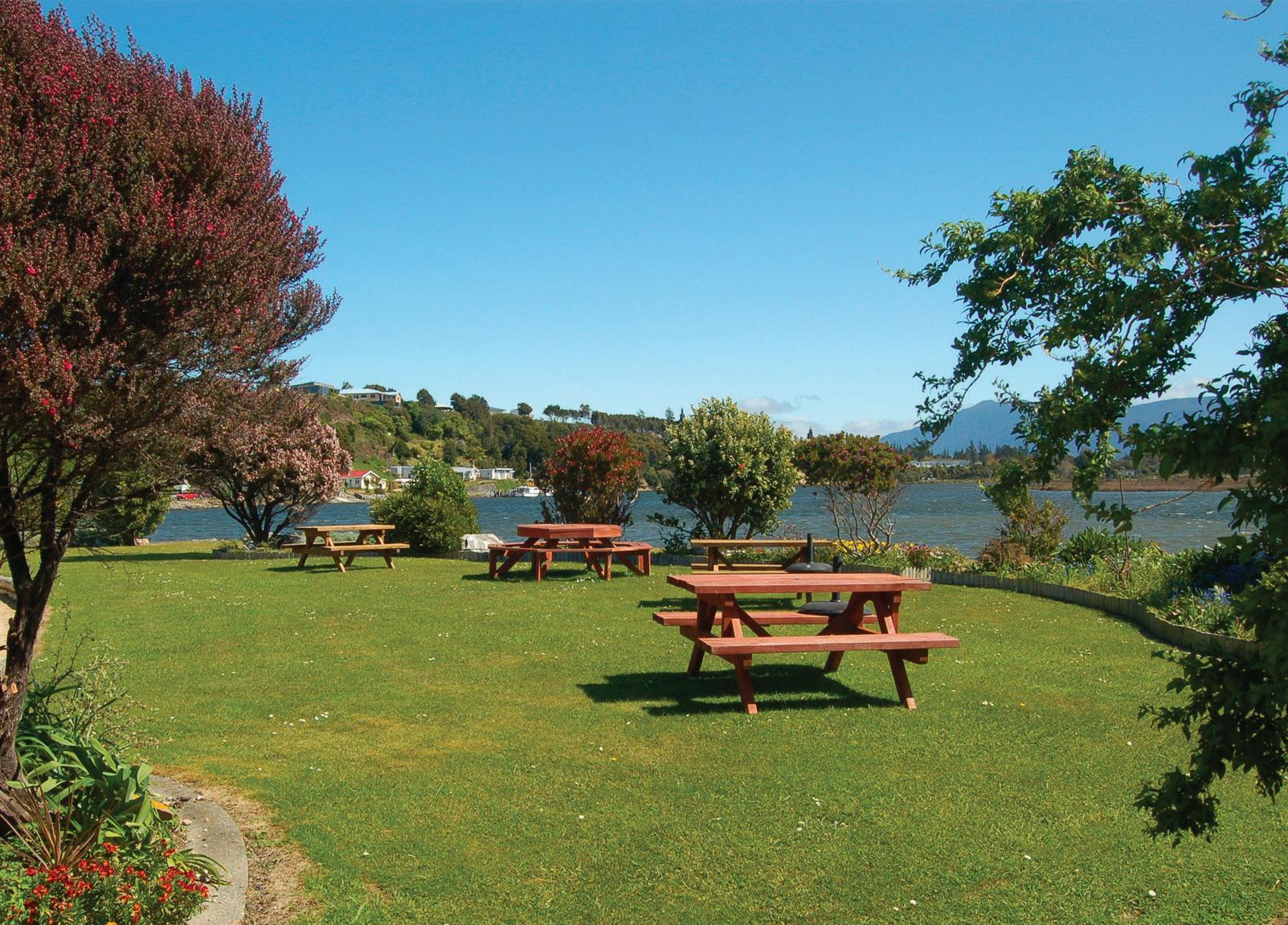
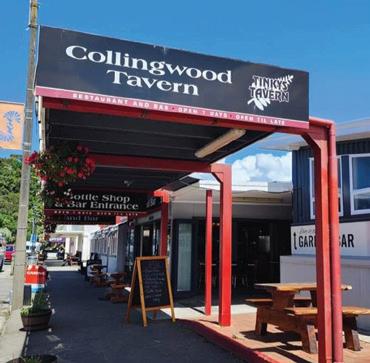

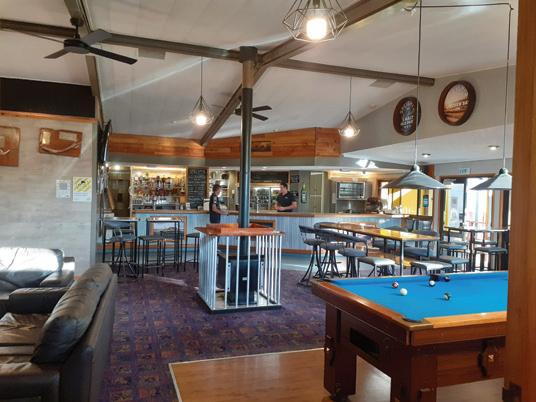
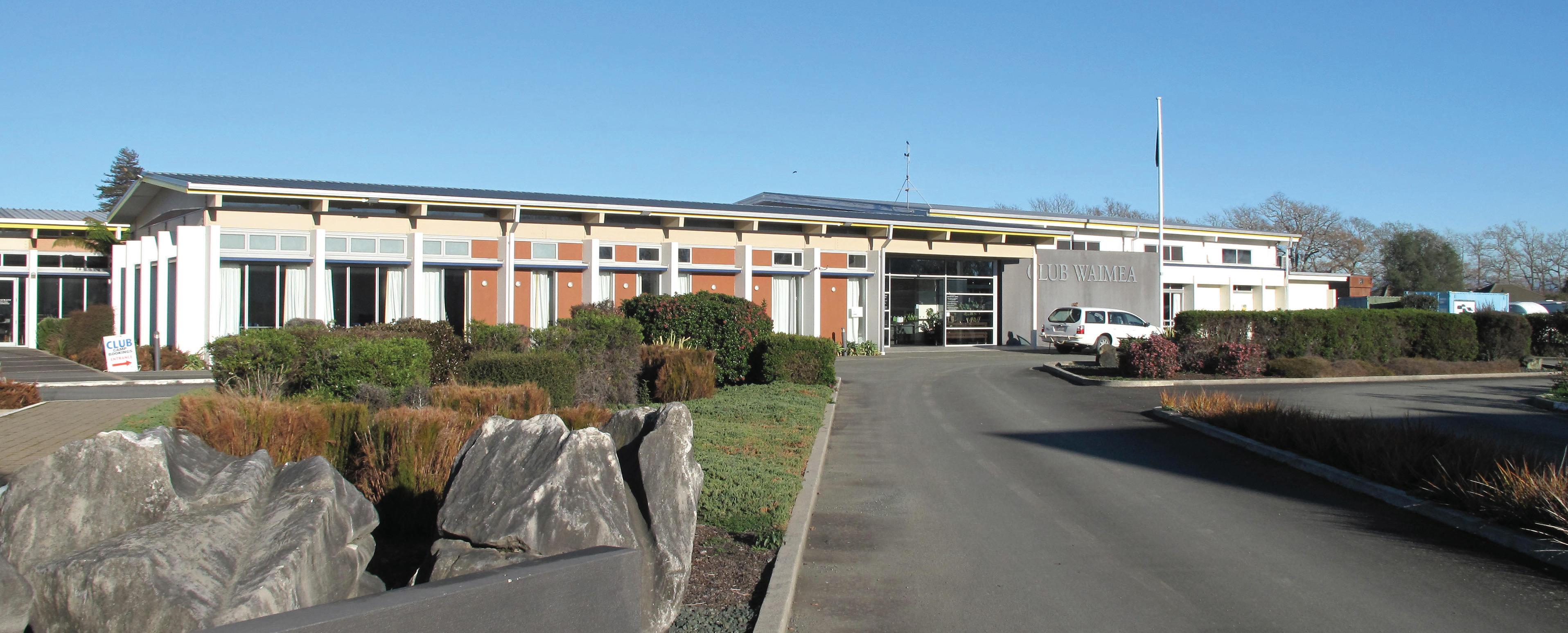


CLUB WAIMEA is a friendly place for members to meet up with friends and family & guests. Affiliated Clubs NZ Members are also welcome to use our facilities.
With over 14 sporting sections, various entertainment each week, weddings, workplace training etc.
Gaming Room
18 Machines
Functions Hall with full Bar facilities
Heaps of Parking
Restaurant, Buffet and À la carte
Squash Courts
House Bar with Regular Entertainment
Caravan Park (with ablution block – full facilities)
All Year Round Outdoor Bowling Green
Rooms for Functions, Great Catering
Various Sporting Sections (Pool, Darts, Fishing etc.)
TAB and ATM
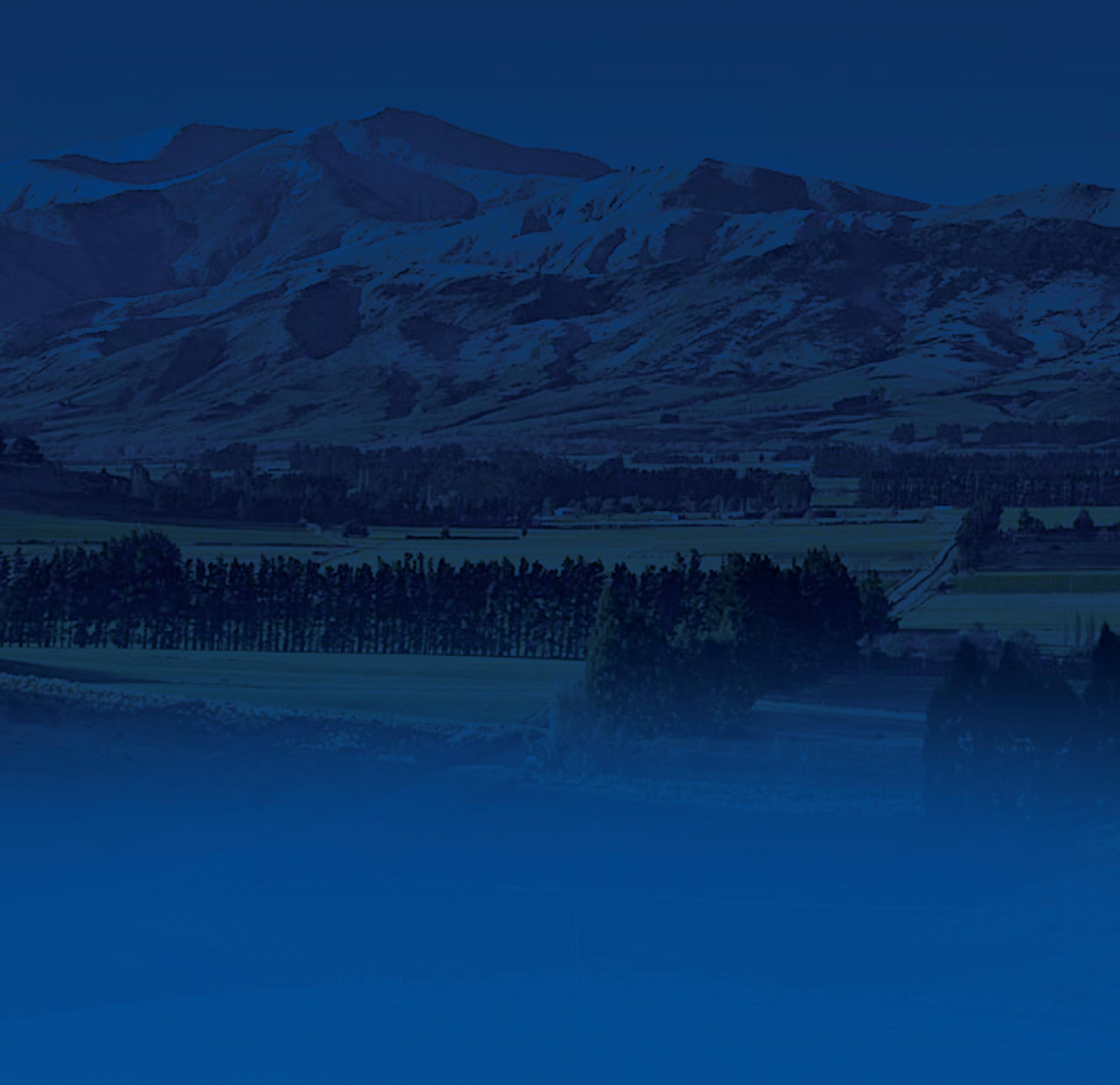
543 9179
reception@clubwaimea.co.nz
www.clubwaimea.co.nz


By Jamie Quinn

Today many of us live in a world of sensory overload, of speed and a sense of time-poverty. Technology moves faster and faster. We feel as if we can never catch up, that there is never enough time.
But it’s illusion. Time hasn’t changed – we have. The issue is how we view time. It seems that we never have enough. So – what can we do? Here are a few strategies for you.
we focus on,
If your primary focus is your work, then everything else takes a back seat as it consumes you. Where is your focus?








Treat appointments for yourself and family as seriously as an appointment with a key client and you’ll find the other ‘stuff’ fits in and around your core personal activities.
If you don’t block in ‘special’ time with your special people, they’ll eventually get tired of waiting. If you just wait for ‘spare time’ you’ll never have it.
Today many of us have forgotten how to live in the moment. We focus either on the past and what we could have done better, or in the future – planning or worrying over coming events. Most of us have forgotten to be ‘present’. We therefore miss the joy of the experience. And so time seems to race by – because we’re not ‘in’ it.
Notice your words and how the people around you speak. How often do you hear ‘I’m so busy’, ‘I can’t fit it in’, ‘I have no time’? Start using affirmations like ‘There is always enough time to do the things that matter’.
Appreciate the small things and find something in every event to appreciate. This is not just ‘Pollyanna’ behaviour – it will enhance your health and stretch your hours.
Next time you wash the dishes, the car, mow the lawns or do any simple task, enjoy the activity for itself. Instead of thinking about something else, honour the moment and the experience. Instead of leaving you with the feeling of hurry, pressure and impatience often felt with a mundane task, time will expand and you’ll be more relaxed when you finish.
Learn to meditate, or try to sit quietly for at least 10 minutes each day. Focus on a plant or some other object. As thoughts drift into your mind, acknowledge them and let them go. Focus on breathing deeply from your abdomen, as this helps you slow down to the natural rhythms around you… stretching time.

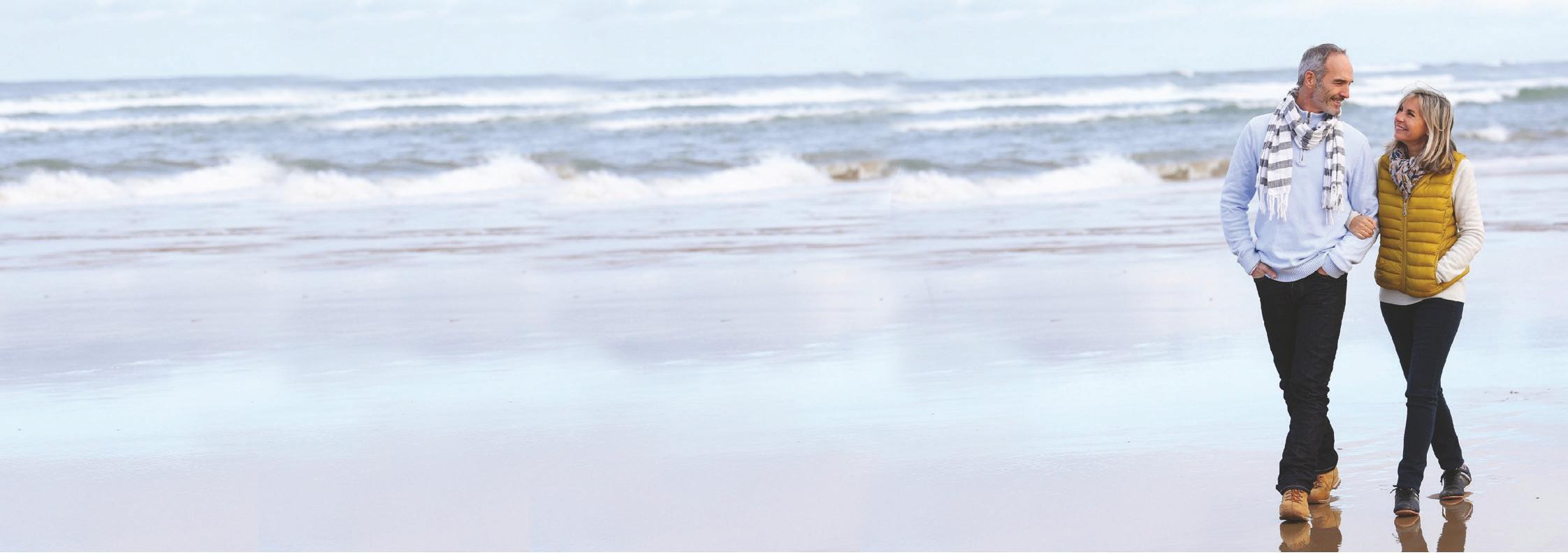
ARCH
ATOLL
BASIN
BAY BAYOU BEACH
BUTTE
CALDERA
CANYON
CAPE
CHANNEL
COAST
COVE
CREVASSE DELTA
DRAW
ANSWERS:
DUNE ESTUARY
FJORD GORGE GULLY HOODOOS ISLET KNOLL LAKE LAVA LEVEE
MESA OASIS
OCEAN PLAIN
PLATEAU
RAVINE RIDGE
RIVER
SALT FLAT
SEA SOUND SPIT
TIDE POOL VALLEY
RULES: Find and cross out all the listed words. The words may go horizontally, vertically, diagonally, not backwards. The remaining letters will spell one more geography term.
The old saying ‘use it or lose it’ applies as equally to mental acuity as it does to physical wellbeing, and more so as we age.
With people progressively living longer lives, it is increasingly important to look after our mental health.
So here are some activities for the mind… brain food for improving your state of mind.
RULES: Sudoku rules are simple. A 9×9 square must be filled in with numbers from 1-9 with no repeated numbers in each line, horizontally or vertically.
To challenge you more, there are 3×3 squares marked out in the grid, and each of these squares can't have any repeat numbers either.
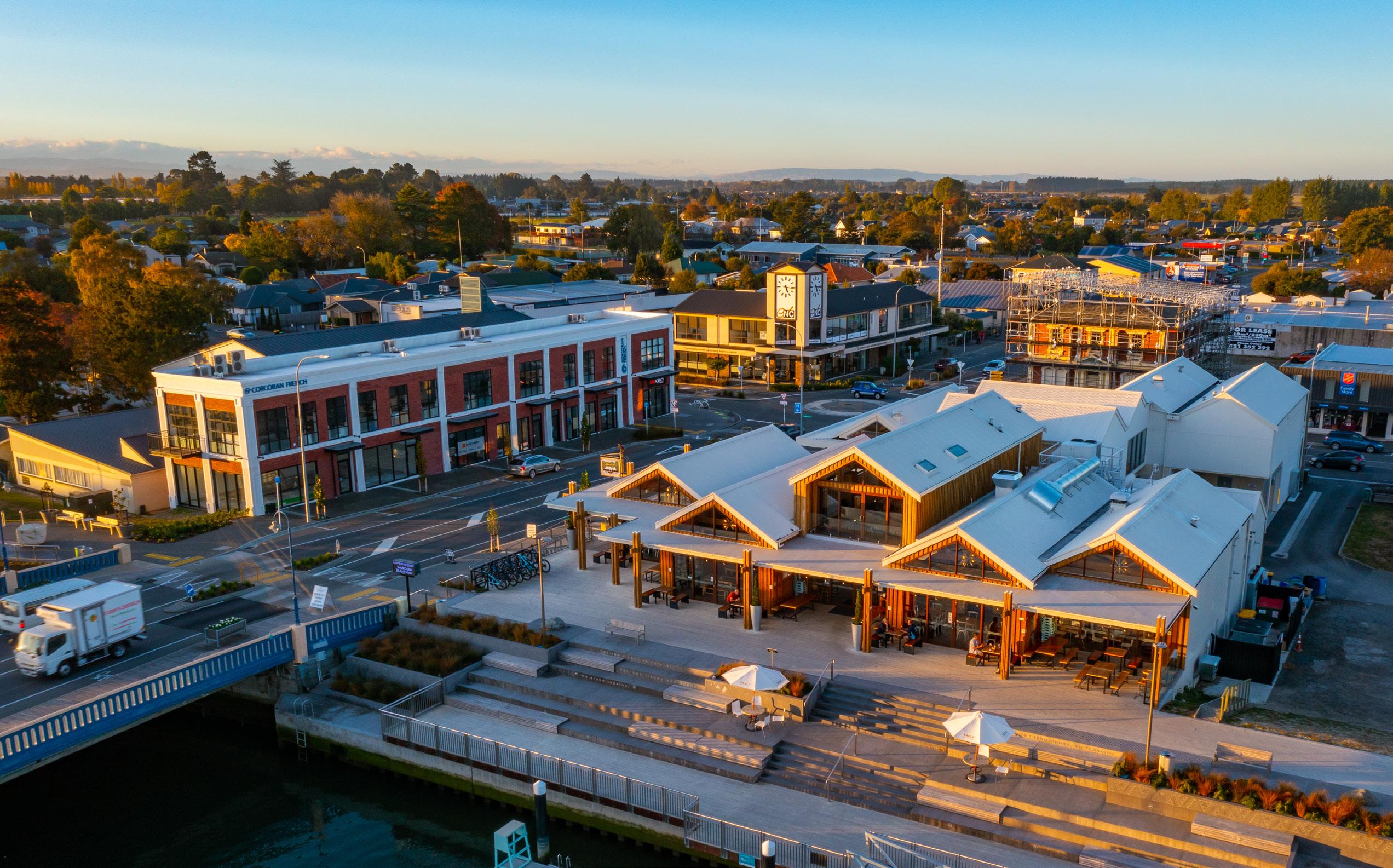






Family traditions are the cherished threads that weave together the fabric of our lives. These rituals, whether grand or simple, create an invaluable sense of continuity and belonging. They are not just practices passed down from generation to generation; they are the heartbeats of our familial connections.
One of the most profound impacts of family traditions is their ability to bridge the gap between generations. In an area where technological advancements often create a divide, these traditions serve as common ground. Grandparents, parents and grandchildren come together, sharing stories, recipes, and experiences that strengthen their bonds. Participating in and passing down these traditions offers a sense of purpose and fulfilment. It is a way to impart wisdom, share joy, and ensure that the family legacy continues.
The memories created through family traditions are irreplaceable. Whether it’s the annual holiday gathering, a summer family reunion, or a simple Sunday dinner, these moments become the stories we tell and retell. These memories are especially precious as they serve as a reminder of the love and laughter shared with family. Looking back on these traditions provides comfort and joy, reinforcing a sense of identity and belonging.
By Paige O'Brien
Engaging in family traditions has been shown to promote emotional well-being. These rituals provide structure and predictability, which are comforting, especially in times of change. Traditions offer stability and a sense of normalcy. They provide an opportunity to celebrate life’s milestones and cope with its challenges within the supportive embrace of family.
Family traditions contribute to a strong sense of identity. They are a way of expressing who we are and where we come from. Reflecting on these traditions can be a journey of self-discovery and reaffirmation. It is an opportunity to reconnect with our roots and celebrate our heritage. By involving younger generations in these traditions, we help instil a sense of pride and identity in our children and grandchildren, ensuring that the family’s values and stories are preserved.
It is crucial to ensure that family traditions continue. As society changes and evolves, maintaining these rituals helps anchor us to our core values and history. Ensuring that traditions are passed down to younger generations fosters a sense of continuity and connection. It teaches them about their heritage and the importance of family. This continuity not only enriches their lives but also strengthens the entire family unit.
Family traditions provide a meaningful way to spend time together. Whether it’s planning and organising a family event, cooking a traditional meal, or simply participating in a long-standing family game, these activities keep everyone engaged and active. This not only enhances physical well-being but also keeps minds sharp and spirits high.
Embracing and continuing these traditions is a beautiful way to celebrate family and ensure that its legacy thrives for generations to come. By making a concerted effort to pass these traditions down the line, we ensure that the values and stories of our family remain vibrant and alive, enriching the lives of those who come after us.



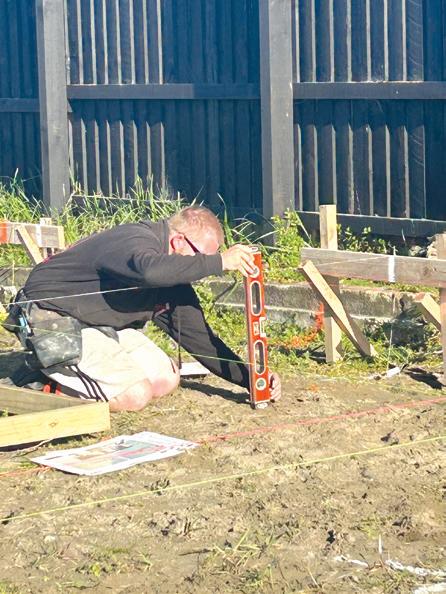

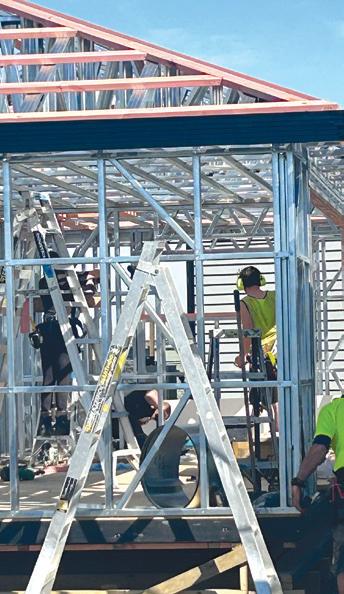


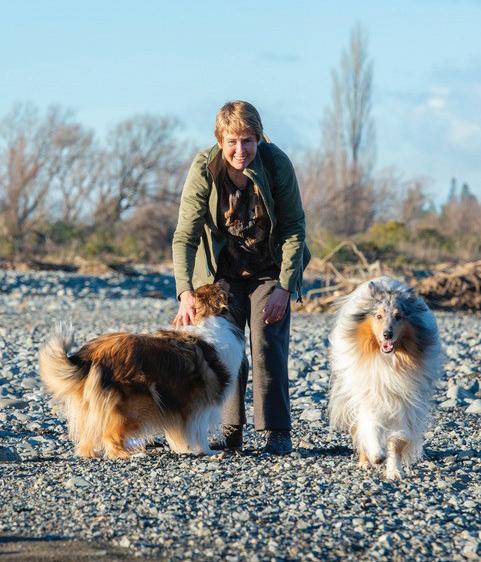
'Every year, bereaved New Zealand families are paying lawyers millions more than they need to, for basic paperwork, after a loved one dies' - says Kiwilaw lawyer, Cheryl Simes.
Spurred by a local client who needed letters of administration, Cheryl has developed a nationwide online service for bereaved families who need High Court approval ('probate') before they can uplift their loved one's financial assets or deal with their loved one's land. Although now based in North Canterbury, Cheryl's service is available anywhere in New Zealand or indeed overseas.
Probate is usually needed even if there is a valid will.
'Bereavement is hard. But before agreeing to anything, ask your lawyer for a specific probate estimate.
'Most lawyers charge from $1,000 to $3,000 just for probate, not counting the rest of the estate administration.'
Check the fee, before you agree.
It really is straightforward. An initial no-obligation online screening checks the will and any complications. If extra fees are required, you are told at that point. To go ahead, you answer questions in a simple online interview. Court-ready documents then arrive at your door, complete with instructions on what needs to be signed, how, where, and by whom, and how to send everything to the High Court for processing.
Where there's a valid will, Kiwilaw's fee is usually just $490 and you pay the $260 High Court fee direct.

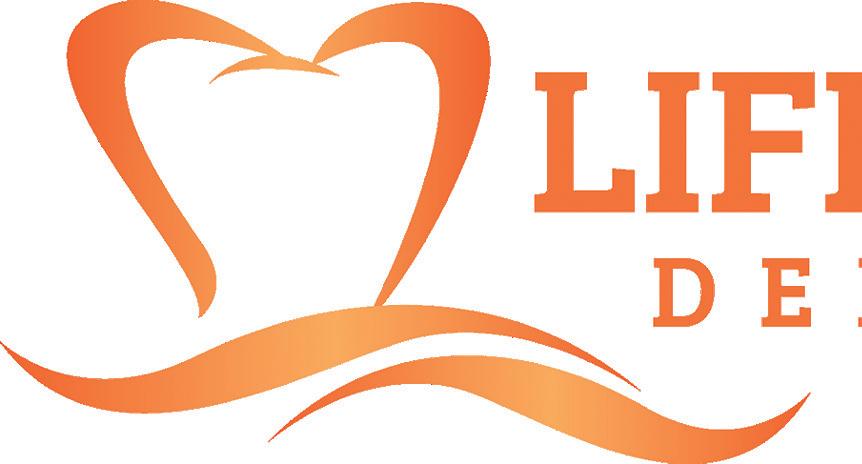

About to embark on a new chapter in life? Looking to downsize or just after a low maintenance, energy efficient, forever home? For over four decades, we’ve been dedicated to turning New Zealander’s dreams into reality, crafting homes that reflect their personality, suit their lifestyle, and exceed their expectations.
Downsizing doesn’t just mean a smaller home - it means less work, less maintenance, and less stress. With a new Jennian home you can say goodbye to the hassles of constant upkeep and hello to a lifestyle of ease and comfort. Our superior buying power means you’ll get exceptional value for money, without compromising on quality.
At Jennian, we understand that your home is a reflection of who you are, which is why we work closely with you to bring your vision to life. Whether you have a clear idea in mind or need a little bit of inspiration, our team will guide you through the process, ensuring every detail is just the way you want it.
Rangiora: 9 Homestead Drive, Rangiora Open: Wed-Sun 12-4pm
Christchurch: 27 Finstock Way, Rolleston Open: Sat-Sun 12-4pm
Ashburton: 4 Strowan Avenue Open: Sun 12-3pm

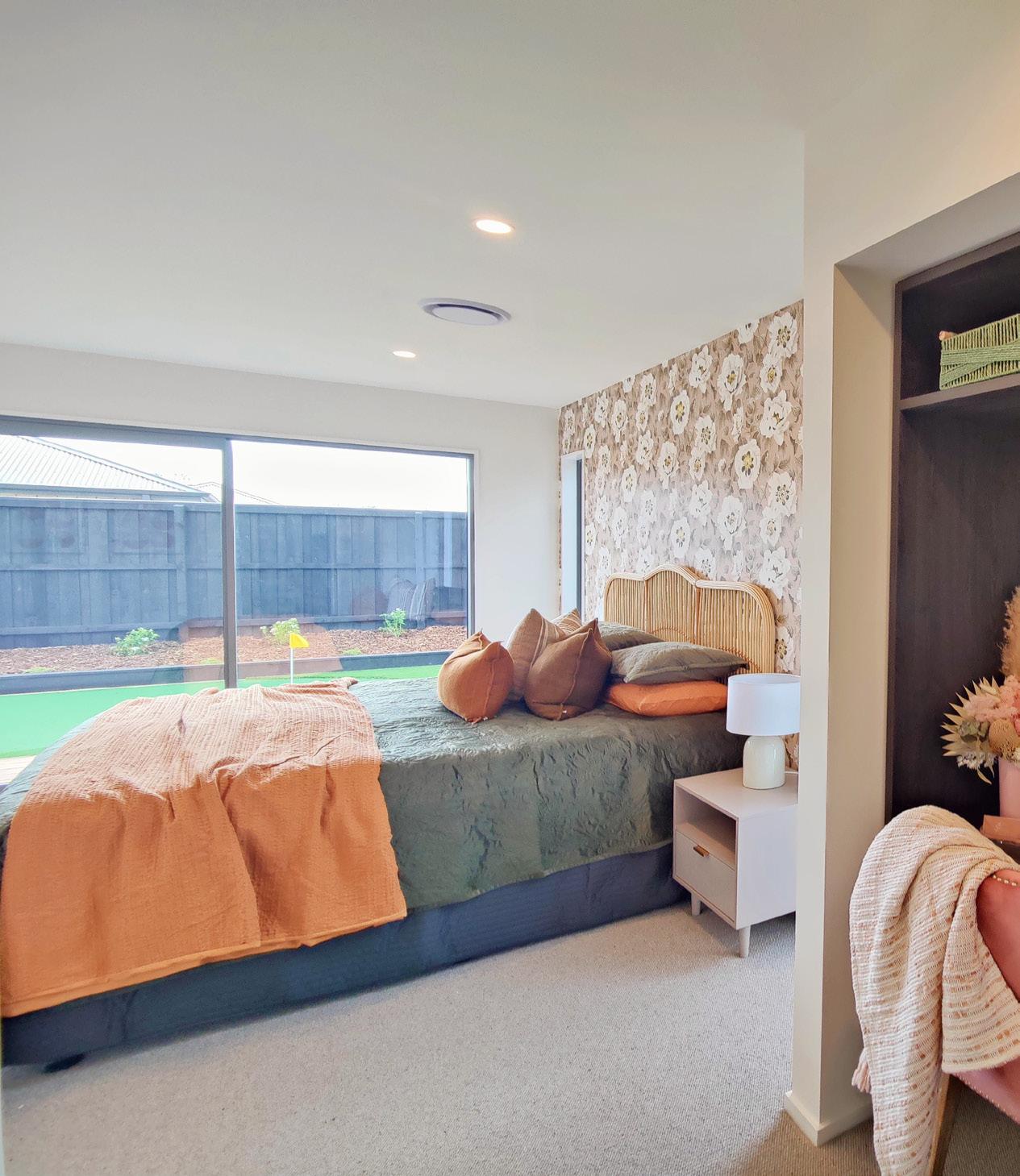
Designed, Delivered, Awarded
We’re New Zealand’s most awarded Master Builders Brand in the Registered Master Builders House of the Year Awards. We complete all of our homes to the same award-winning standard and are committed to building dreams which exceed expectations, creating everlasting value for our clients.
Ready to take the next step towards your dream home? Get in touch and let us help create a home that’s



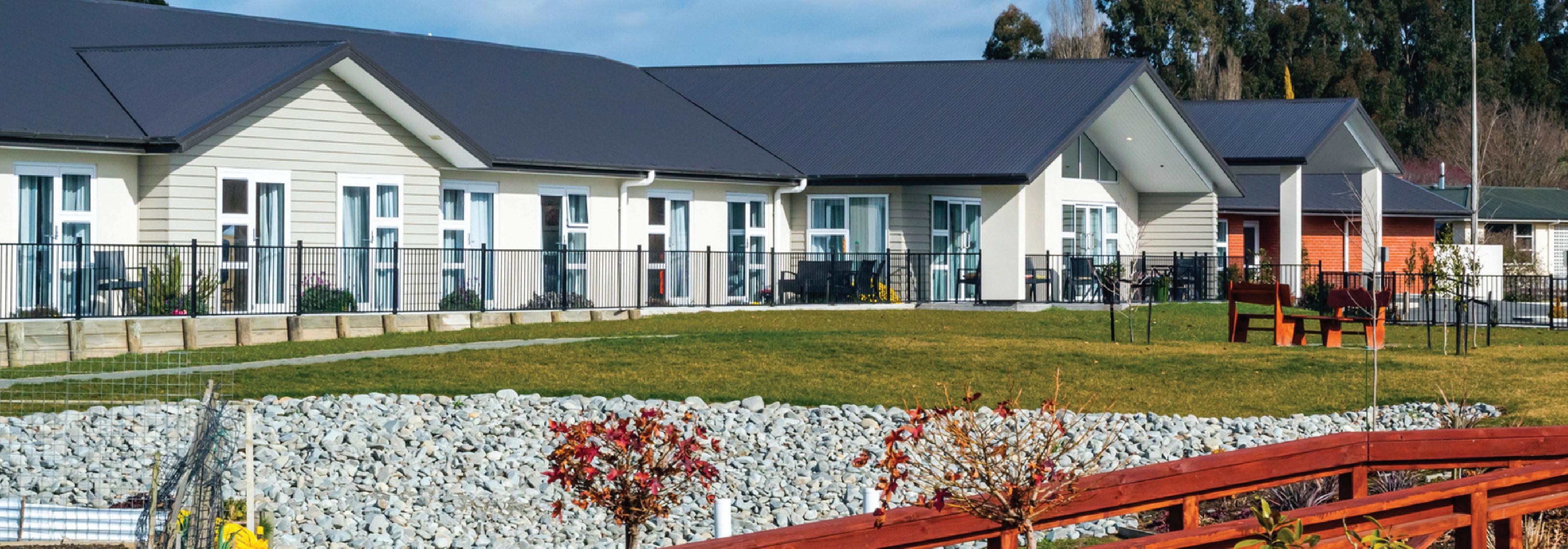

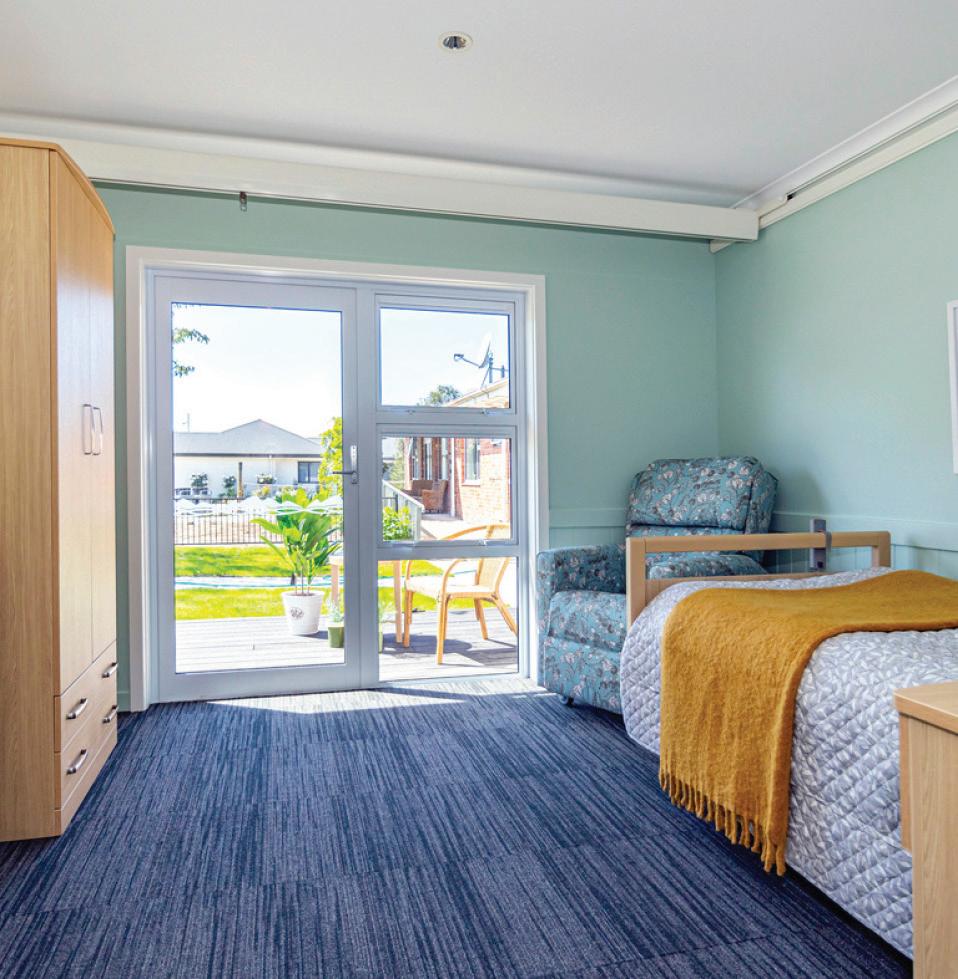
We believe every resident deserves care that respects their dignity, privacy, and individuality. Our dedicated staff approach their duties with compassion, professionalism, and accountability, ensuring thoughtful, attentive support.
Aligned with our vision of "Aging Well," we are dedicated to helping residents live fully, participate in their communities, and stay connected with family, while providing the highest standard of care..
By Ben O’Connell
Older adults can be unfairly stereotyped for lacking digital knowledge. Today, many seniors grasp online spaces and their impacts; some wish to go even deeper.
Everyone should be allowed access to deeper Internet literacy topics, regardless of age. Anyone can and should be allowed to be a fact-checking, dark web expert. The issue then becomes doing so safely.
The Dark Times Academy is one initiative that seeks to bring community education to critical digital topics. Recently launched in Auckland, they offer a range of online courses that aim to help people become better at navigating the modern world.
“We’re aiming to make learning joyful again – something that, in our view, is much needed in these dark times that we are all living through,” says Mandy Henk, who is formerly the CEO of community education group Tohatoha Aotearoa Commons. The initiative

was founded by Mandy and Byron Clark, one of the nation’s leading experts on far-right extremism.
“From understanding the role of AI in the real world and fighting disinformation to an updated take on critical literacy, our courses are scheduled to be accessible to working adults across New Zealand and a range of global time zones, including the US and Australia,” Mandy says.
Grasping new internet topics - Many new hot-button digital topics such as mis- and disinformation, the AI bubble, dead Internet theory, and more are increasingly discussed. It can be a lot to grasp! If you’re looking for rabbit holes to go down and research, consider looking into these digital concepts.
Misinformation refers to false information spread without harmful intent, while disinformation is intentionally misleading content. A mnemonic to remember the difference is that misinformation is often spread by mistake, whereas disinformation is deliberate. Both are rampant online and major talking points. Asking for information sources and developing critical media literacy are key modern skills.
There’s this concept called ‘dead Internet theory’, which suggests that a majority of online activity is generated by bots or AI, making the internet less "human" and more automated, with the content largely artificial. It’s good to visit sites like Netsafe and participate in



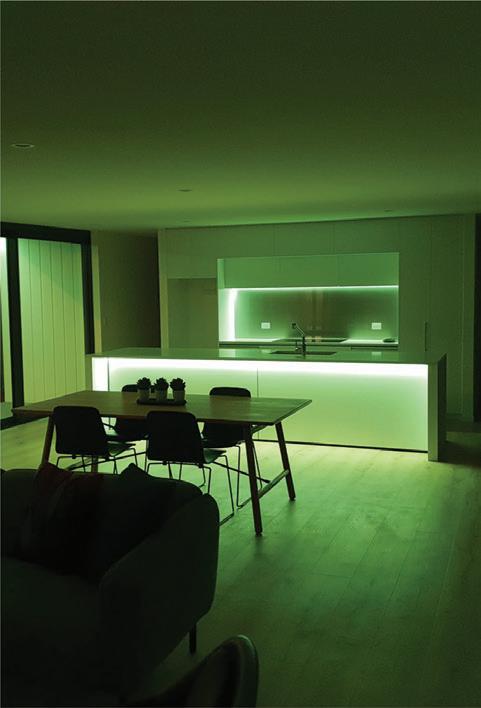
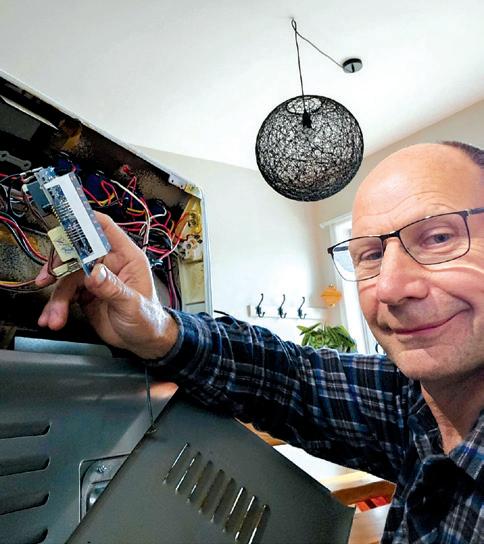
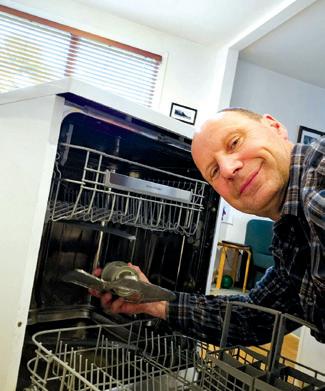
education like Dark Times Academy to develop an understanding of what AI-generated content looks like.
Be careful about what you post, too! Copyright laws govern what users can and cannot post, and privacy and content guidelines dictate what is acceptable. Violating these can lead to content removal or legal consequences. The biggest platforms, like Facebook, Instagram, Twitter (X), TikTok, and LinkedIn, each serve different purposes—social networking, content sharing, and professional development—and so have their own usage rules, privacy concerns, and community guidelines. Online scams range from phishing to fraud and identity theft. Scammers use tactics like fake websites, emails, and social engineering to deceive individuals. Simply visiting a website that looks suspicious can deliver your data to hackers behind the scenes. Be careful when exploring the darker sides of the web without doing your research and protecting yourself with anti-virus software first. Stay safe online!
Staying connected - Byron Clark says it’s important for Internet users to remain connected to a real-life network. It’s advice often told to school students that applies to folks of all ages. He notes how the tools and techniques that seniors would have learned to evaluate information at an earlier time are, in many cases, no longer accurate. “You have to approach finding information in a different way compared to even ten years ago.

“When it comes to the issues of mis- and disinformation, people are most likely to trust someone they have an existing relationship with. People who are isolated can develop parasocial relationships with people online, so it’s important to keep up those in-person connections to help prevent someone from being misled, deceived, or scammed.
“Seniors can be susceptible to loneliness, and the Internet can also be a positive solution to that, so long as digital tools are used in the right way, and that’s something family and friends can help with.”
The Dark Times Academy combines live teaching and pre-recorded lectures. Byron says his students enjoy intergenerational discussion and curated resources from trustworthy sources.
“We also can offer extra ‘tech support’ sessions for the tools we use in our courses, so being less savvy isn’t a barrier to learning online.”
Asking for digital help from friends and family is something to be proud of. Showing interest in cutting-edge technologies and protecting yourself from the developing digital world is already doing more than others can say. There’s an entire network of interesting online spaces, concepts and trends at your fingertips, waiting to be explored.



Flooring Design in Queenstown is your premier destination for all flooring needs, dedicated to transforming your home with style and precision
Located at The Landing in Frankton, our store boasts an extensive selection of flooring solutions designed to cater to every taste and requirement.
Our offerings are curated to ensure high quality and lasting durability, which promise to enhance your space for years to come.
Whether you’re considering the warm elegance of timber, the comfort of luxurious carpet, the durability of vinyl, or the sleek appeal of laminate, we have something to match your lifestyle and aesthetics. Our offerings are curated to ensure high quality and lasting durability, which promise to enhance your space for years to come.

What sets us apart is our commitment to personalised service. Our knowledgeable staff are experts in flooring solutions and are eager to assist you in finding the perfect match for your home. We provide a free measurement and quote service, ensuring that every detail is tailored to meet your exact specifications.
Our store hours are designed for your convenience. We offer a free measure and quote and are open Monday through Friday, 8:30 a.m. to 4:30 p.m., and Saturday, 10 a.m. to 2 p.m. We invite you to visit us and explore our diverse range of products, or call us at 03 409 0308 to discuss your flooring needs.
Choose Flooring Design Queenstown for your next home project and step into a world of style, quality, and unmatched customer service. We’re here to help you create a home that not only looks great but also feels great underfoot.
Flooring Design provides NZ with the best flooring solutions every day, using our wide range of Carpet, Carpet Tiles, Vinyl Tiles, Vinyl, Laminate and Timber Flooring. Shop our massive product flooring range today.
Southern Lakes Flooring Design
Carpet
Timber
Hybrid
Commercial Flooring Experts
Laminate
Vinyl
Installation
m 03 409 0308
k Queenstown@flooringdesign.co.nz
9 The Landing, 5 Hawthorne Drive, Frankton, Queenstown
Contact us for a free measure & quote


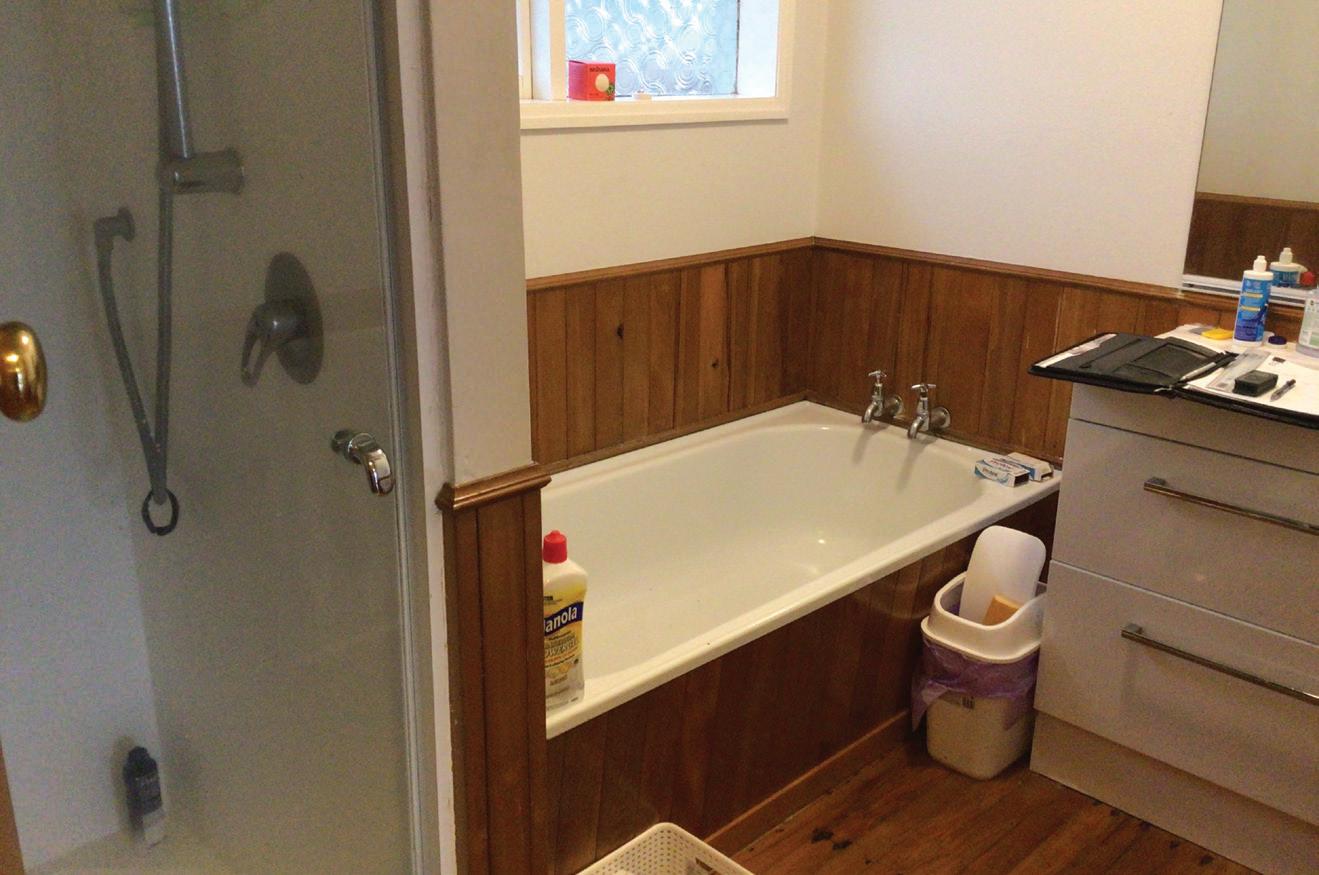



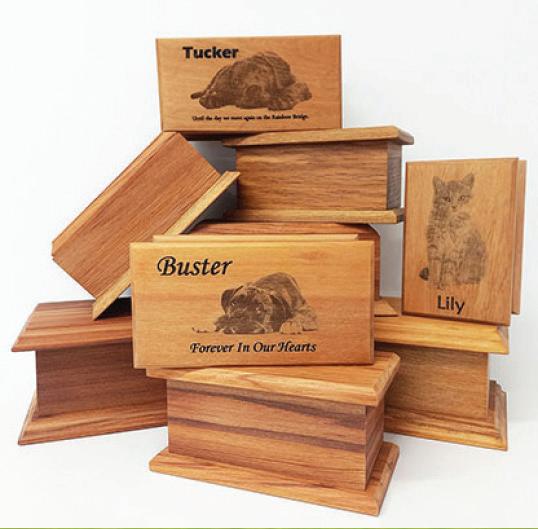





Tasman Monuments and Headstones is a privately owned company that continues to be at the forefront of providing customized monuments, granite signage, glass work and memorials for Nelson families since the mid 1800’s.
We achieve this by combining old world craftsmanship with modern technology.




By Jonathan Taylor

As we anticipate more leisure time, family gatherings, and exploring the beauty of New Zealand, many of us are still uncertain about the financial realities of retirement.
Recent surveys highlight that a striking 84 percent of individuals aged 45 to 59 are unaware of how much a single person living alone will receive from NZ Superannuation.
Furthermore, 81 percent do not know the benefits available for couples aged 65 and older, while 42 percent haven’t calculated how much they need to save for a comfortable retirement.
Former Retirement Commissioner Diana Crossan points out that this lack of knowledge regarding NZ Super suggests a broader issue: people are not adequately planning for life after work.
“Almost all Kiwis are entitled to NZ Super at 65, yet many are unclear about the amount they will receive. Interestingly, this demographic is nearing retirement age, yet a significant number lack a financial plan or understanding of their expected NZ Super income,” she explains.
Diana highlights that around 40 percent of today’s retirees rely solely on NZ Super, which currently provides $333 per week for singles living alone and $511 for couples.
Additionally, about 20 percent supplement their NZ Super with approximately an extra $100 a week from other income sources.
This underscores the importance of understanding current NZ Super rates so New Zealanders can accurately assess how much money they will need to maintain their desired lifestyle in retirement.
“Our population is ageing rapidly, and in just 20 years, one in five of us will be over 65. As we approach retirement, it’s crucial to start thinking about our financial preparations,” she adds.
“Most people look forward to retirement as a time to engage in hobbies, travel, and spend quality time with loved ones. However, to truly enjoy this phase of life, having all the facts and a solid plan in place is essential. It’s never too late to start saving.”
Planning for retirement can feel overwhelming, but taking informed steps now can lead to a more secure and enjoyable future. Understanding your entitlements, evaluating your current savings, and creating a realistic budget will empower you to navigate this significant life transition with confidence.
Don’t leave your retirement to chance; start planning today to ensure you can make the most of your well-deserved time off and enjoy the lifestyle you envision.
So, how hard should we be saving for retirement?
According to David Ireland, former chair of Workplace Savings NZ, New Zealand should look to overseas experience as this country debates the adequacy of our approach to retirement income.
“I believe we can learn a lot from overseas research, such as that done by the Association of Superannuation Funds of Australia – ASFA.
“That research looks at expenditure for a given category of individual or household, and from that, constructs annual income targets for retirees for both modest and comfortable lifestyles. People need to understand what sort of lifestyle their retirement savings will support.
"Informed debate on retirement savings policy in New Zealand needs to be based on up-to-date research, and we are looking forward to seeing what the new Savings Working Group comes up with.
“The issue of retirement savings compulsion also needs to be thrashed out in the context of New Zealanders’ ability to save, increasing life expectancy, and overall approach to retirement saving. It is important that any decision taken has cross-party support and is not simply a flavour of the day reaction.”

By Ben O’Connell
Many New Zealanders are feeling the financial strain and dipping into their available savings, and older adults and senior citizens are no exception.
Acting Chief Executive Officer of the Financial Services Council (FSC), Haydee Stroud, said, “The reality is stark: 94 per cent of New Zealanders are concerned about their finances, and many are being forced to adjust their spending habits out of necessity.”
This comes from the FSC’s latest Money & You research, which shows how many Kiwis are facing the choice between relieving their immediate financial pressures and saving for the future.
“While some New Zealanders can cut back on non-essential purchases like takeaways and treats, others are confronting difficult decisions, such as whether to heat their homes (24 per cent) or afford essential medications (16 per cent).”
“One key finding is that the amount of income that can be accessed within a week has decreased across all age groups compared to previous years.
“For retirees, one in five reports having less than a year’s worth of retirement savings to maintain their current lifestyle,” says Stroud.
“KiwiSaver remains the most popular investment in New Zealand, with 79 per cent of New Zealanders participating and saving for their retirement.
“However, individual investment levels are falling short of what’s needed for a comfortable retirement.
“Our research consistently shows that New Zealanders aren’t prepared for retirement, which is why we continue to call for a review of KiwiSaver settings.
“A review would future-proof the scheme and help New Zealanders in the long-term, no matter the economic climate.”
“Whether your concerns are about the short-term cost-of-living or long-term investment and retirement planning, we encourage you to talk with your whānau, providers, or a registered financial adviser. It will help boost your financial confidence and wellbeing.”
The Money & You report shows a decline across all age groups in the ability to access a month’s worth of income in the case of emergencies.
The Financial Services Council reported that renters were less likely to cope with tough financial conditions than homeowners.
Saving three to six months’ worth of living expenses is the general rule of thumb, but that is largely unattainable for most of New Zealand’s population today.
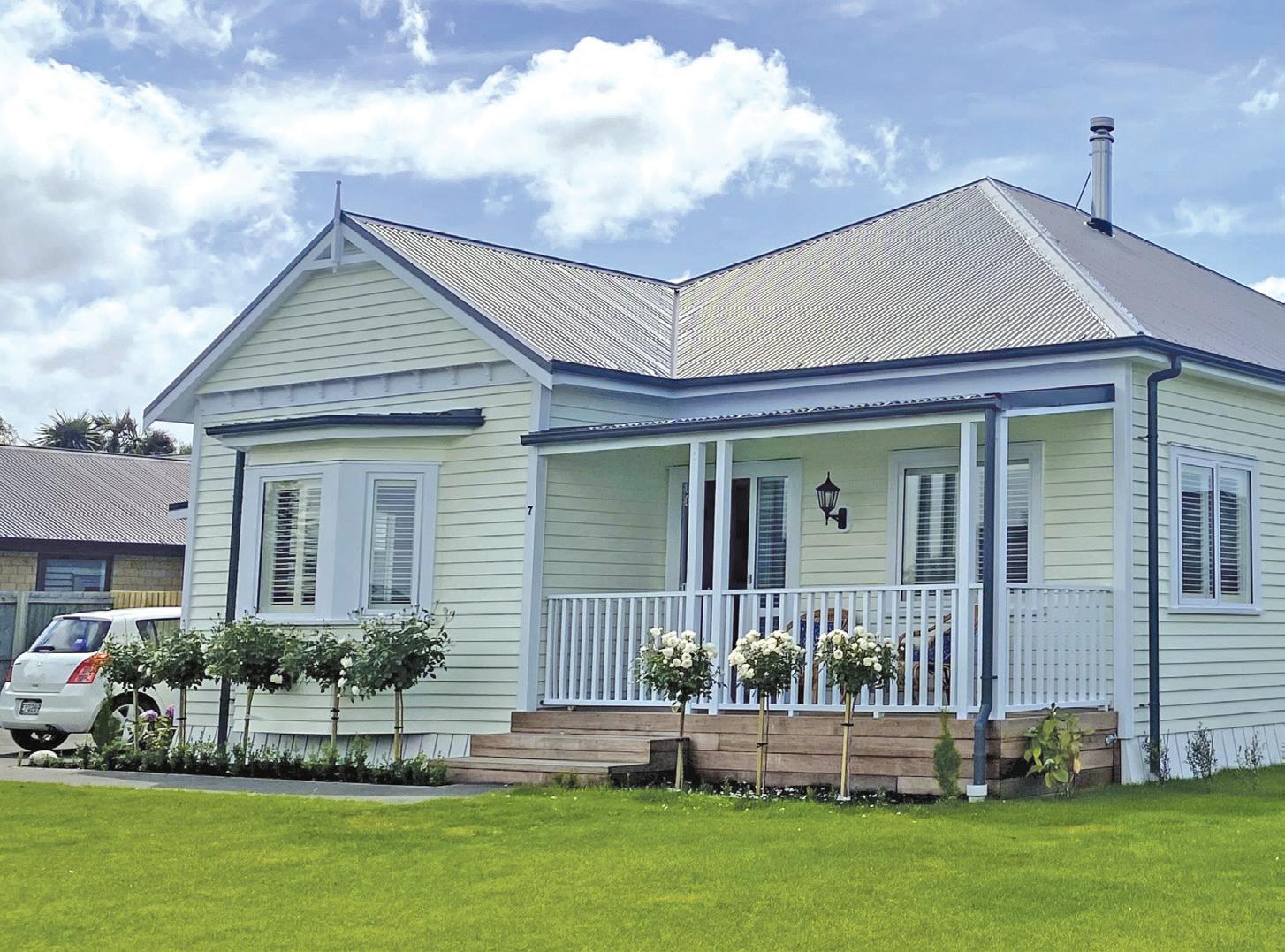
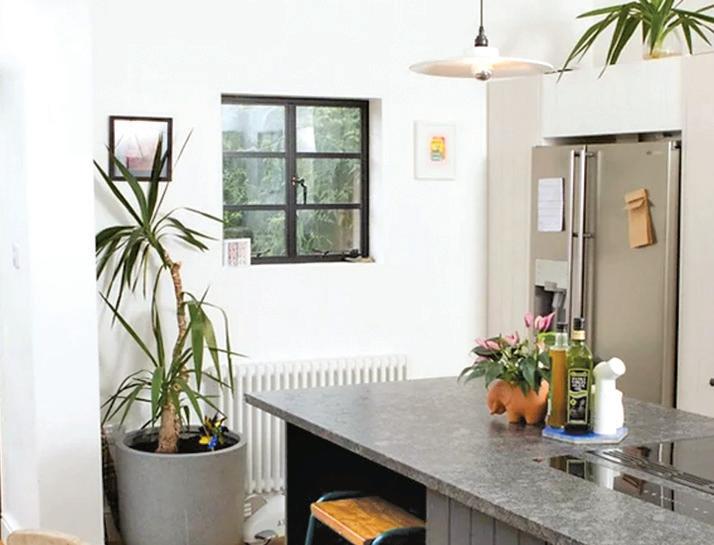

• RENOVATIONS • ALTERATIONS

At James Hunt Residential, we understand that your home is more than just a place; it's an expression of your lifestyle and a reflection of your dreams. As renovation specialists in Selwyn, we take pride in turning your vision into reality.
027 466 0092



By Paige O'Brien
Imagine enjoying the beautiful outdoors this summer without the annoyance of sneezing, a runny nose, or itchy, watery eyes.
For many, allergies can make this season a real challenge, turning even the simplest activities—like relaxing in your garden—into a struggle.
The good news is, it doesn’t have to be this way. Rather than loading up on allergy medications, consider transforming your garden by removing plants that trigger your symptoms. Instead, you can create an outdoor space filled with bee-friendly trees and shrubs.
Be cautious of trees and shrubs with small, pale, or insignificant flowers, as they rely on wind for pollen distribution. Avoid species such as wattles, ashes, elms, oaks, maples, pines, privets, willows, and large poplars or cottonwoods.
On the other hand, larger, fragrant flowers attract bees with their vibrant colours and scents. Their pollen is heavier and stickier, making it less likely to irritate your allergies.
To further reduce pollen levels, mow your lawn early in the morning before the dew dries. If you’re open to it, consider replacing your lawn with paving or decking.
If that’s not an option, choose low-growing ground covers like thyme or mercury bay weed.
It might be tough to part with plants you love, so if you have high-allergy varieties, try to plant them far from your home and downwind. Avoid placing them near bedroom windows, patios, walkways, or entrances.
Lastly, keep any trees or hedges with high allergy potential trimmed to minimize flowering. Enjoying your garden can be possible with a few thoughtful changes!
• Rhododendron
• Camellia
• Viburnum opulus
• Snapdragon
• Citrus
• Bay laurel
• Phlox
• Plum
• Apricot
• Hawthorn
• Pomegranate
• Cabbage trees
• Cherrie
• Eucalyptus
• Gardenia
• Escallonia
• Cotoneaster
• Salvias.
• Aster
• Pussy willow
• Calendula
• Bamboo
• Daisies
• Ash
• Chrysanthemums
• Acacia
• Grasses
• Olive
• Walnut
• Privet
• Primula
• Plane
• Cupressus
• Ivy.

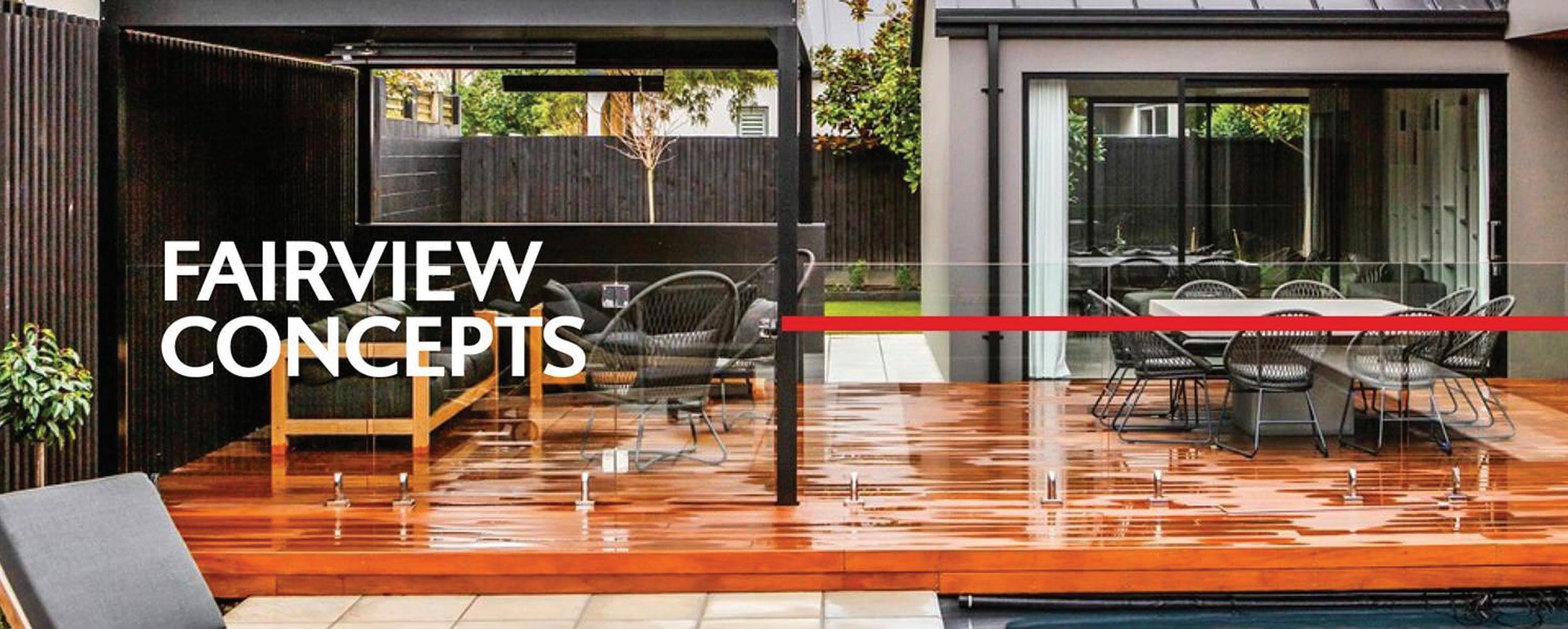



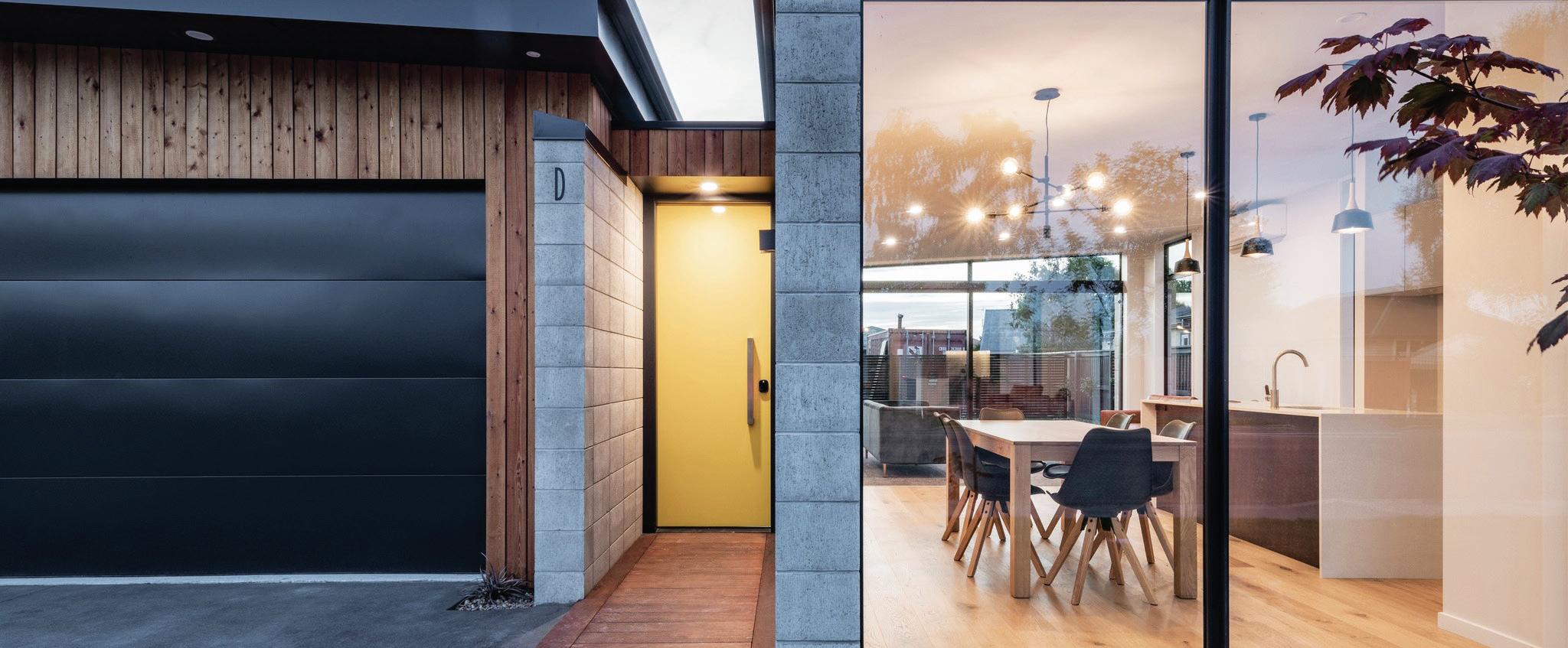


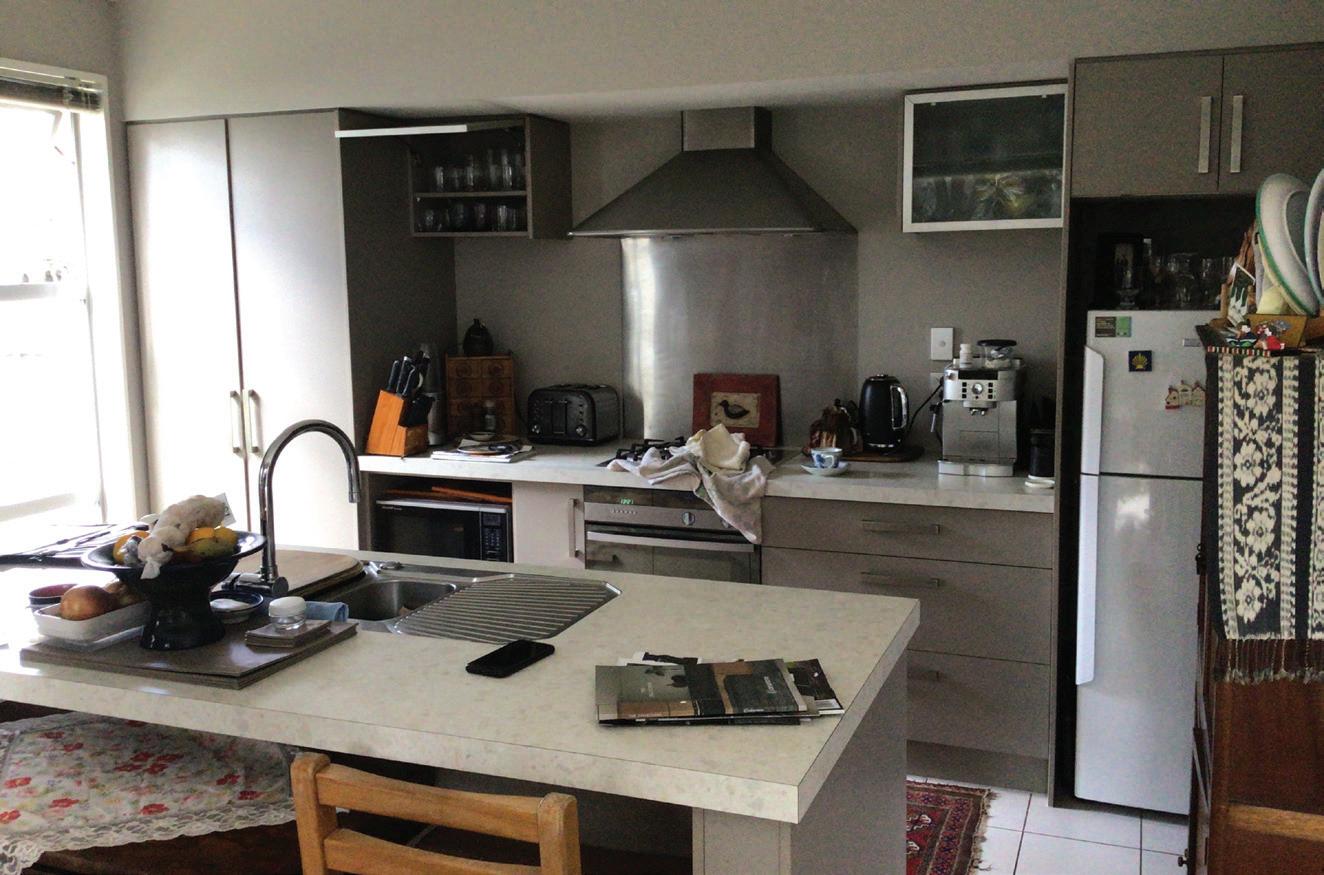

By Ben O’Connell
Feeling fuzzy? Like your head is in the clouds? You might be experiencing brain fog. It’s not a disease or a diagnosis but a sign of underlying health issues, hormonal changes, or lifestyle factors.
Brain fog describes any persistent neurocognitive symptoms, such as a lack of mental clarity, focus, slower thinking, and fatigue.
It’s commonly caused by factors such as lack of sleep, chronic stress, and poor diet, all of which impair brain function and mental clarity. Understanding the causes of brain fog can help in identifying effective solutions for regaining mental clarity.
Hormonal imbalances, particularly in midlife, can also lead to cognitive issues like memory loss and difficulty concentrating. High inflammation is another cause. Brain fog is known by many names depending on the cause: cog fog, clouding of consciousness, even chemo and menopause brain.
Poor sleep contributes to brain fog. Sleep improves learning and memory and clears toxins like beta-amyloid (linked to Alzheimer’s). Stick to a sleep schedule, limit blue light exposure before bed, and spend time outside.
Chronic stress negatively impacts brain function, memory, and neuroplasticity. Practice meditation and mindful breathing, spend time in nature and use humour to reduce stress.
Hormonal changes–think oestrogen, progesterone, testosterone–affect cognition, memory, and focus. Get hormone levels checked to identify any imbalances and take action.
A poor diet (sugary, processed foods) contributes to brain fog. Consider a focus on the Mediterranean diet: veggies, nuts, whole grains, fish rich in omega-3s, and plenty of water.
Exercise your body and mind. Physical exercise supports brain function, releases feel-good hormones, and promotes brain cell growth. Mental challenges and learning new things improve neuroplasticity.
Continuous mental overload or emotional exhaustion can lead to mental fatigue, reducing your ability to focus and think clearly. Take time out for yourself. Don’t challenge your brain 24-7.

Drink, dine or stay at The Golden Mile! The family friendly restaurant serves food daily with something for everyone, plus a large gaming room, TAB and multiple screens for Live Sports.

By Future Proofing your Driveway you’ll be Future Proofing your Business
We offer a wide range of contracting services in the Canterbury region. From new lawns/repairs to landscaping and driveways we are committed to providing the best solution for your project, on time and on budget.
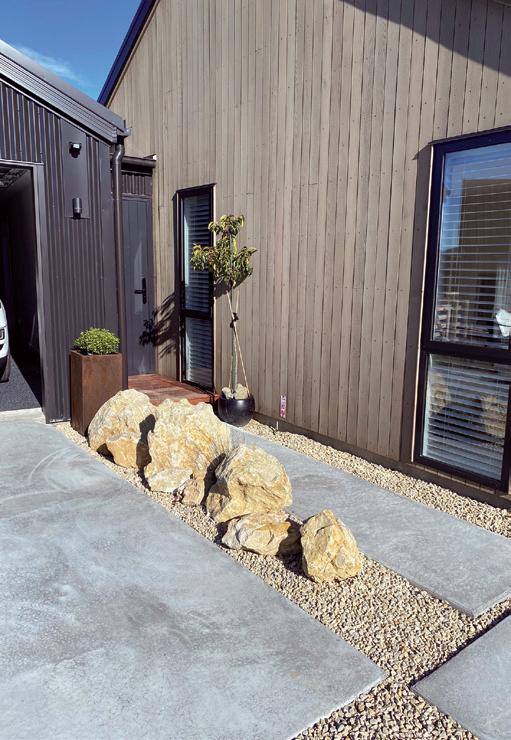
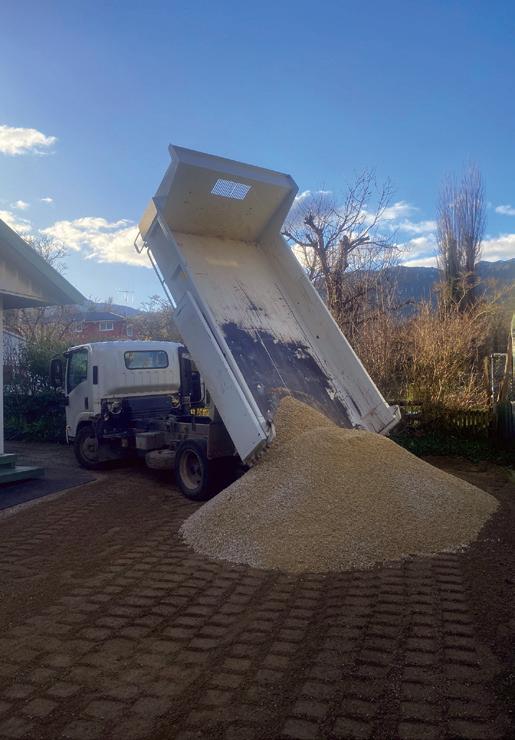
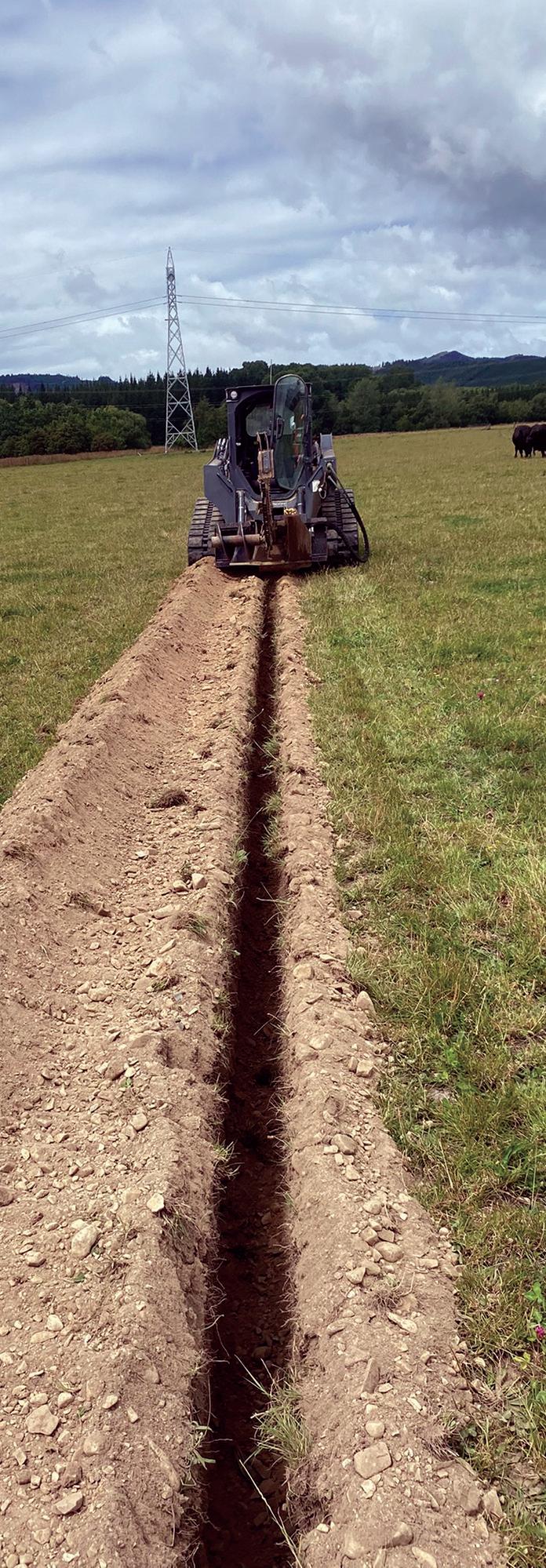
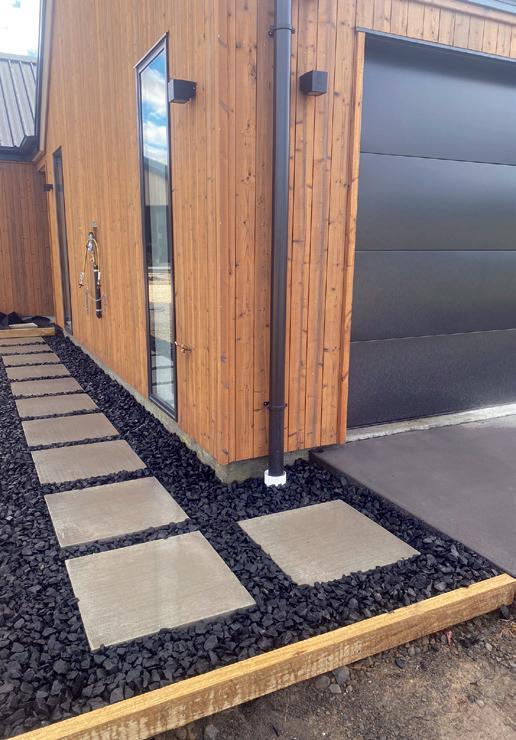

Hanmer Springs
Landscaping and Driveway Experts
New Driveway/Refresh New Lawns/ Lawn Repair
Screened Topsoil
Planting
Riparian Planting
Auger -300/450/600
Trenching
Culverts/Swales
Soak Pits
AG CONTRACTING
Laneways
Calf Pen Clean Up
Cattle Yards/ Woolshed/Covered
Yards
Equestrian Arenas
By Jamie Quinn
The holiday season can be a bittersweet time, especially when grieving the loss of a loved one. While the world around us celebrates joy and togetherness, those who are grieving may feel a sense of isolation and sadness.
It’s important to remember that you don’t need to force yourself into the holiday spirit to meet others’ expectations. Be gentle with yourself and acknowledge that it’s okay to feel however you feel
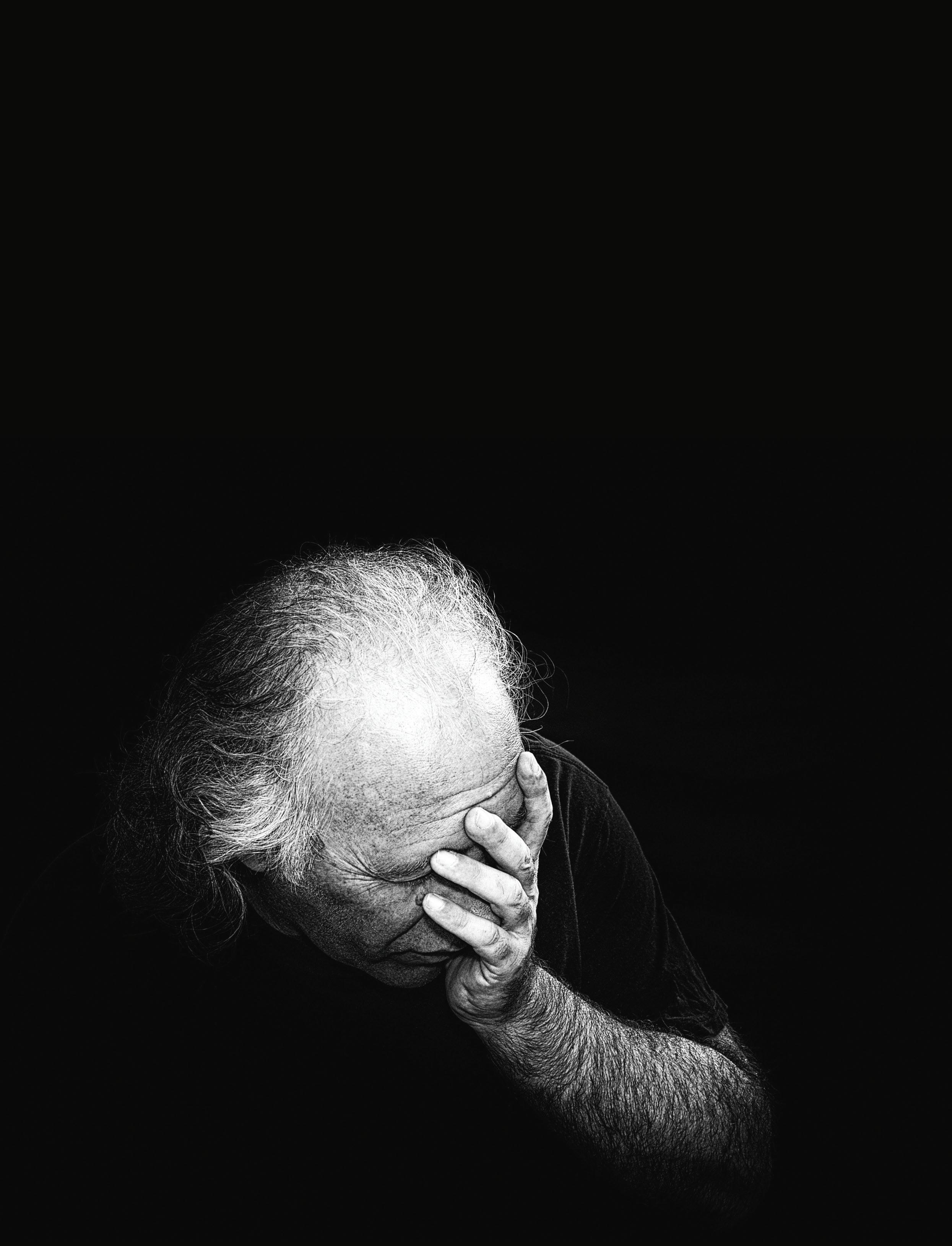
during this time. You are allowed to set boundaries, take things slow, and honour your emotions. Here are some tips to help you navigate grief during the holidays, hopefully offering support and comfort as you move through this difficult season.
Give yourself permission to feel. Grief can bring a mix of feelings, and it’s normal to go from deep sadness to a sense of holiday cheer within seconds. All of your emotions are valid, and it’s important to create space for each one.
Starting a grief journal can be a helpful way to process more difficult emotions and put them into words. Naming your emotions brings clarity and makes the unknown feel more manageable.
Grief doesn’t just affect the heart—it impacts the body, too. During the holiday season, you may notice physical symptoms like headaches, muscle tension, or chest pains, which are common in grief. Stress hormones can overwhelm the body, causing fatigue and other discomforts. Be mindful of these physical effects, and don’t hesitate to rest or seek support if needed. Remember, grief manifests in different ways, and taking care of your physical health is crucial to your overall wellbeing during this emotional time.

Avoid over-committing by giving yourself permission to decline invitations or events that might be too emotionally overwhelming. Let those close to you know how you’re feeling and set boundaries around what you are comfortable with this season.
Plan ahead and strategise how you’ll handle difficult moments, whether it’s leaving an event early or scheduling quiet time for yourself.
Honour the memory of a loved one by incorporating a ritual or tradition that allows you to remember the person you’ve lost, like lighting a candle, sharing memories, or making their favourite dish.
Participate in meaningful activities. Whether it’s volunteering, making a donation in their name, or spending time with those who bring comfort, creating new traditions can help you work through your feelings.
Don’t hesitate to ask for support from family and friends. Your loved ones want to help you through this challenging time, and isolation may exacerbate feelings of loneliness.
Sometimes, it helps to talk to others who are experiencing similar feelings, and a support group can provide understanding and connection. If your grief feels too overwhelming, consider seeking help from a counsellor or therapist who specialises in grief.
Give yourself permission to feel. Grief can bring a mix of feelings, and it’s normal to go from deep sadness to a sense of holiday cheer within seconds. All of your emotions are valid, and it’s important to create space for each one.
Grief can take a toll on your overall wellbeing. Prioritise your mental health by making time for activities that nurture your body and mind, such as:
Exercise: Regular physical activity can help manage emotions and reduce stress.
Rest: Ensure you're getting enough sleep to support your mental and emotional health.
Mindfulness practices: Meditation, deep breathing, and yoga can help you manage stress and anxiety.
Be mindful of habits that might temporarily numb the pain (such as overindulging in alcohol or food), and try to engage in activities that genuinely nourish you.
Grief can be exhausting, and it’s easy to neglect your body’s needs. Make sure you are getting enough rest, eating nourishing meals, and moving your body, even if it’s just gentle walks. Physical wellbeing plays an important role in supporting your mental and emotional health during this challenging time.
If celebrating feels too overwhelming, it’s perfectly okay to opt out of holiday traditions. You might choose to take a trip, have a movie marathon, or spend the time focused on a favourite hobby instead.
There’s no need to force yourself into celebrations if you’re not feeling up to it. Respect your emotional limits and do what feels right for you. Just be sure to communicate your plans clearly with those around you so that everyone is aware and understands your decision.
Whether you’re a foodie, a wildlife wanderer, or a hidden gem hunter, there’s something for everyone in Waitaki.
Just a three-hour drive from Christchurch or an hour and a half from Dunedin, Waitaki is the perfect destination for a quintessential kiwi holiday.

From the mountains to the sea, Waitaki offers endless adventures you’ll never forget.
Put your foot to the pedal and cycle New Zealand’s longest cycle trail with Alps 2 Ocean. Take a jet boat down the Waitaki River, horse-trek across the Lindis Pass, or glide with a view of the mighty Southern Alps – the options are endless with hikes and fishing spots around every corner.

Indulge in award-winning wine, food and friendly hospitality in Waitaki.
Find exceptional fine dining, breweries, award-winning wineries, globally-recognised cheese, pub grub, and brunch-worthy bakeries from Ōamaru up the Waitaki Valley and along the coast to Dunedin.
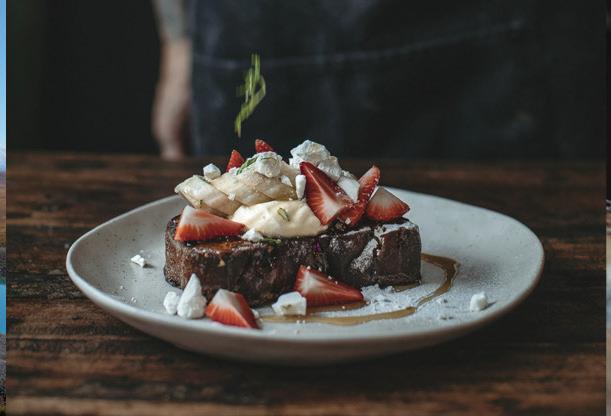
Be captivated by our cutest little residents at the Ōamaru Blue Penguin Colony. See the kororā in their natural environment from a special day viewing area or watch them waddle ashore after a day foraging at sea.
All proceeds go towards ongoing research and conservation.

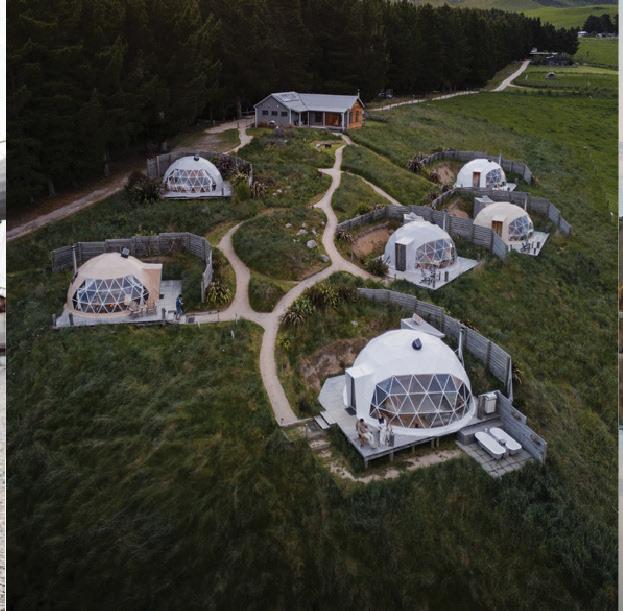



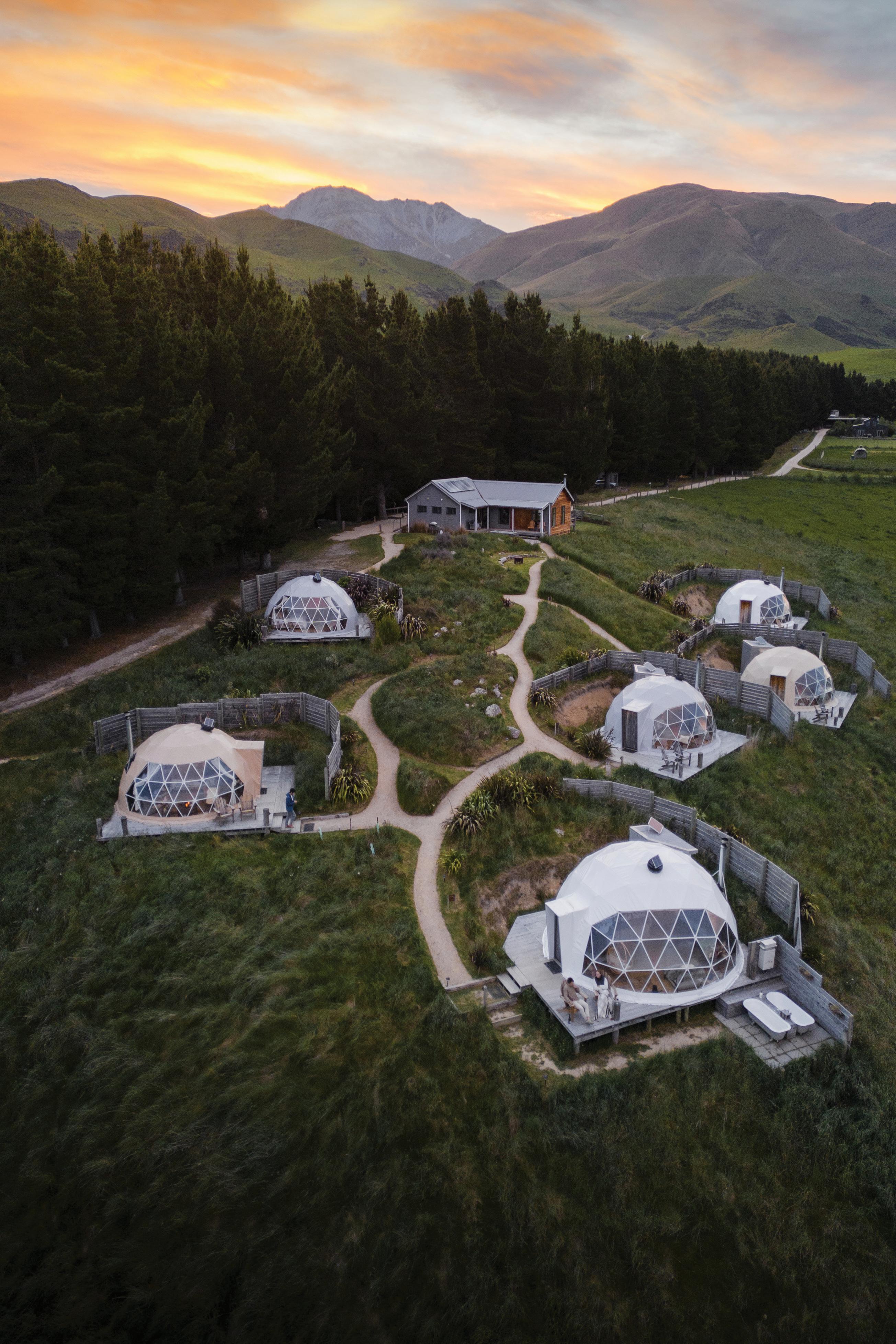
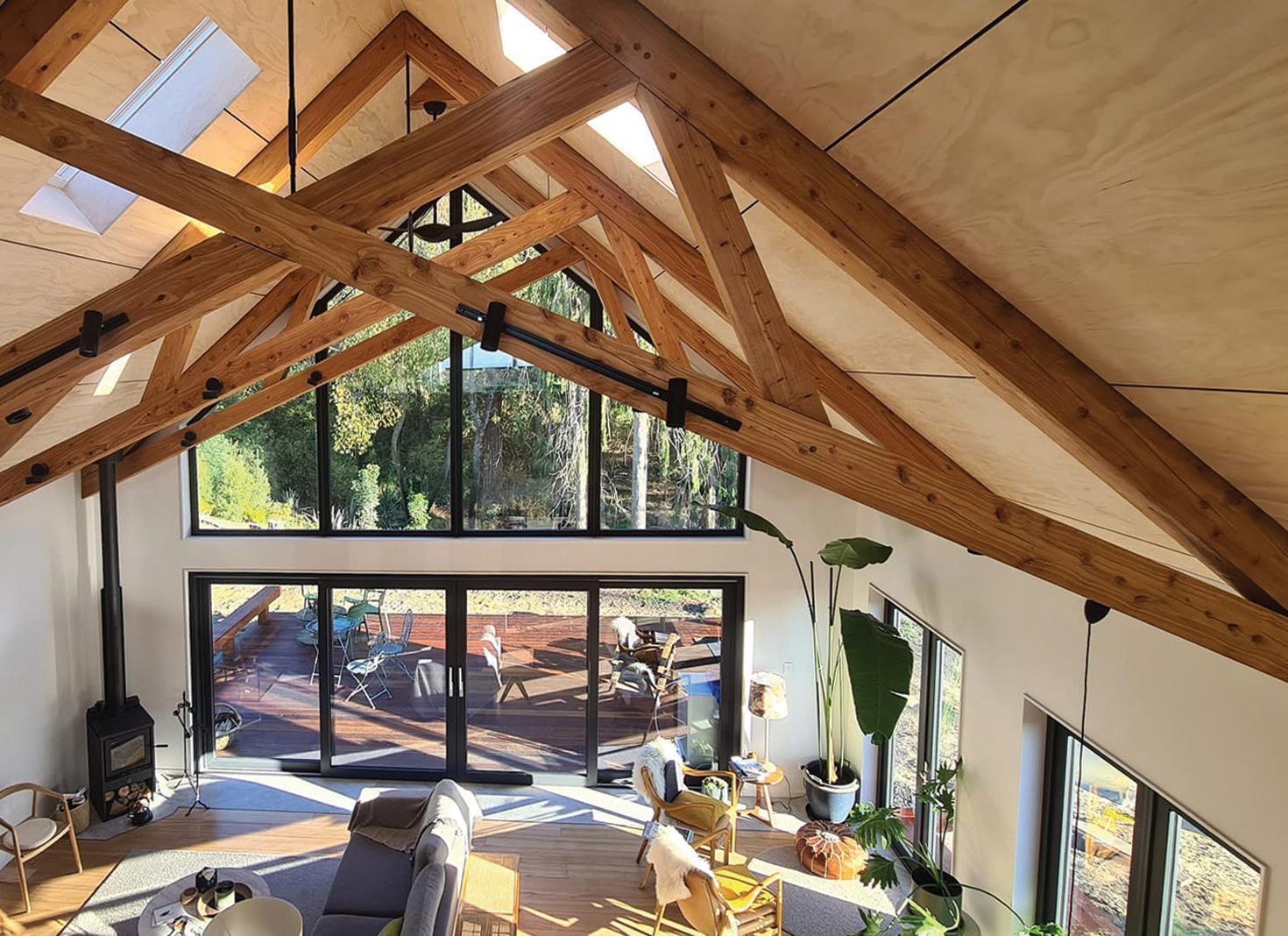


By Jamie Quinn
This Italian orzo salad is packed with orzo, cherry tomatoes, chickpeas, cucumber, and fresh basil! It’s a flavourful combination that's perfect for a summer picnic or potluck.
Ingredients
• 350g dry orzo
• ½ C cherry tomatoes, halved
• 2/3 C cup chickpeas, drained and rinsed
• 1 medium cucumber, chopped
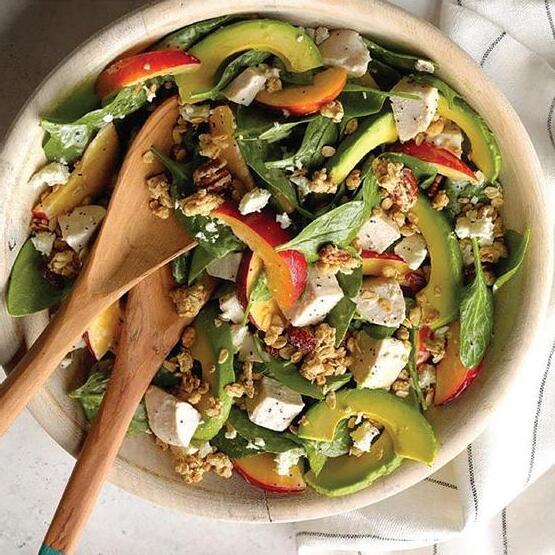

• 1 tbsp fresh basil, chopped
• ¼ red onion, chopped
• ½ C packed baby spinach
• 1 C Italian dressing
Serves 4
This refreshing salad is perfect for summer!
With just a few simple ingredients, you can whip it up quickly and enjoy a healthy and delicious dish.
Serves 6
Method
1. Cook orzo according to packet. Rinse with cold water, drain well and place in a large bowl.
2. Add tomatoes, chickpeas, cucumber, basil, onion and spinach.
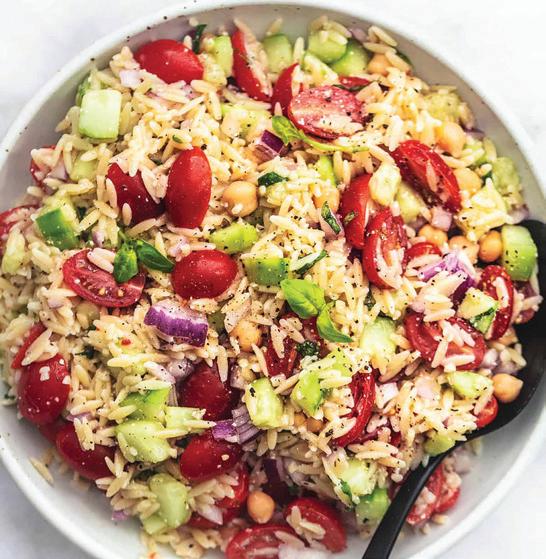
3. Add dressing and toss to coat evenly.
Serving suggestion: Serve immediately.
Enjoy!
Ingredients
• 8 C spinach
• 2 medium nectarines, thinly sliced
• 2 C cooked chicken, seasoned with salt and pepper, then cubed
• 1 C crumbled feta
• 1 medium ripe avocado, peeled and sliced
• ½ C granola
Method
1. Whisk together dressing ingredients.
• ½ C mayonnaise
• ¼ C fresh orange juice
• 1/8 tsp ground cumin
2. In a large bowl, combine spinach, nectarines, chicken and feta.
3. Drizzle with dressing and toss to coat.
4. Top with avocado and granola.
Serving suggestion: Serve immediately.
Enjoy!
Beef skewers are a delicious and easy summer meal.
Made with flavourful marinade and grilled to perfection, these skewers are perfect for a BBQ with friends and family.
• 700g sirloin steak
• 2 capsicums
• 1 large red onion
• ½ C olive oil
• ¼ C Worcestershire sauce
• 2 tbsp soy sauce
• 2 tbsp apple cider vinegar
• 1 tbsp garlic powder
• 1 tsp onion powder
• 1 tbsp honey
• ½ tsp chilli powder (optional)

1. Cut steak, onions, and capsicums into equal size pieces.
2. In a large container, stir together olive oil, Worcestershire sauce, soy sauce, vinegar, garlic and onion powder, honey and chilli powder if using.
3. Add steak to container and marinate for at least one hour.
4. If using wooden skewers, soak for 10 minutes before skewering steak and vegetables.
5. Preheat grill to medium-high.

6. Skewer steak cubes and vegetables, alternating to your preference.
7. Place skewers directly on grill and cook for 3-4 minutes before flipping; cook for another 3-4 minutes.
Serving suggestion: Allow to rest before serving Enjoy!
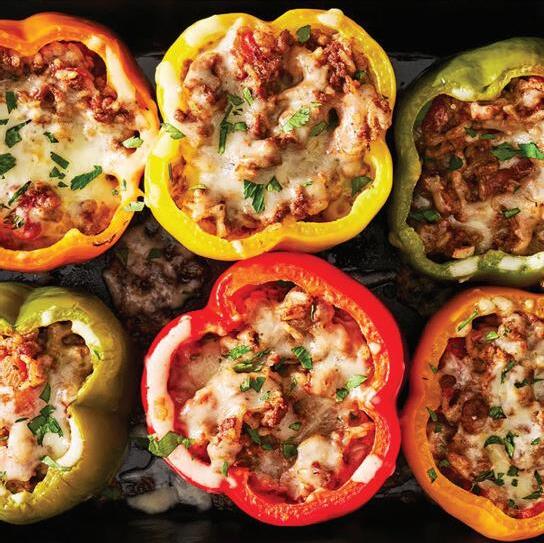
Serves 6
Classic stuffed peppers are a surprisingly easy and satisfying meal.
They're packed with flavour and perfect for a family dinner.
• ½ C white rice, uncooked
• 2 tbsp olive oil
• 1 medium onion, chopped
• 3 cloves garlic, finely chopped
• 2 tbsp tomato paste
• 500g beef mince
1. Preheat oven to 200 degrees.
• 1 can diced tomatoes
• 1 ½ tsp dried oregano
• Salt and pepper to taste
• 6 large capsicums, tops and cores removed
• 1 C cheese of choice
2. In a large pot, cook onion until softened. Stir in garlic and tomato paste and cook until fragrant. Add mince, breaking it up as it cooks.
3. Stir in rice, diced tomatoes, oregano, salt and pepper. Let simmer, stirring occasionally, until rice is cooked and liquid has reduced.
4. Place capsicums in a baking dish and drizzle with oil. Spoon beef mix evenly into each capsicum. Top with cheese, then cover with foil.
5. Bake until capsicums are tender, about 30 minutes. Uncover and continue to bake until cheese is golden.
Serving suggestion: Serve hot! Enjoy!
Looking
Upgrading









DC Cycles is a independently and locally owned bike shop in Timaru that caters to all your cycling needs.
Whether you’re a seasoned cyclist or someone that enjoys getting out on your bike at a leisurely pace, they have you covered. DC Cycles stocks all the biggest bike brands such as Merida, Cube, Wattwheels, and many more. They can provide a full service, new bikes, accessories, along with a full workshop where they can deliver expert advice and bike repairs.
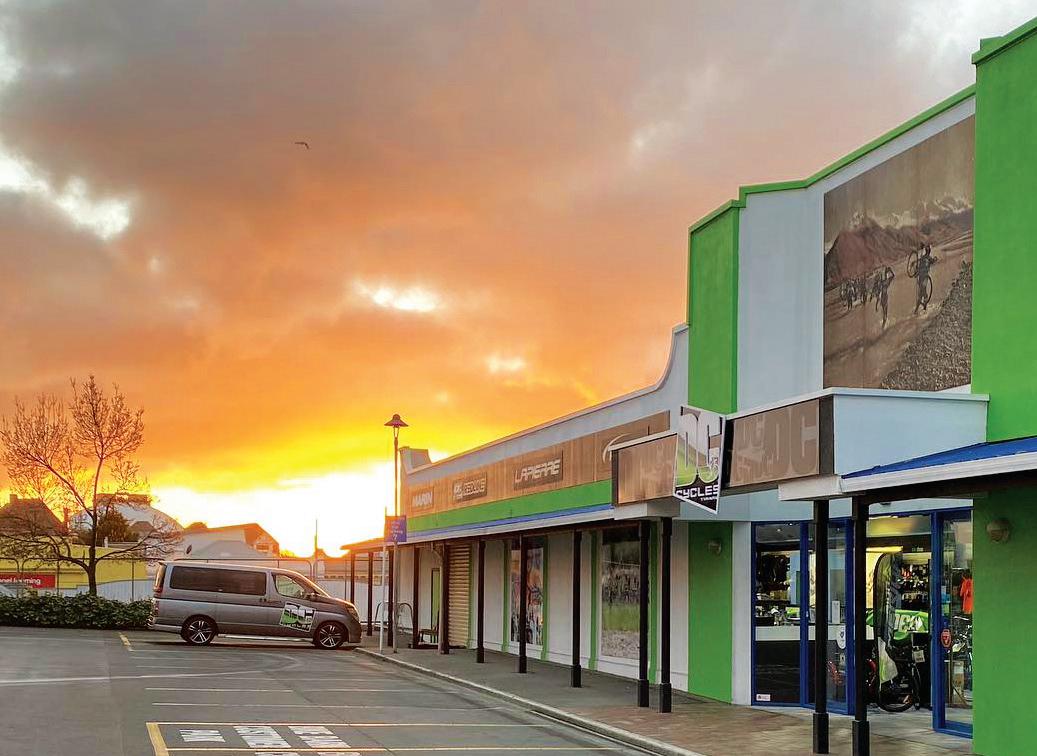
DC Cycles has a fully equipped workshop with a team of experienced and qualified mechanics to carry out maintenance and service on all types of bikes, provide fitting, and full bike builds to custom suit your needs. They are also qualified Bosch and Shimano ebike technicians.
The team also pride themselves on getting the right bike for you. They have a broad range of e-bikes and regular bikes, plus a heap of parts and accessories, and if they don’t have it in stock, they’ll go out of their way to get just what you need.
DC Cycles has a fully equipped workshop with a team of experienced and qualified mechanics to carry out maintenance and service on all types of bikes.
To find your new bike today see the team at DC Cycles located at 57 Sophia Street in Timaru, or call them on 03 684 8900. To view their range of products checkout their website at www.dccycles.co.nz.
are independently & locally owned bike shop
Whether your a seasoned cyclist or someone that enjoys getting out on your bike at a leisurely pace, we have you covered.

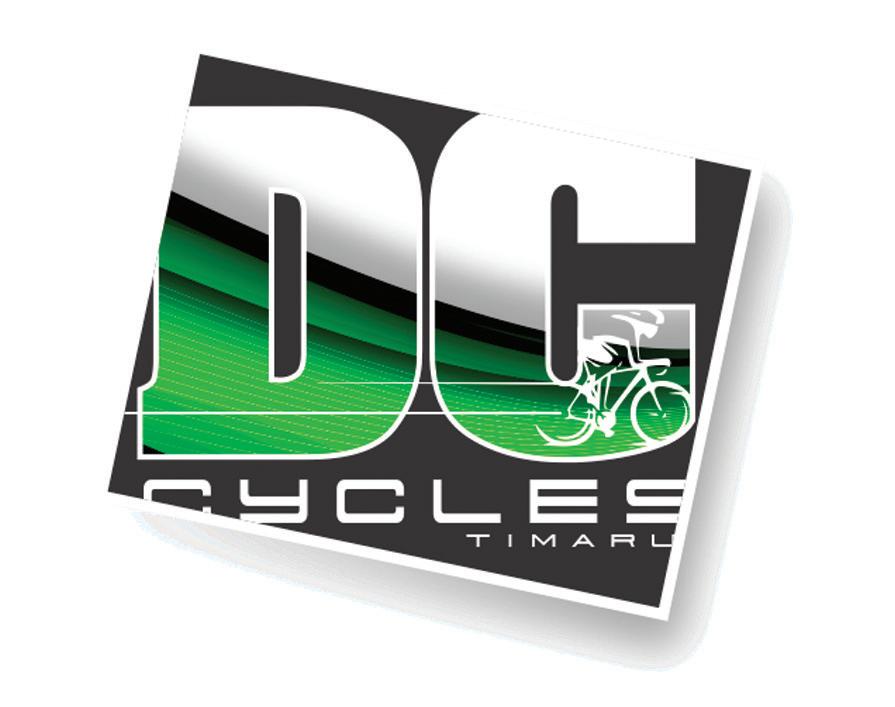


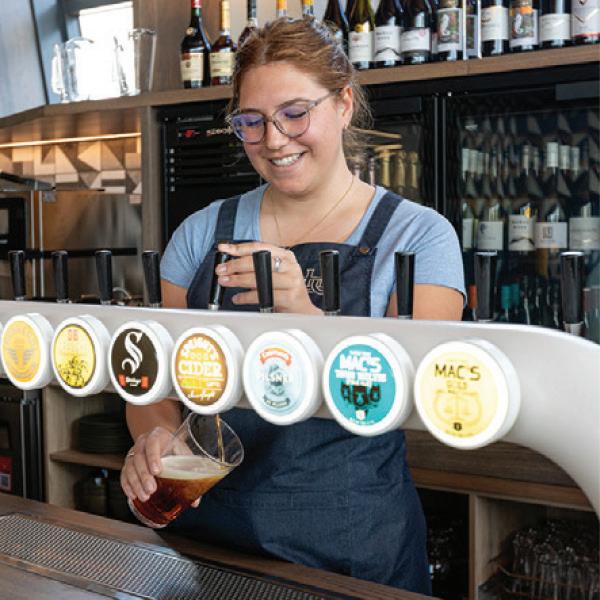

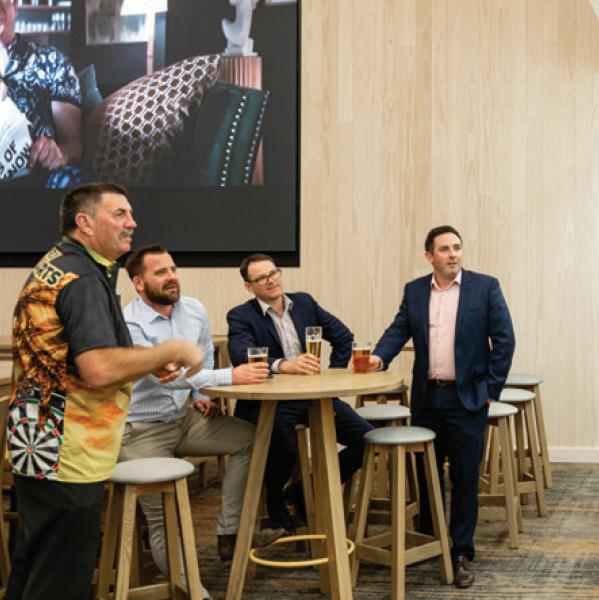





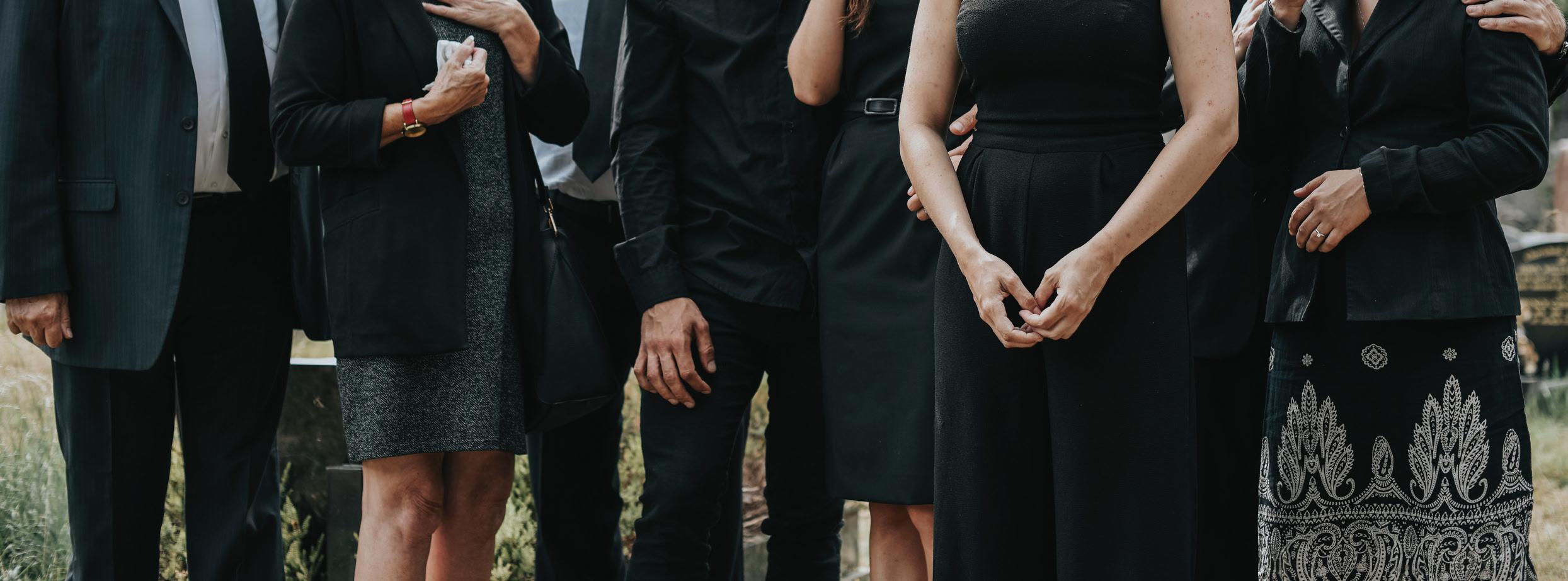
By Gillian Boyes, Funeral Directors Association CEO.
Shortly after I began in this role I spoke to my parents about their wishes for a funeral.
“I don’t want a fuss,” said my mum. “And it’s so expensive,” dad added.
It’s a common refrain and as a newcomer to the industry was one I was initially challenged to respond to. But over the last few months I’ve come to understand why some kind of farewell is essential to those of us left behind.
Some of the early healing can help when you’re preparing for a funeral
Going through old photos and reminiscing and sharing stories can be a powerful way to remember the significance of the life of your loved one. There will be laughter as well as tears and it can be an important bonding time for your family.
An ‘event’ helps a family move through the grief process
The funeral ‘event’ can help you begin to acknowledge the reality that someone in your life has died. Grief is a biological reaction, and it can be externalised though the event –something that will help with your immediate and future mental wellbeing.
Funerals help us recall and remember – and even learn about a loved one
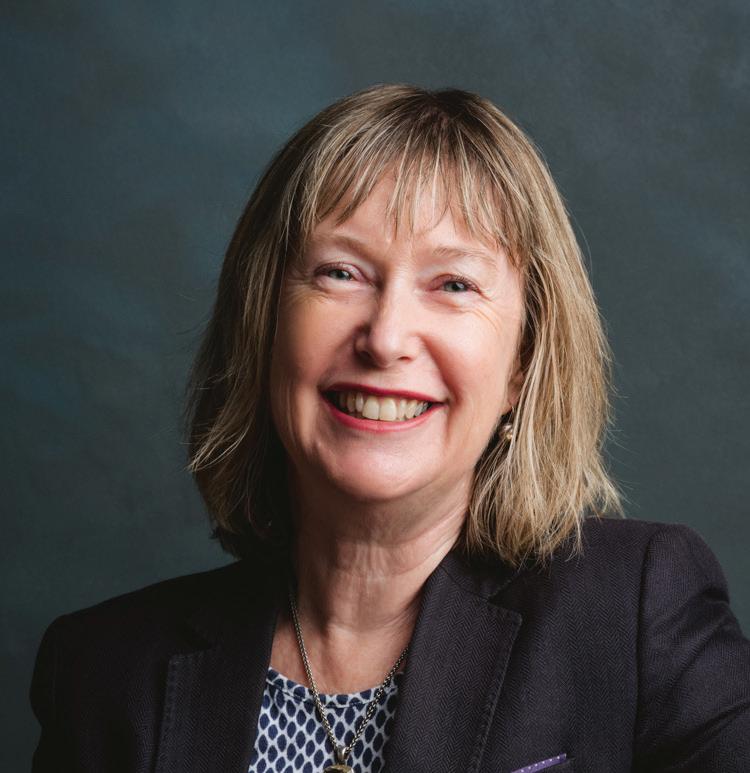
Many funeral homes now offer livestreaming of services reducing the cost and burden on physically attending.
Modern funerals are personalised and can encompass whatever a family needs to help them farewell their loved one in a meaningful way. Venues these days, for instance, range from churches and chapels to sports clubs, theatres, or the local club. And families are encouraged to add their own touches and tributes – both to save money but to also make it meaningful for them.
Finally, people often think they must ‘respect a person’s wishes’. But what about your own? You’re the one left behind so it’s important for you and your own wellbeing that you get that chance to say goodbye, and to have support around you.
If you genuinely fear disrespecting their wishes, have ‘that’ conversation. It doesn’t have to be morbid or difficult – after all you’ll be talking to the person you love most, and they’ll understand you will need help to carry on without them.

How many times have you sat through a funeral eulogy and realised you didn’t know a certain fact about someone? Sharing unique memories and stories helps provide support to all those who attend.
Luckily, my parents were already planning to use a Funeral Directors Association member so I don’t have to have that conversation. But with my new found knowledge I’ve also been able to talk to them about what I need from the funeral itself. And at least a little bit of fuss is what’s right for me.

Simplicity Funerals Christchurch is the right place to plan a funeral because the company is “simply respectful and simply affordable.”
The team likes to help people honour the lives of loved ones and bring family, friends, and communities together to say goodbye on the client’s terms. Having to go through the process of setting up a funeral brings a lot of emotions, but Simplicity Funerals Christchurch makes it easier for clients to feel like they’re not alone.
Services include financial assistance, caskets and urns, hearses and vehicles, repatriation, sending a tribute, keepsakes jewellery, and more funeral options.
Our team provides comfort, respect and compassion. We can provide a funeral in any venue the family chooses. They have a lot of experience in being there for people and helping them find the
right venue is important. The choice is the client’s – a funeral could be held in the Canterbury or Harewood Crematorium Chapels, the client’s home, church, Graveside service at the cemetery, somewhere personal, or family gatherings can be held in the Simplicity Funeral’s Memories Lounge for a small group, including a cup of tea.
The company has been working with Canterbury families for over 145 years but was originally known as G Barrell & Sons in Christchurch. Jamie Harvey has over 10 years of experience in New Zealand funeral service and leads a team of experienced funeral directors.
For more information on how to plan a funeral, services provided, FAQs, pricing, more about the company and contact details check the website at christchurch.simplicity.co.nz
The team offers free information and funeral planning and is always happy to answer any queries. They offer a 24-hour service every day. Enquire online by filling out a form, contact (03) 379 0196, or head to their office located at, Corner of Gasson and Coleridge Streets, Sydenham, Christchurch.

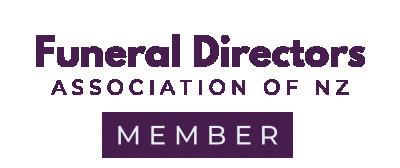

JAMIE HARVEY
Manager &
Director

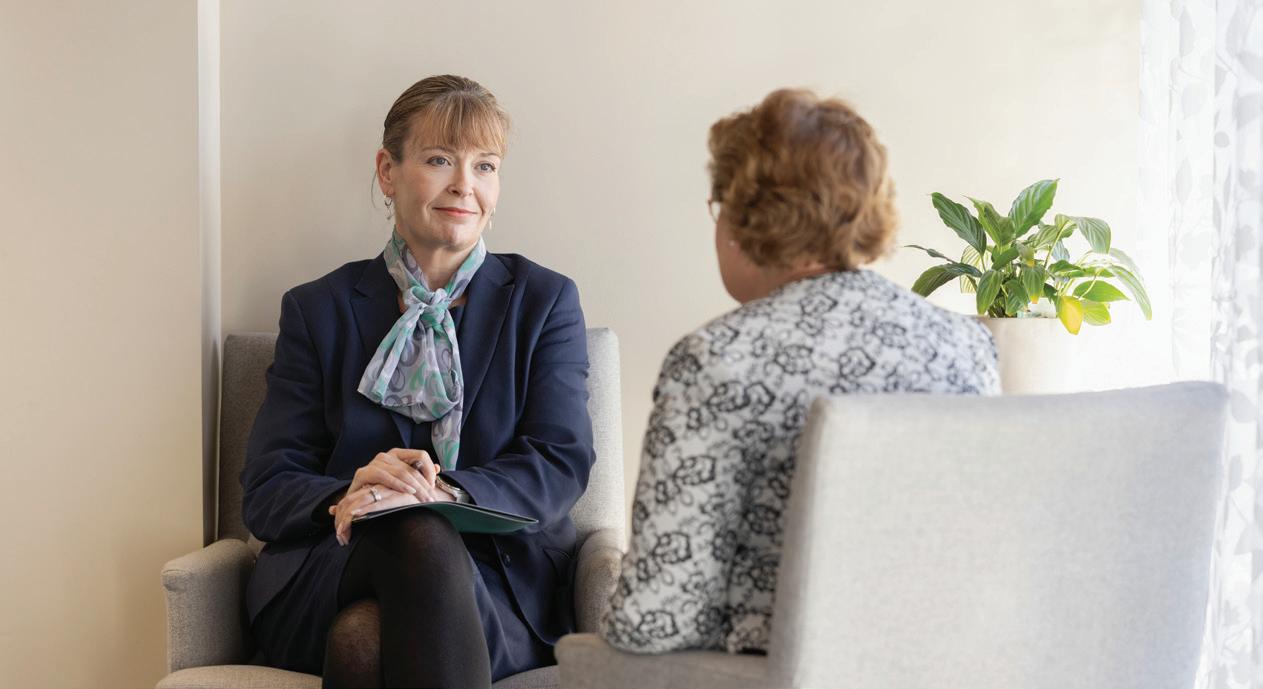
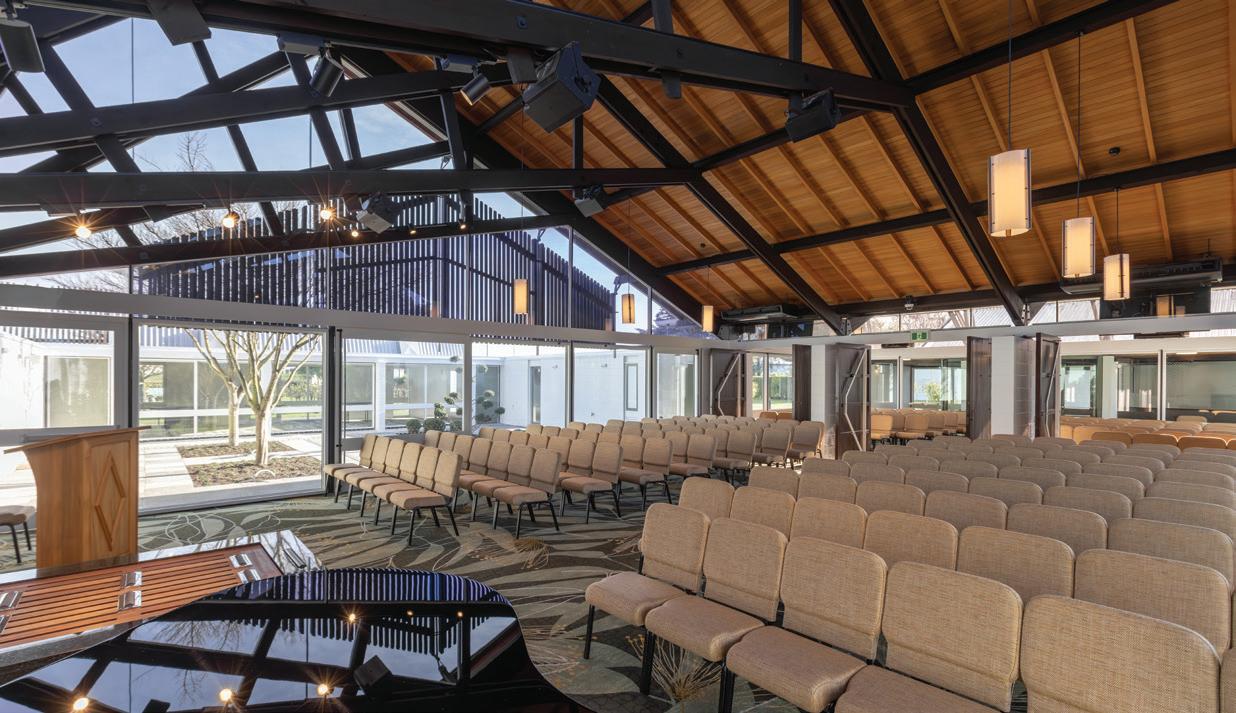

By Jen Baird, chief executive of the Real Estate Institute of New Zealand (REINZ).
It’s been a market of supply outweighing demand for several months, but as we enter spring, activity is expected to pick up — including the usual spring flurry of listings.
Typically, spring is seen as an ideal time to bring a property to market — particularly as many people look to make their buying plans this side of Christmas. Here’s what to think about as you look to list your property. As we head into the warmer months, the market cycle tends to see more listings and an increase in buyer demand.
It is important to find a real estate professional who can deliver a standout marketing campaign, advise you on key steps for getting your property ready to list, and who will tell you what you need to know throughout the selling process.
Using a real estate salesperson can result in a more effective sale than selling privately. They will handle the details of the marketing and sales process, the cut and thrust of the negotiation or auction, and you can rest assured that you’re protected throughout the process by their expertise and requirements under the Real Estate Agents Act.
To find the right person for you, ask around; talk to family, friends and neighbours and see if they have any recommendations on real estate salespeople they have previously used and whom they had a good experience with.
It’s also fundamental to understand where the market is today before you head into the selling process. Doing some of your own research is vital however, you can rely on your salesperson to bring expertise.
Salespeople have the time, access to the latest data and market information, and to advise on exactly what is happening in your market for your type of property. Having honest conversations with your real estate salesperson will enable you to understand the current market and the best approach for selling your home.
A real estate professional will help to manage your price expectations with the latest statistics, their knowledge of the current market, the local area, what properties are attracting the most attention and why, the current levels of attendance at open homes, and more.
They should also explain what they will do behind the scenes to ensure the best possible outcome for you.

They can advise you on the best way to present your property for sale including aspects such as required maintenance, tidying up of gardens, de-cluttering, or home-staging.
With these factors come costs, and your real estate professional should ensure you are aware of the aspects you may need to invest in when selling
your home so there are no surprises, and so you can factor this into your budget.
Look for a salesperson who can demonstrate knowledge of your local area and community, ideally with a network of potential buyers, as this can help ensure your property is best positioned and marketed to the right people.
Make sure you understand what a salesperson’s commission fee is. While fees do vary by agency, our advice is that choosing a salesperson on commission alone could lead to losing a significant amount of money by achieving a lower price for the property.
The Real Estate of Institute of New Zealand (REINZ) is a champion for a world-class real estate profession delivering the best possible real estate services to New Zealanders.
Choosing a REINZ real estate professional member means you are choosing someone who is supported to excel in the profession, and are trusted, skilled professionals, supported by high-quality education, advice, and uphold the best standards of practice.

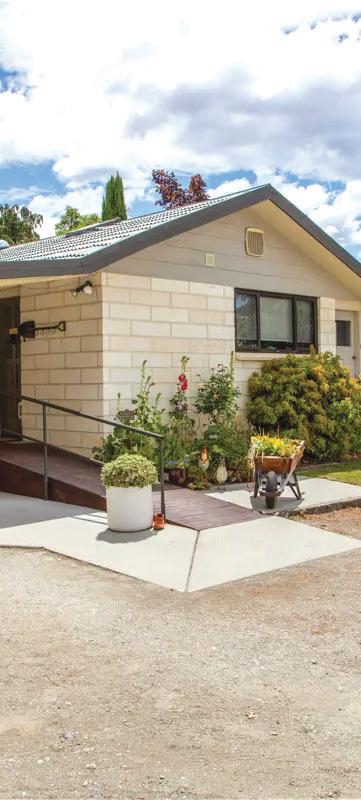
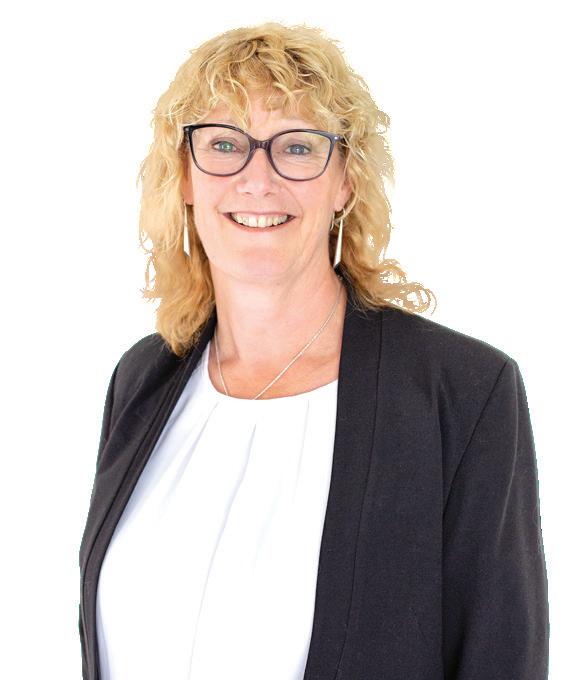


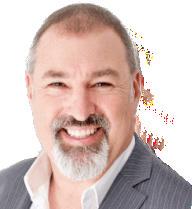
20+ Years Real Estate selling experience
Professional photography and advertising on all the leading property websites
We cut the fees, but not the service. Check out my feedback here: https://www.totalrealty.co.nz/our-people/russell-hume
I, my sisters and my mum (whose house Russell was selling) were all extremely impressed with ALL of our dealings with Russell. He was ALWAYS professional, diligent, motivated and goal orientated. Whilst also being positive, upbeat and optimistic. We also found him to be trustworthy, reliable, punctual and honest, who also had open lines of communication, and was kind, authentic, and patient with my mum which we all so sincerely appreciated and helped to make the extremely emotional sale of my mother's home extremely efficient and totally seamless.
-Jill, 8 Sheraton Pl, Redwood

Judy is incredible. She knew what we were looking for and didn’t muck around finding our new home. Judy went above and beyond to help us sort everything. As we are not from the south island, Judy sorted all our builders reports for us and looked after our house until we arrived. I wouldn’t go to anyone else, Judy is the person you want if you want results.
Judy Ludemann- You have been simply the best.
Judy was fantastic. She was always available to answer any of our questions and was such a calming voice to us during the stressful time of relocating! She was never pushy, but always guiding us with her years of knowledge and backing it up with the current market data.
Judy is inherently reliable, supportive and hard-working, and she’s known for her commitment to the bigger picture in the lives of the people she works with. Personal integrity and a resolute willingness to go the extra mile have helped generate an impressive track record: many happy clients eagerly turn to her as their only choice when they come to buy or sell again. An assured understanding of her obligations and responsibilities as a real estate professional puts people at ease as Judy leaves no stone unturned in her sales process. She is a consummate professional and a prime representative of the Harcourts brand. She truly embodies the fantastic service Harcourts clients expect and she operates with complete confidence and expertise in our systems and processes.
Cromwell


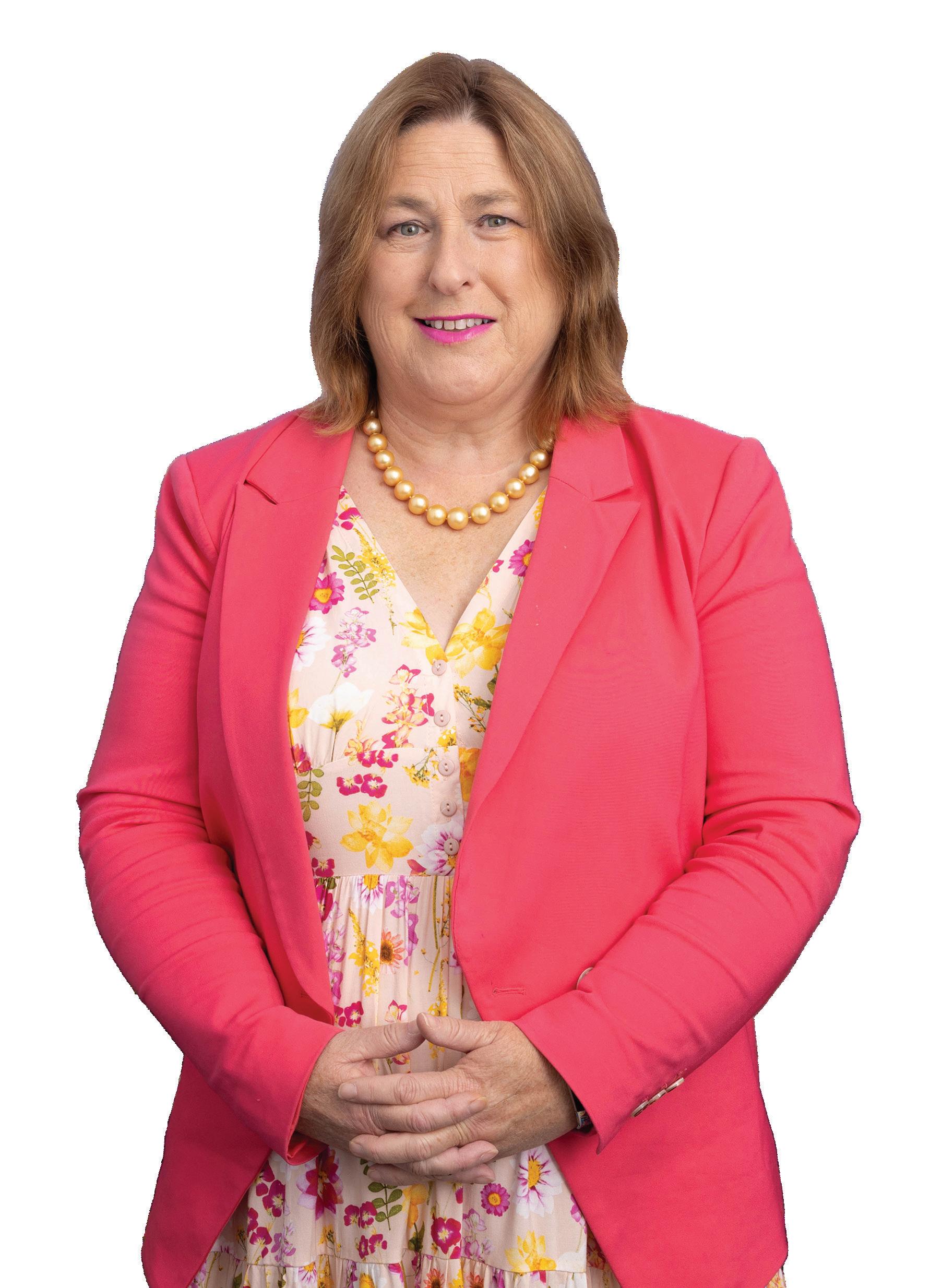

Debbie Pettigrew has a Bachelor of Business Studies from Massey, majoring in Valuation & Property Management, BBS (Val & PM) and is a real estate professional with over 15 years of experience in Christchurch & Canterbury. Based at the Harcourts Grenadier Beckenham office, Debbie has earned a reputation as a highly successful and award-winning agent.
Debbie’s career is marked by her deep expertise and comprehensive understanding of the local real estate market. Her accolades as an awardwinning agent underscore her consistent delivery of outstanding results for her clients. Whether navigating complex negotiations or advising on property investments, Debbie’s guidance is grounded in her extensive knowledge and commitment to excellence. Known for her calm demeanor and proactive attitude, Debbie fosters trust and confidence in her clients. She places a strong emphasis on clear communication, ensuring that her clients are well-informed throughout the buying and selling process. Her clients appreciate her diligent work ethic and ability to handle challenges with professionalism and grace.
Supported by a dedicated team, Debbie ensures that each client receives personalized attention and expert guidance. She collaborates closely with her team to leverage collective strengths and resources, striving to achieve the best possible outcomes for every transaction.
She is driven by a genuine passion for real estate and a desire to exceed client expectations and work tirelessly to tailor strategies that align with her clients’ unique goals and aspirations. Debbie’s proactive approach and mindset ensure that she consistently delivers results that go beyond expecations.
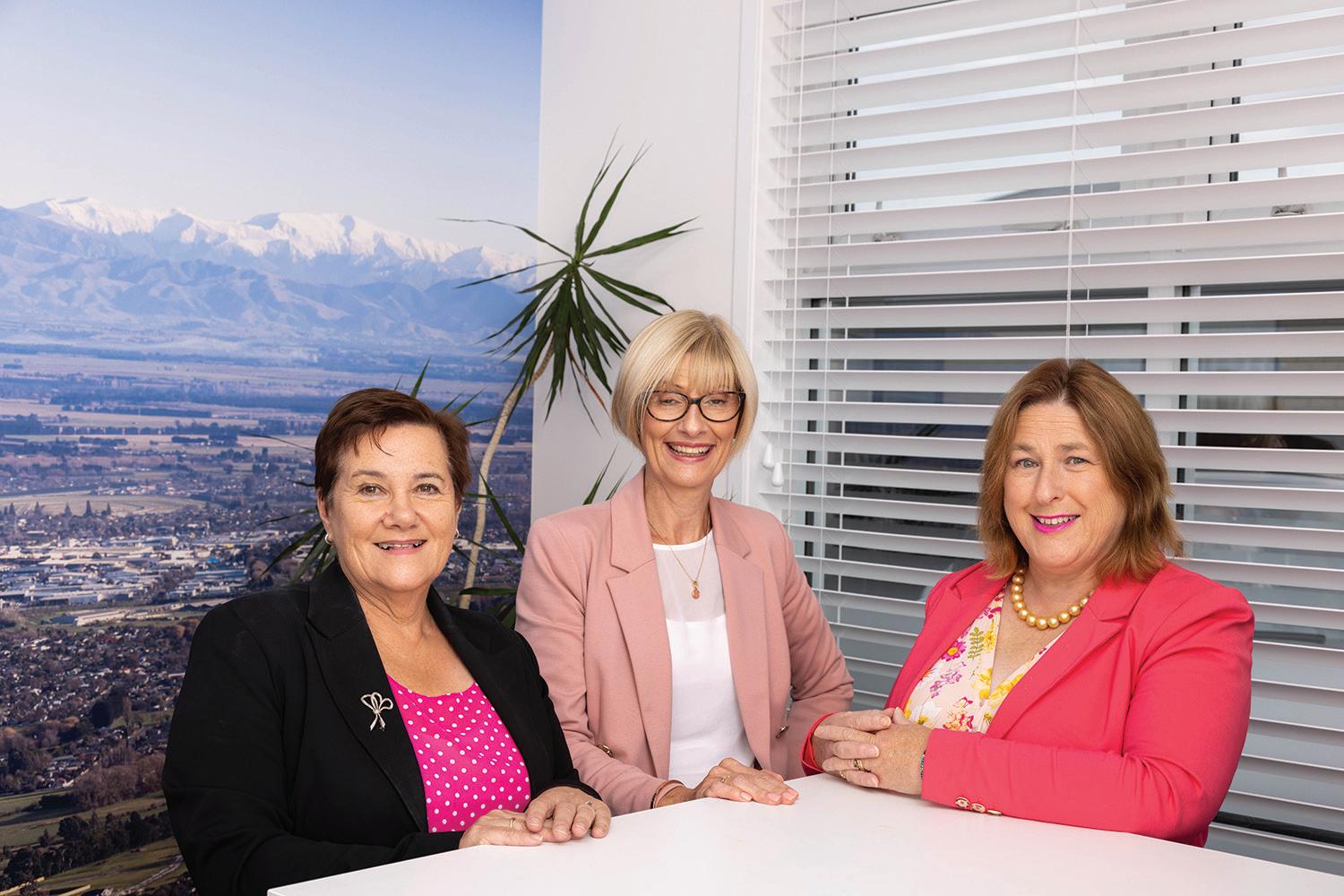
If you are considering buying or selling a property Debbie Pettigrew offers unparalleled expertise, professionalism, and dedication to help you achive your real estate objectives with confidence.


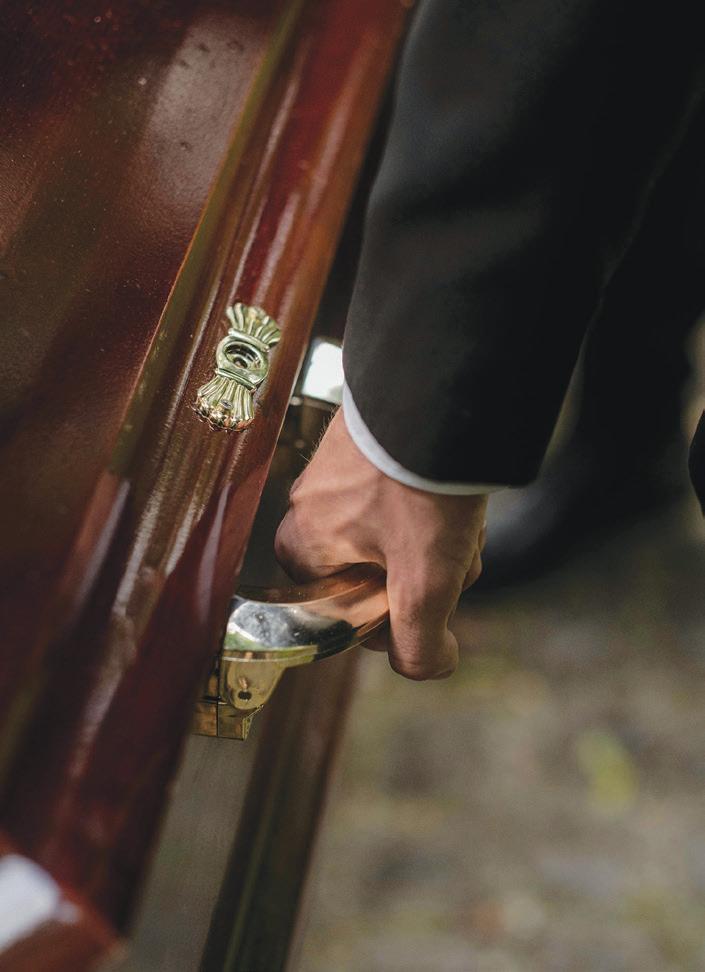



Celebrating the lives of and supporting locals since 1890
Local Funeral Homes - Canterbury Wide
Kaikoura | North Canterbury | Christchurch | Selwyn
Did you know that New Zealand has the highest rate of melanoma in the world? Every day, around 7 New Zealanders are diagnosed with melanoma - it’s the most serious form of skin cancer and it can quickly become deadly.1,2
That’s why MoleMap’s proven skin-mapping system is designed to detect skin cancers such as melanoma early – when it’s most treatable.3
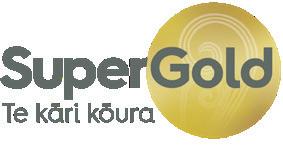
Know that your skin is in check with 15% off all MoleMap services for SuperGold cardholders – simply book online at molemap.co.nz or call 0800 665 362 and use the promo code ‘GOLD15’.
Clinics held weekly in Rangiora and Ashburton.
References:
2. https://www.melanoma.org.nz/facts-risk-factors
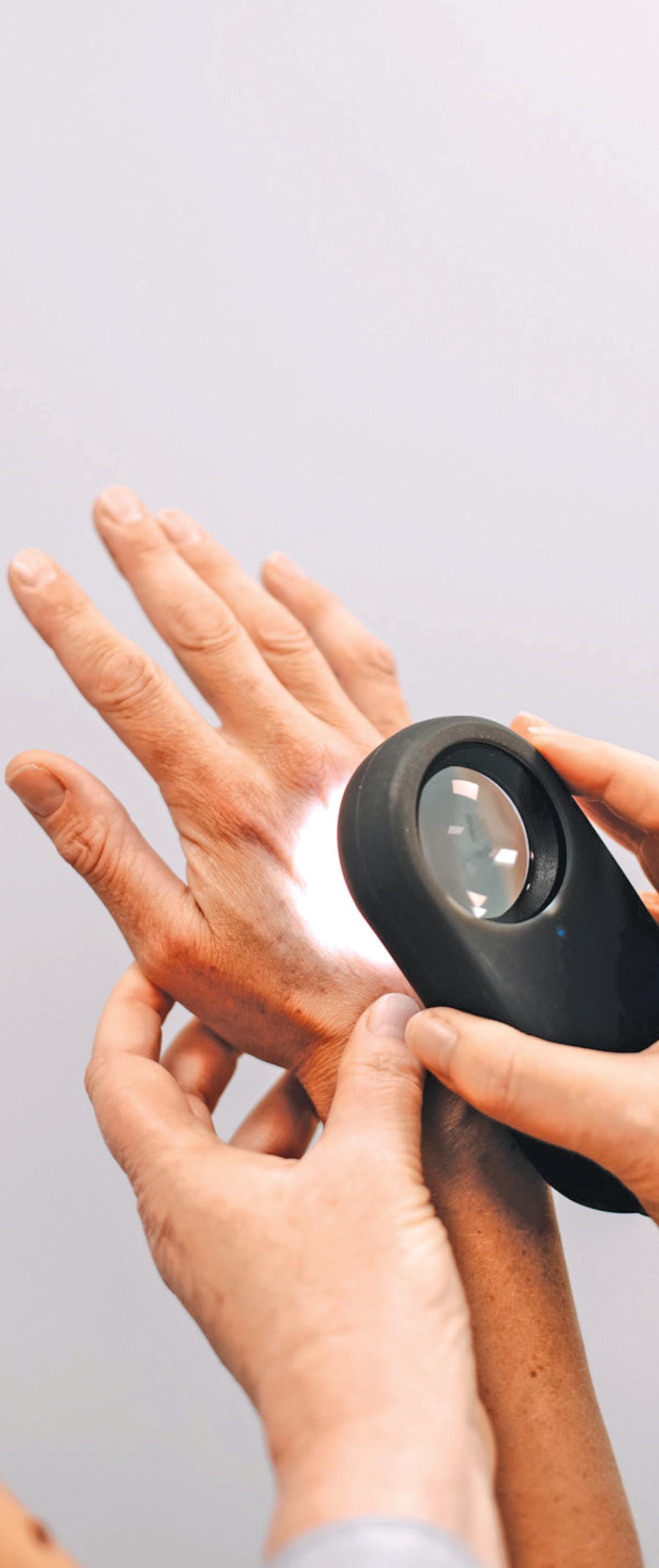
1. Health Promotion Agency and the Melanoma Network of New Zealand (MelNet) 2017: New Zealand Skin Cancer Primary Prevention and Early
3. https://www.melanoma.org.nz/early-detection 0800 665 362 | molemap.co.nz Special offer for SuperGold cardholders.